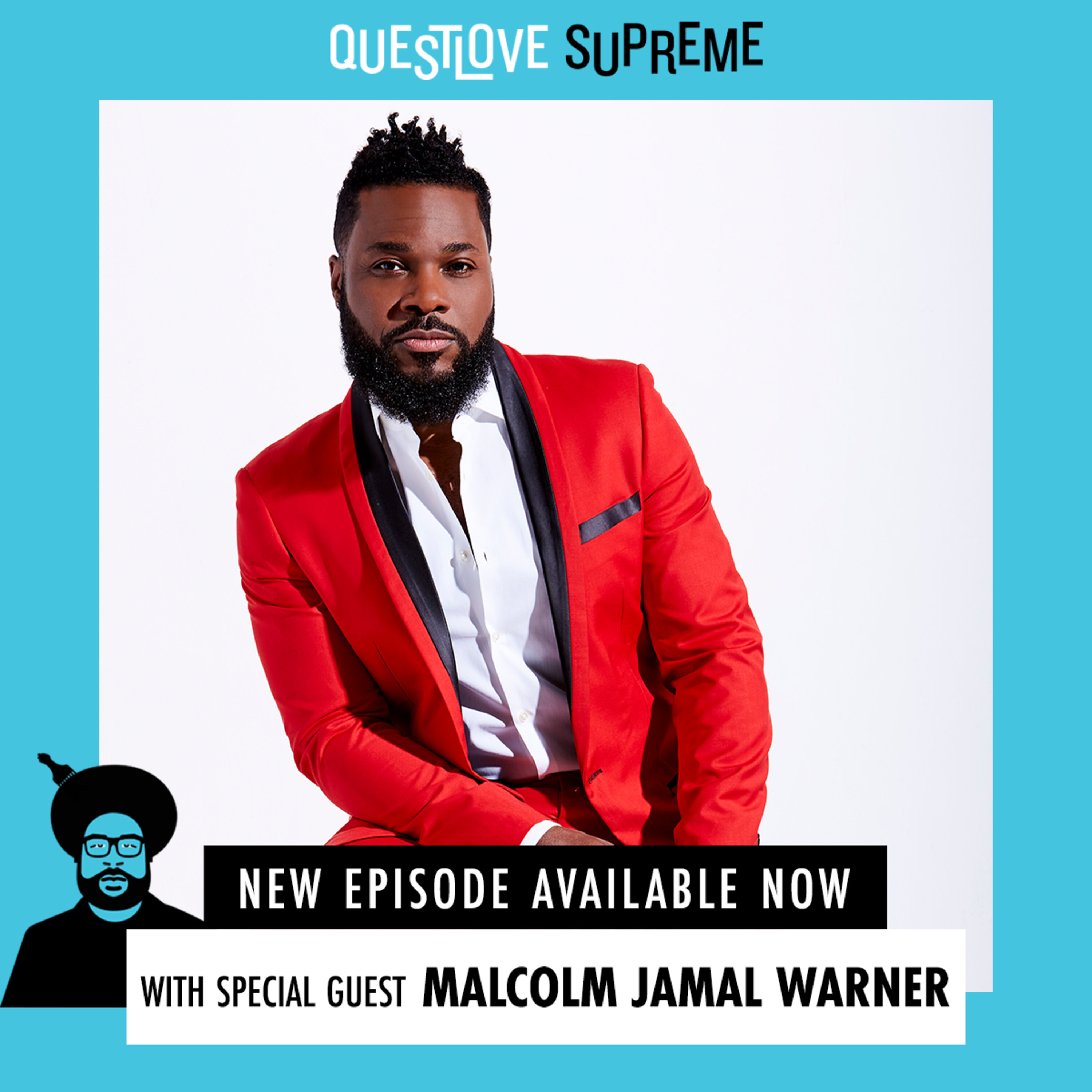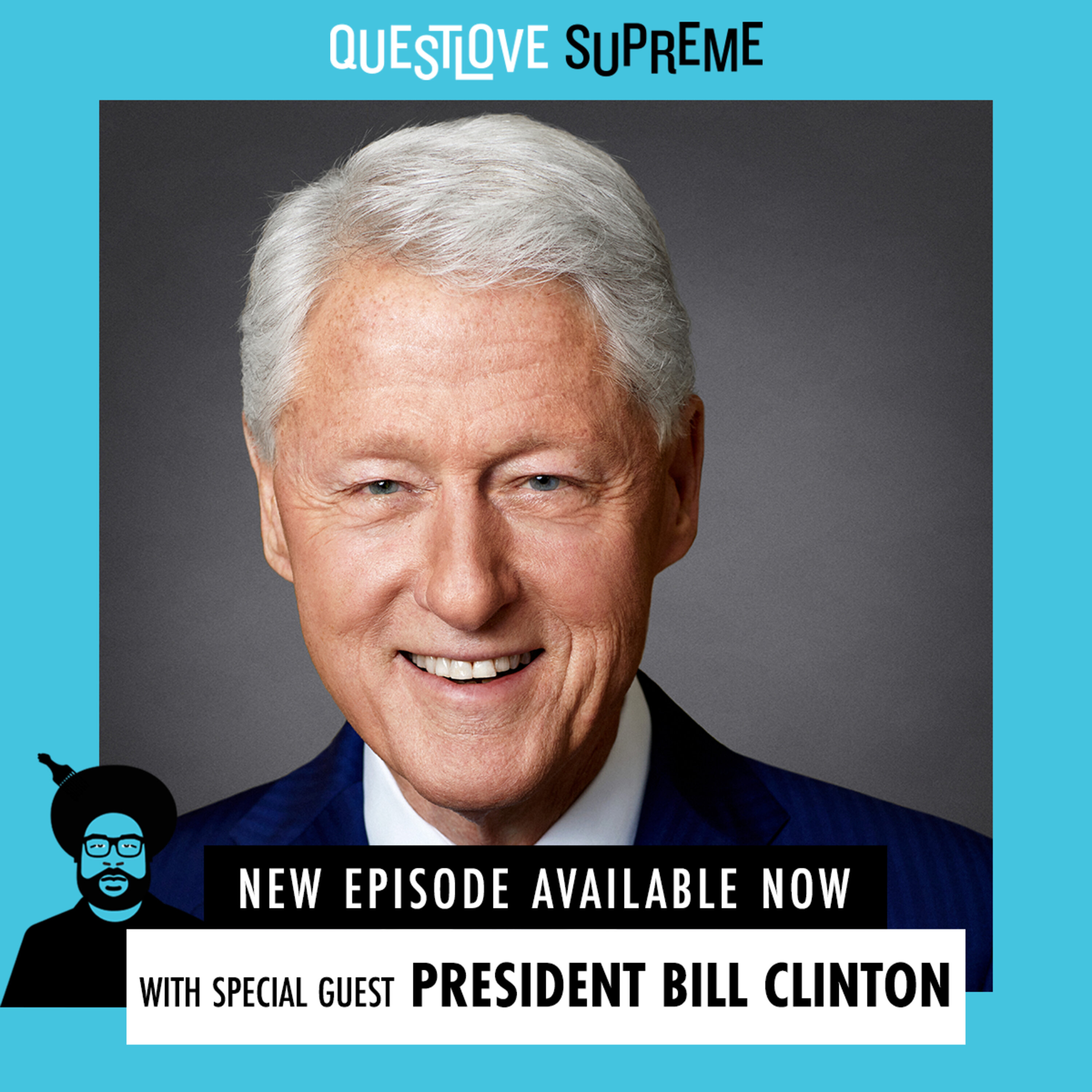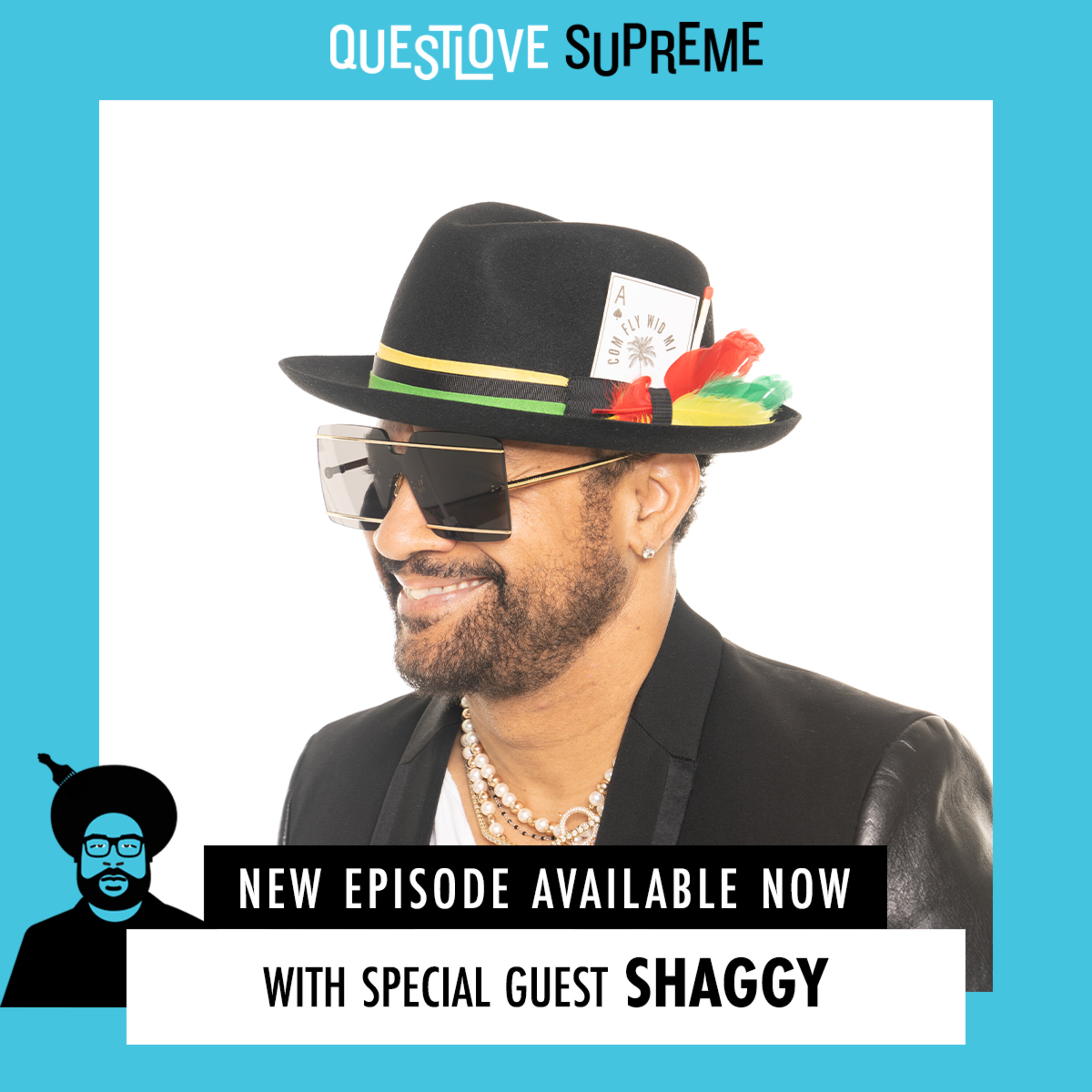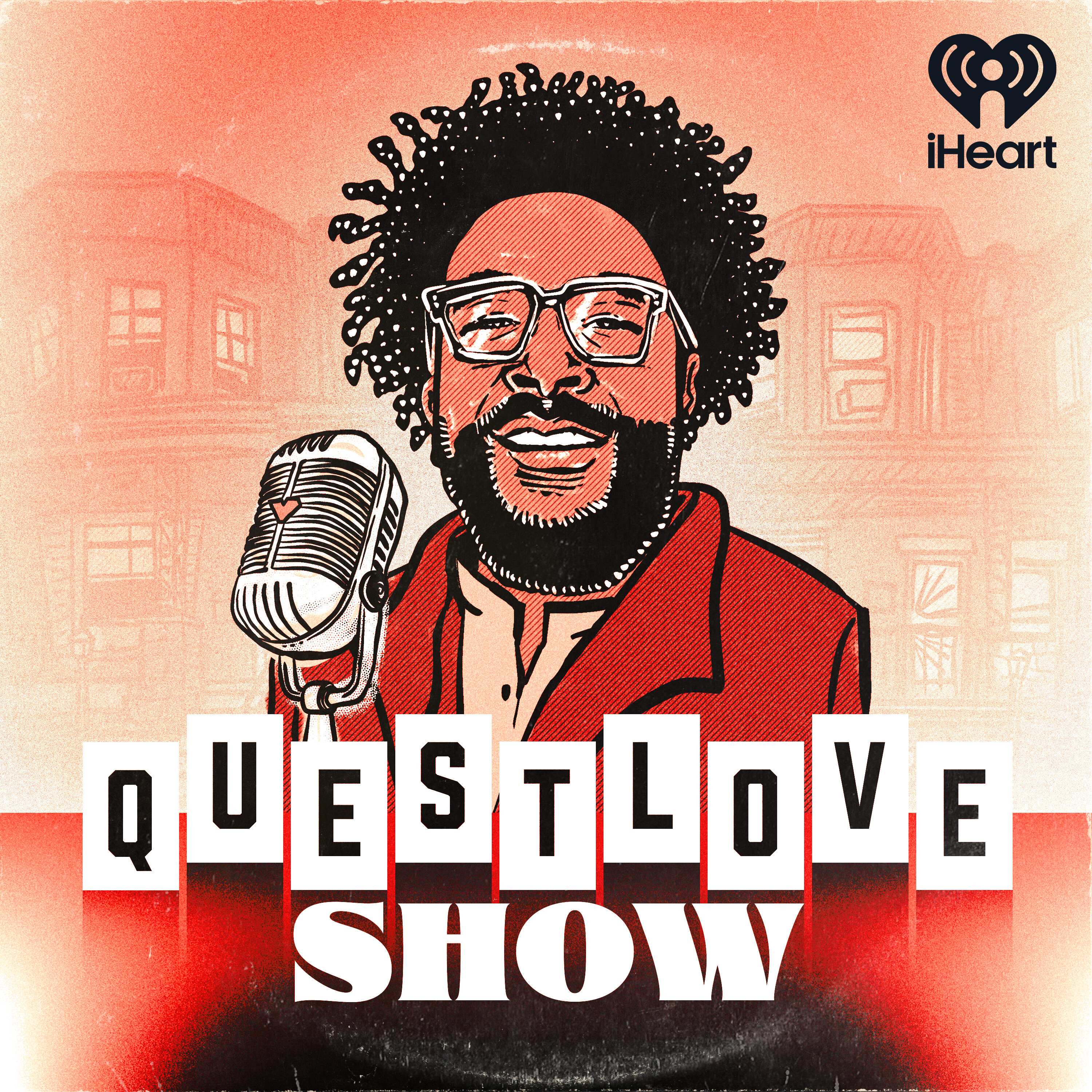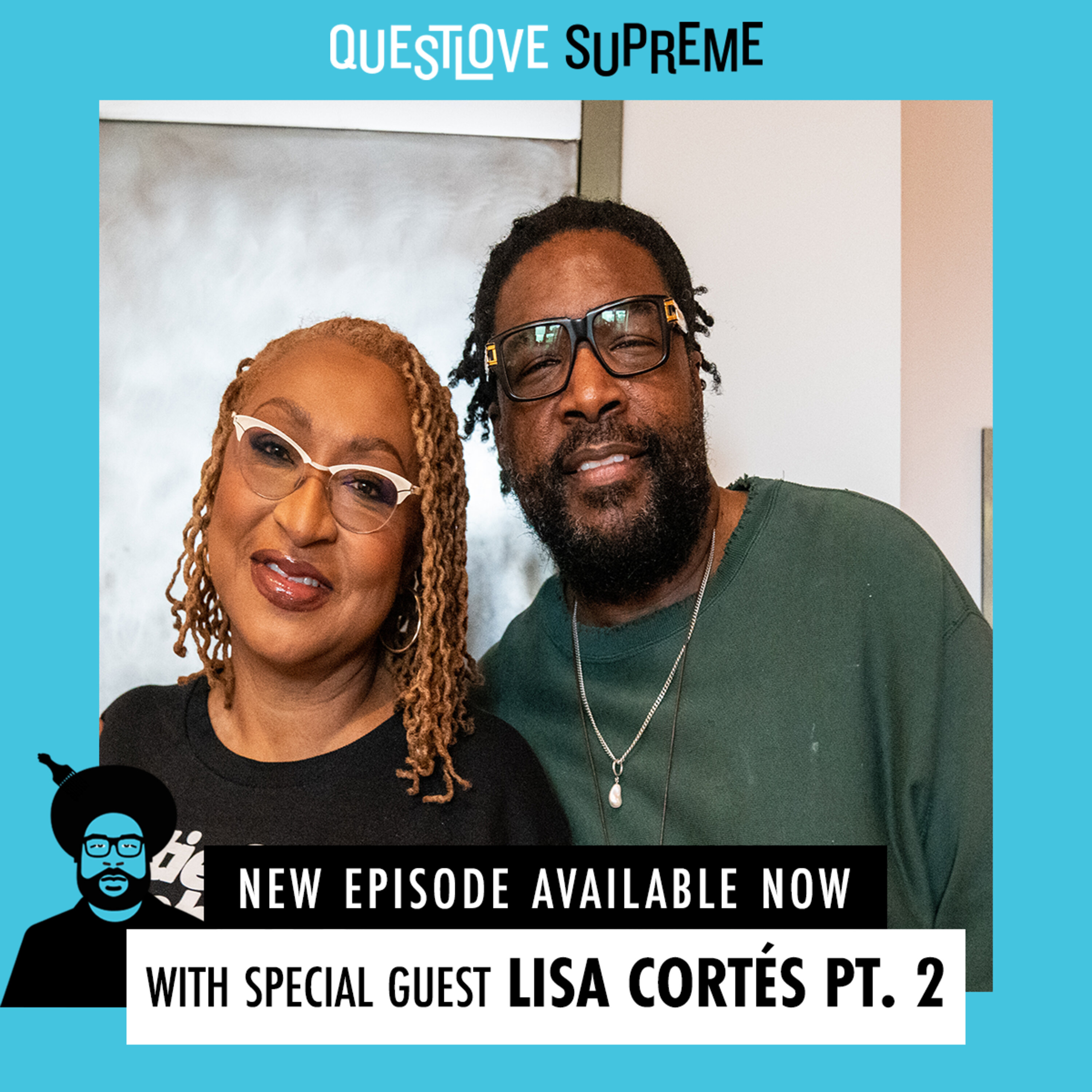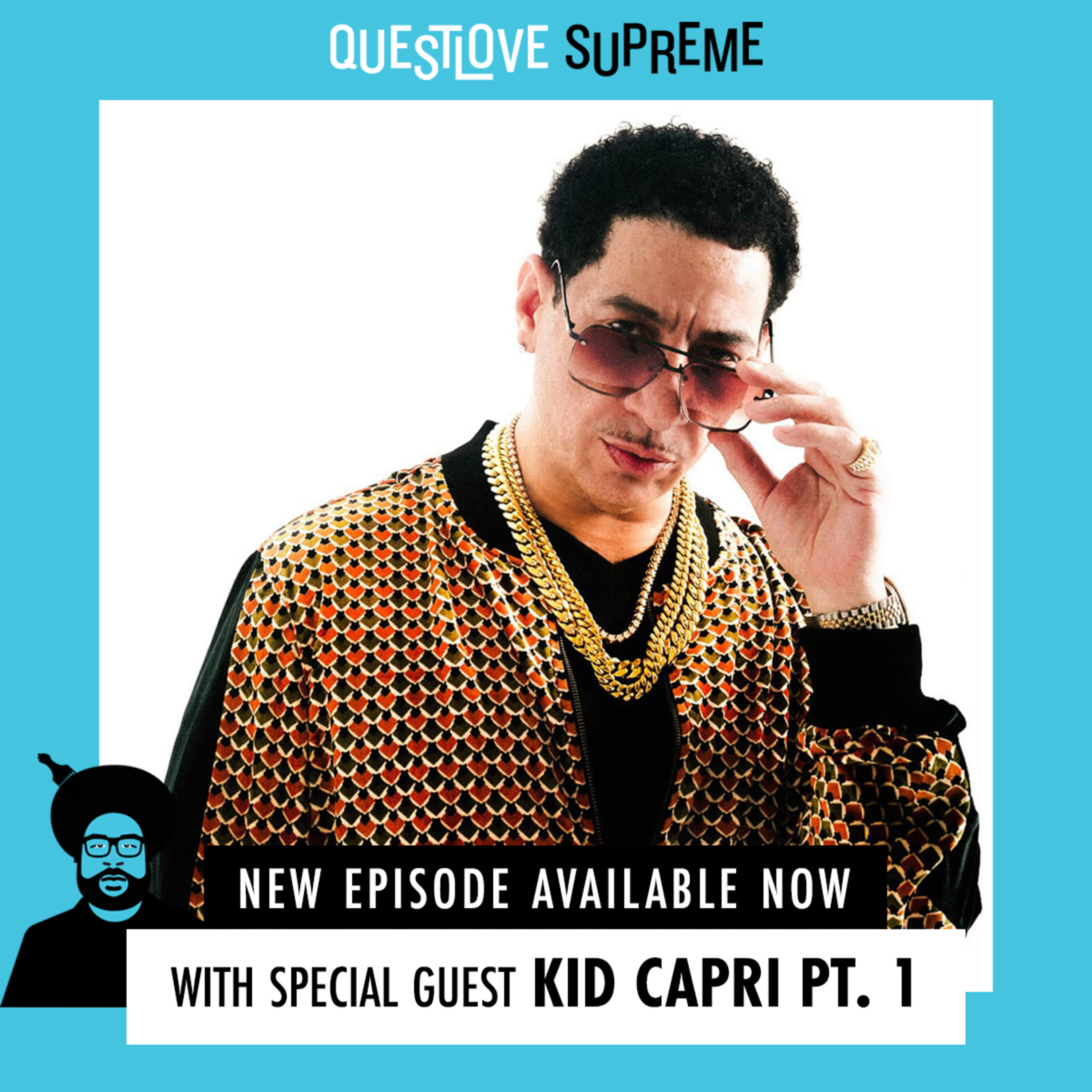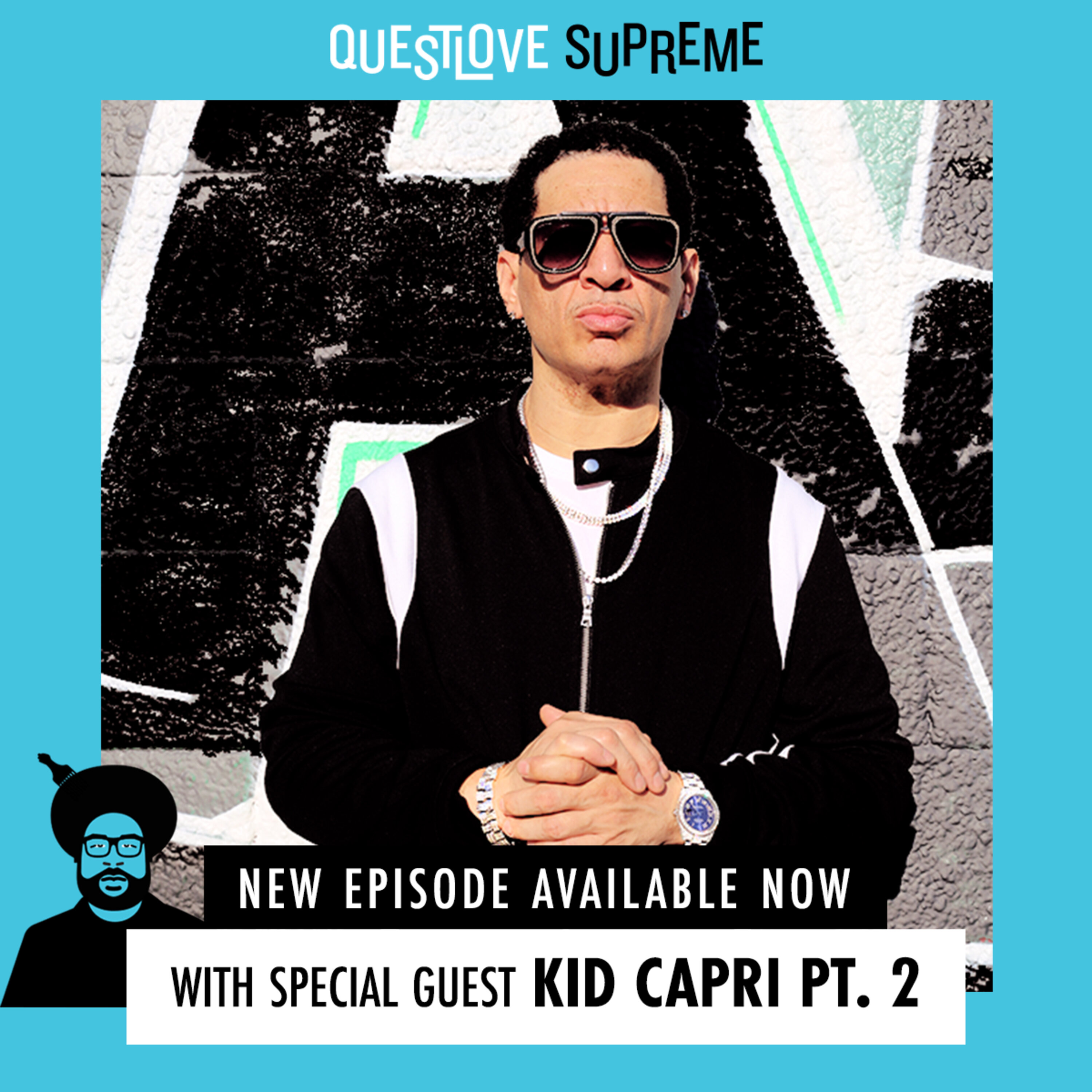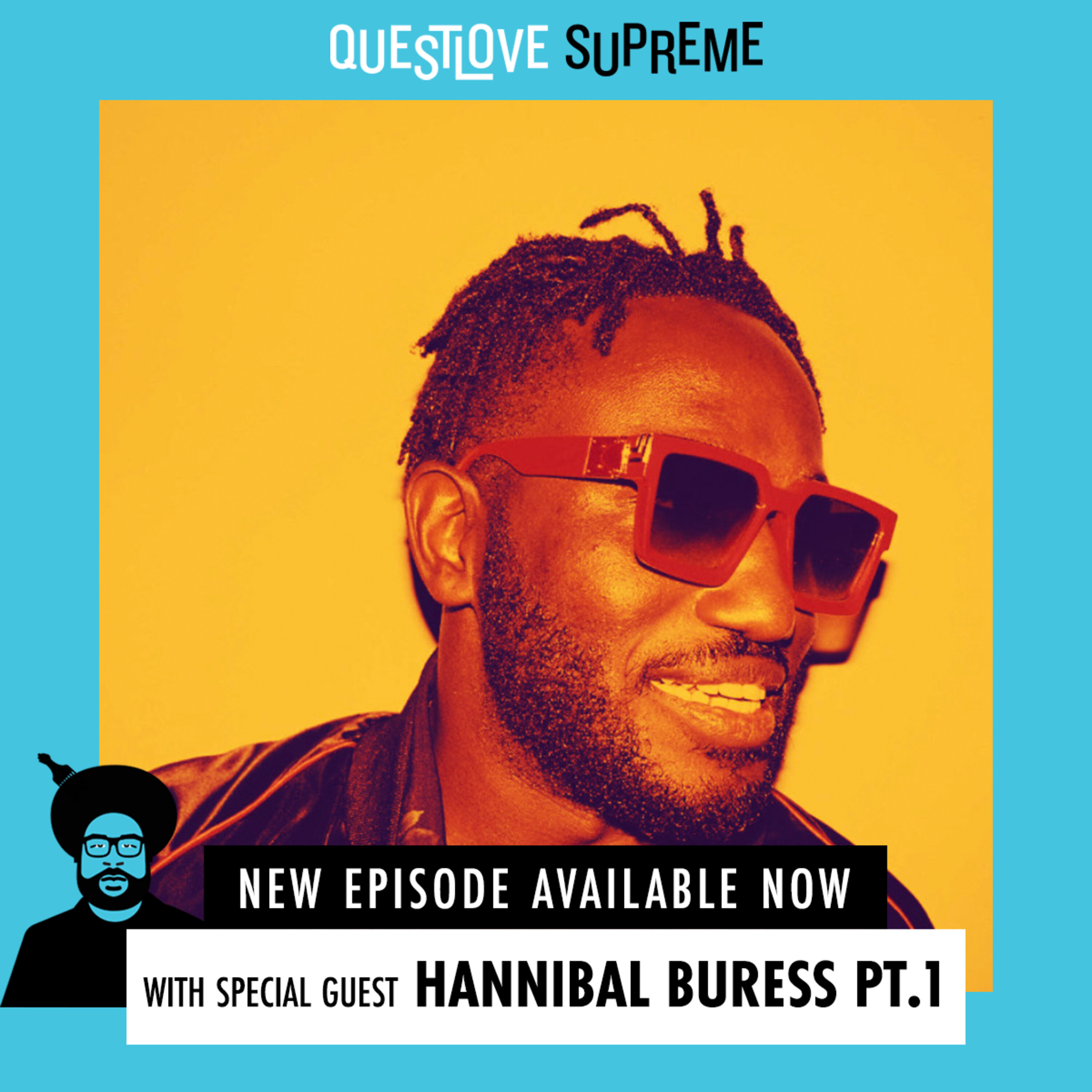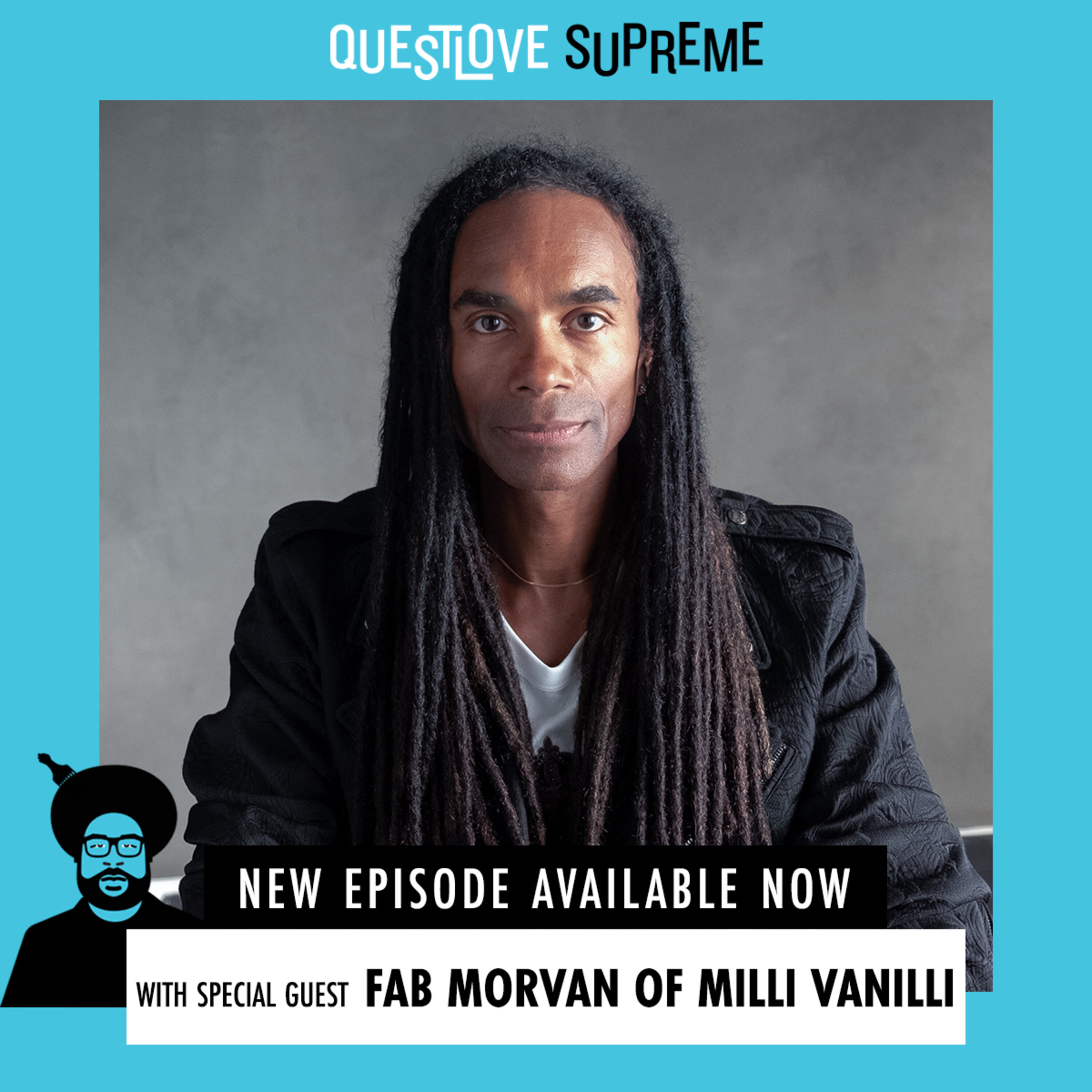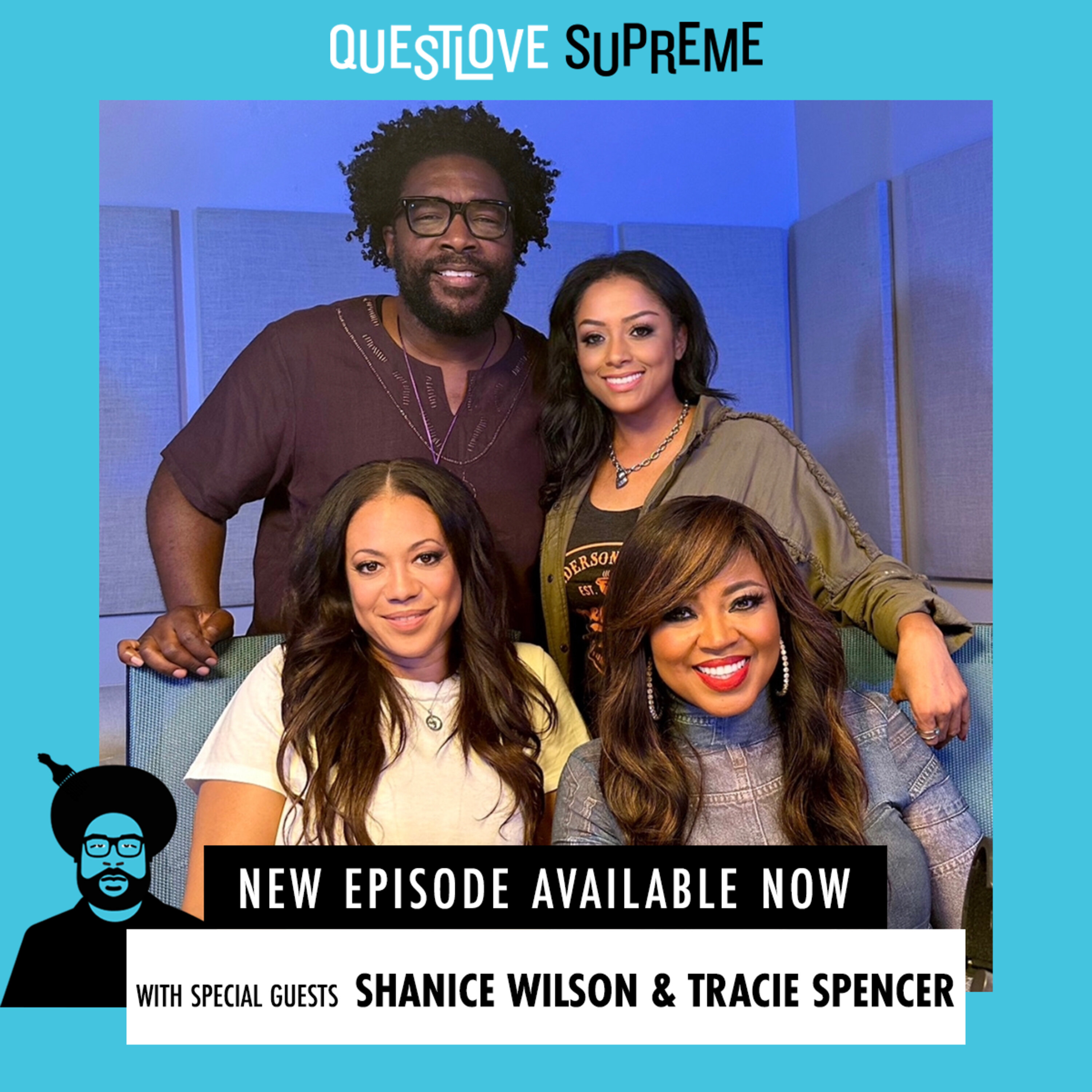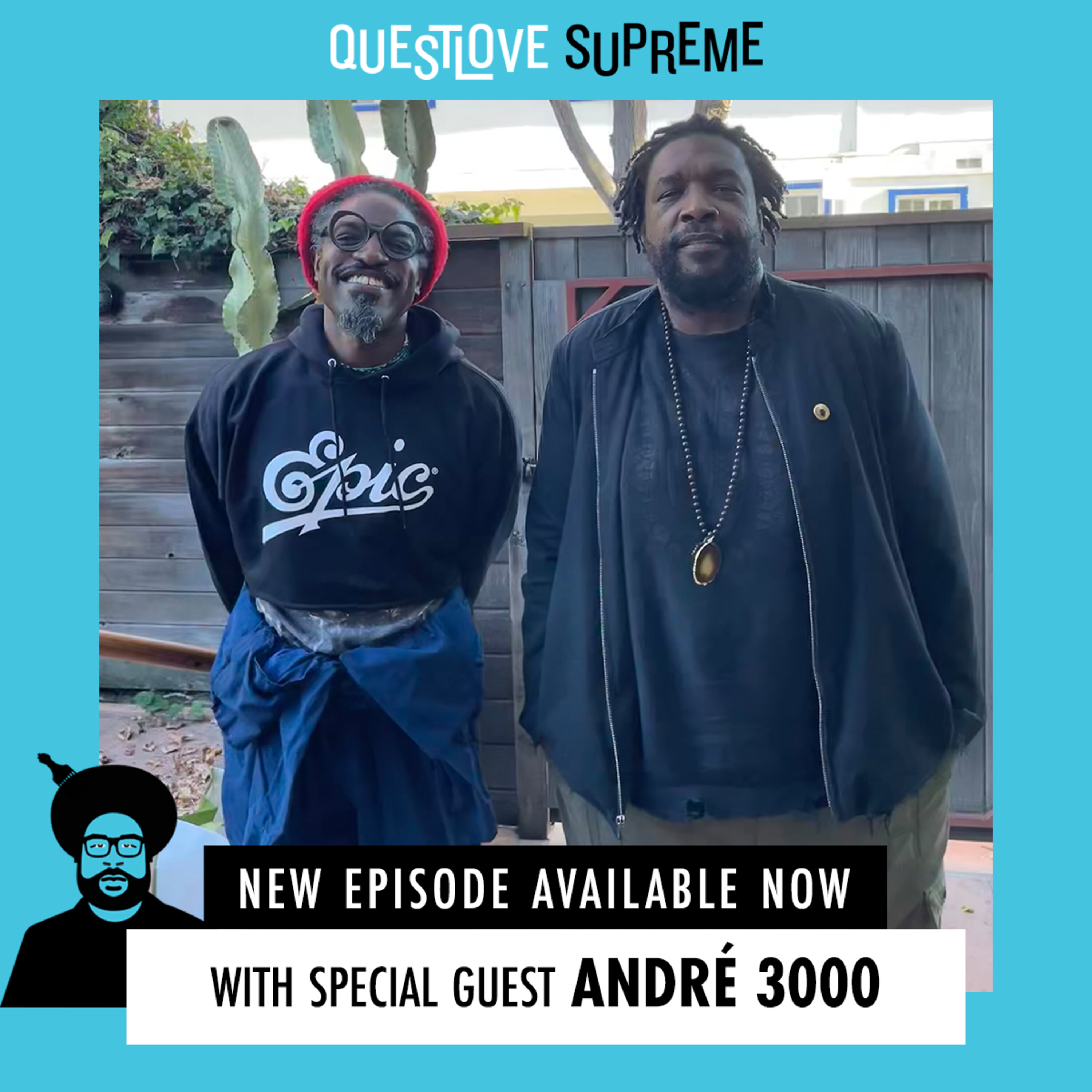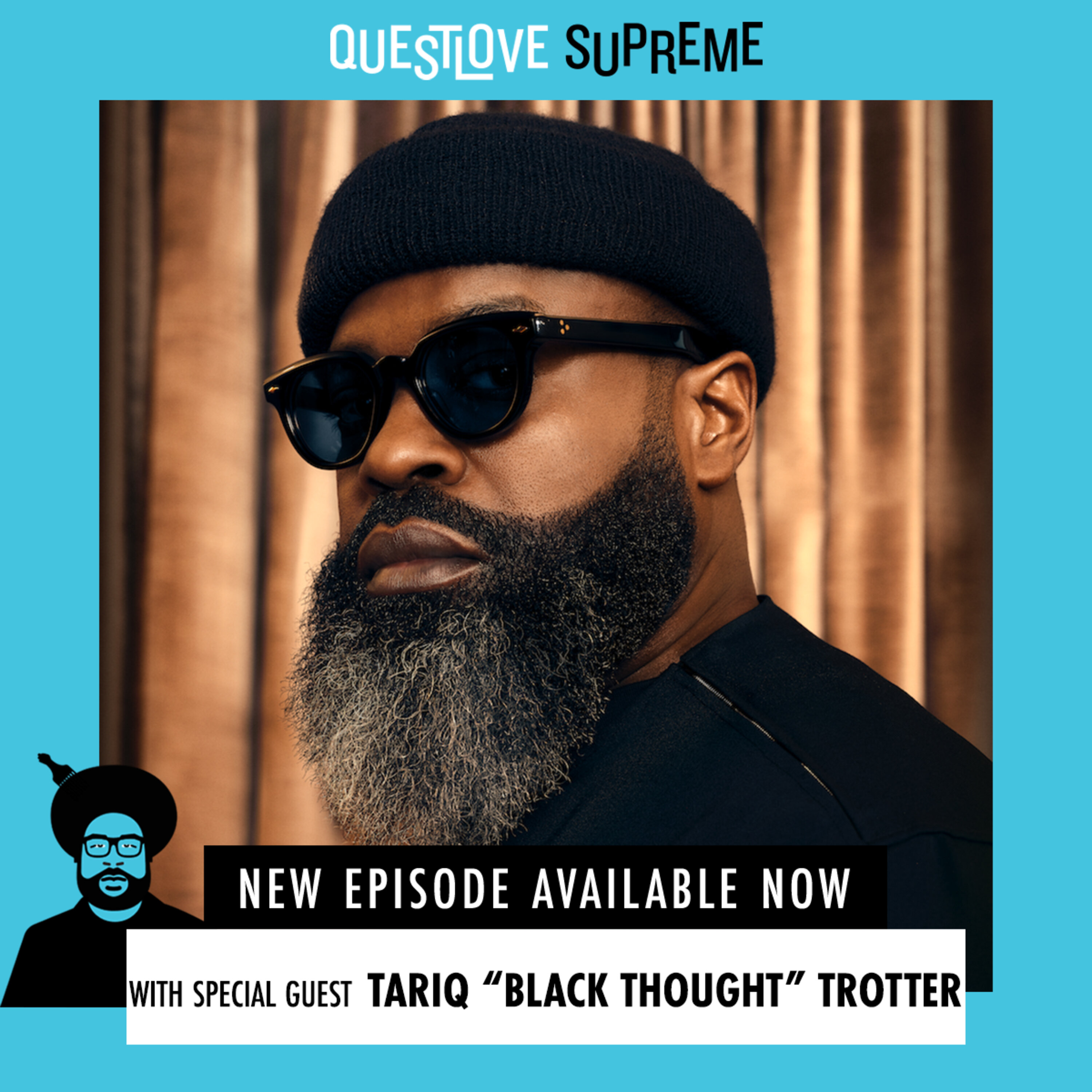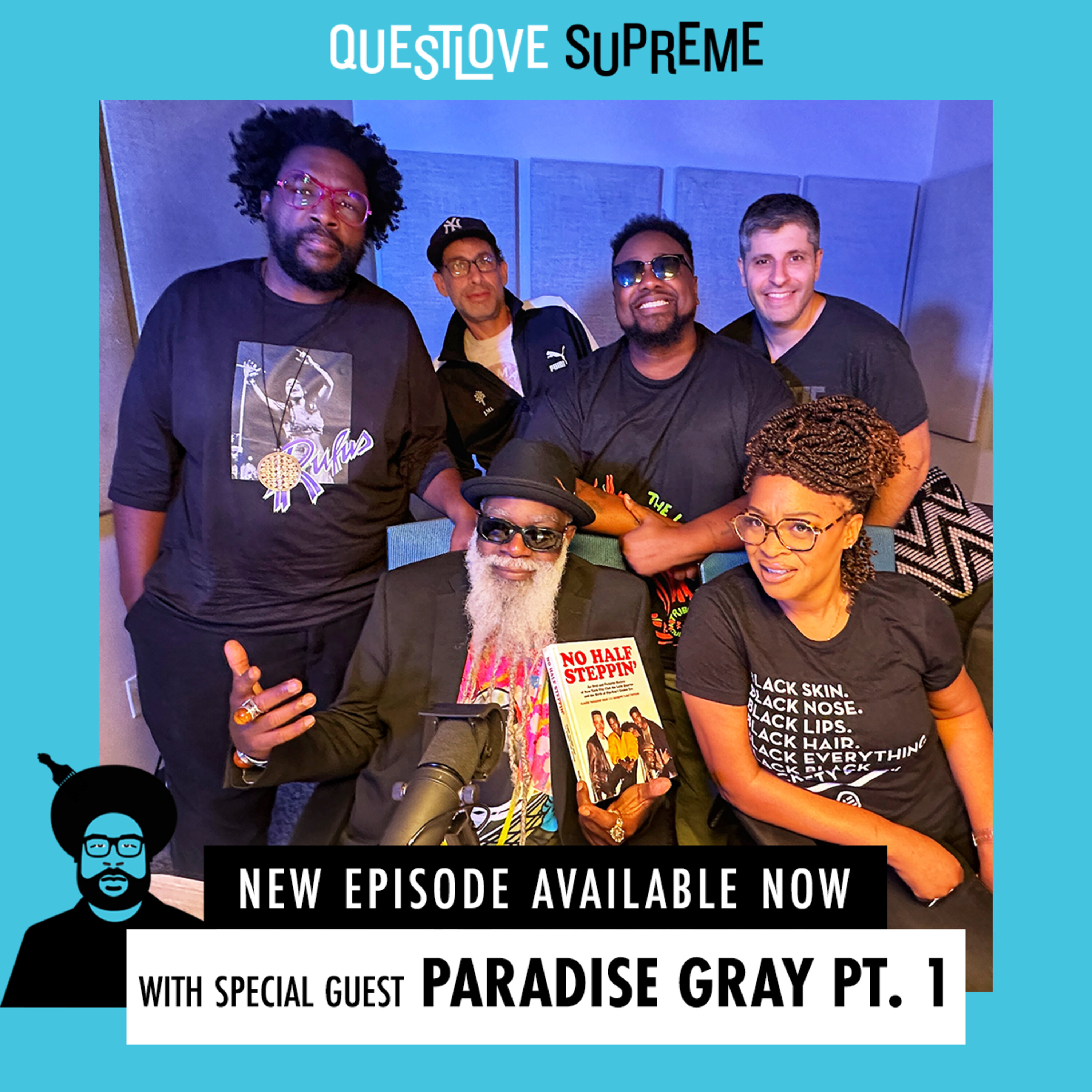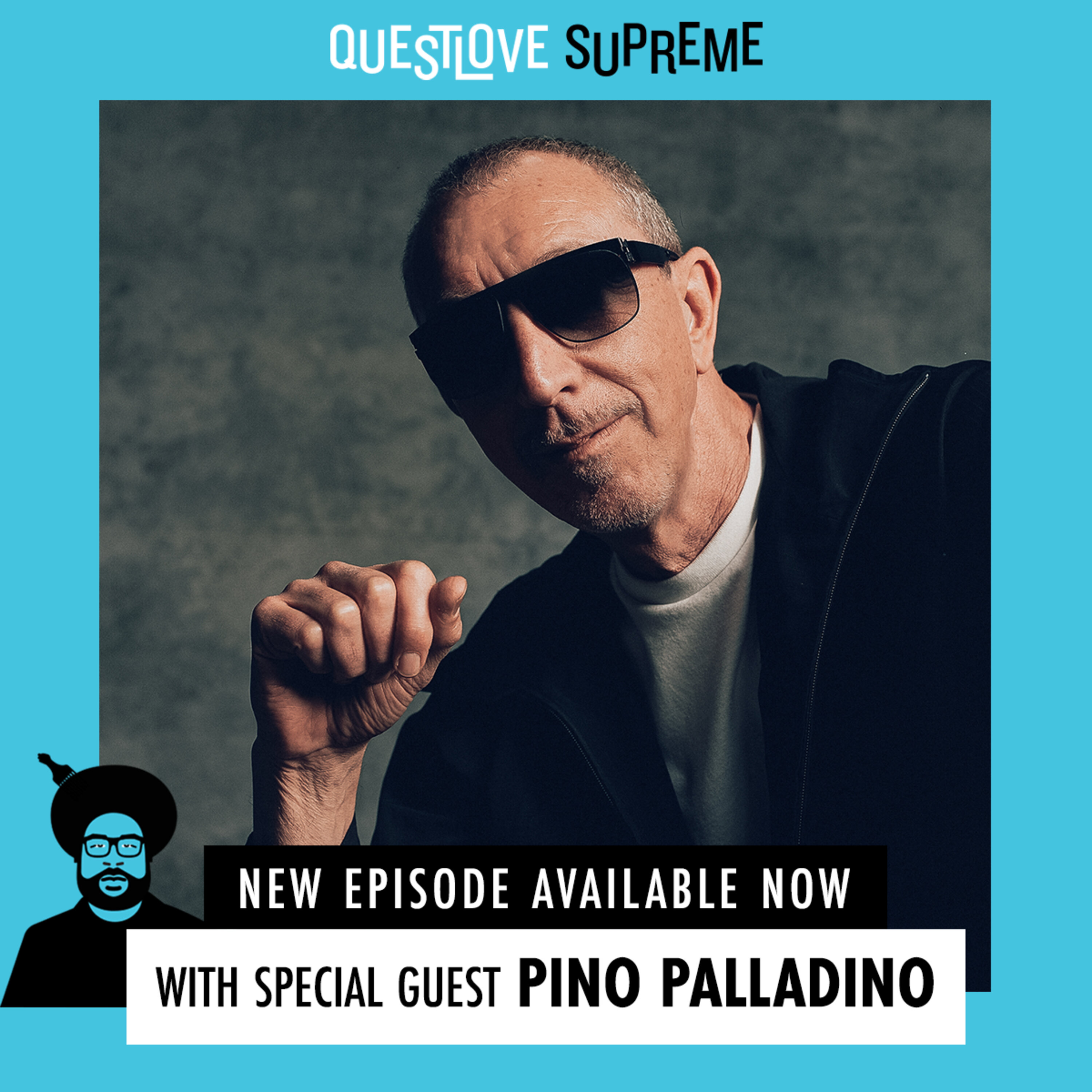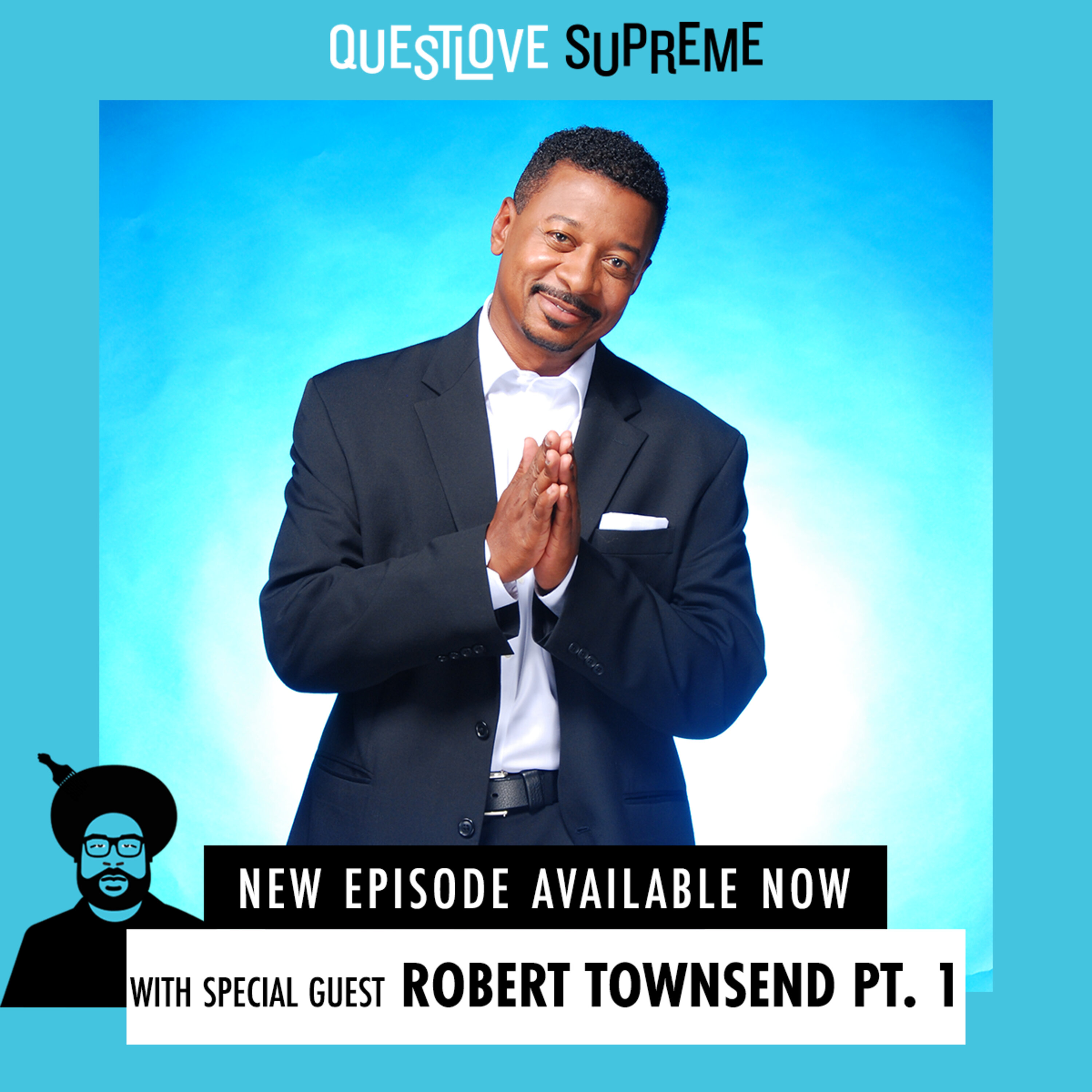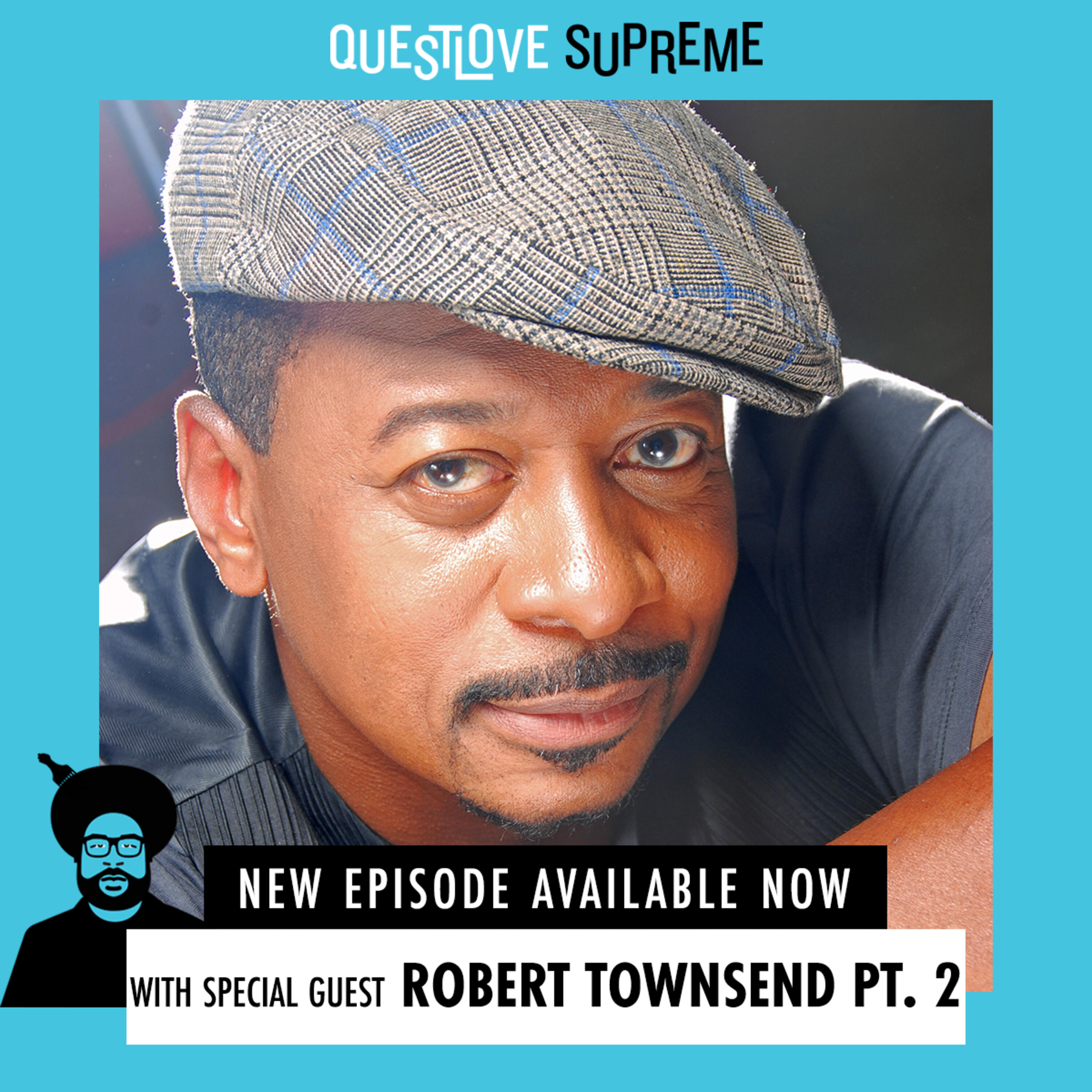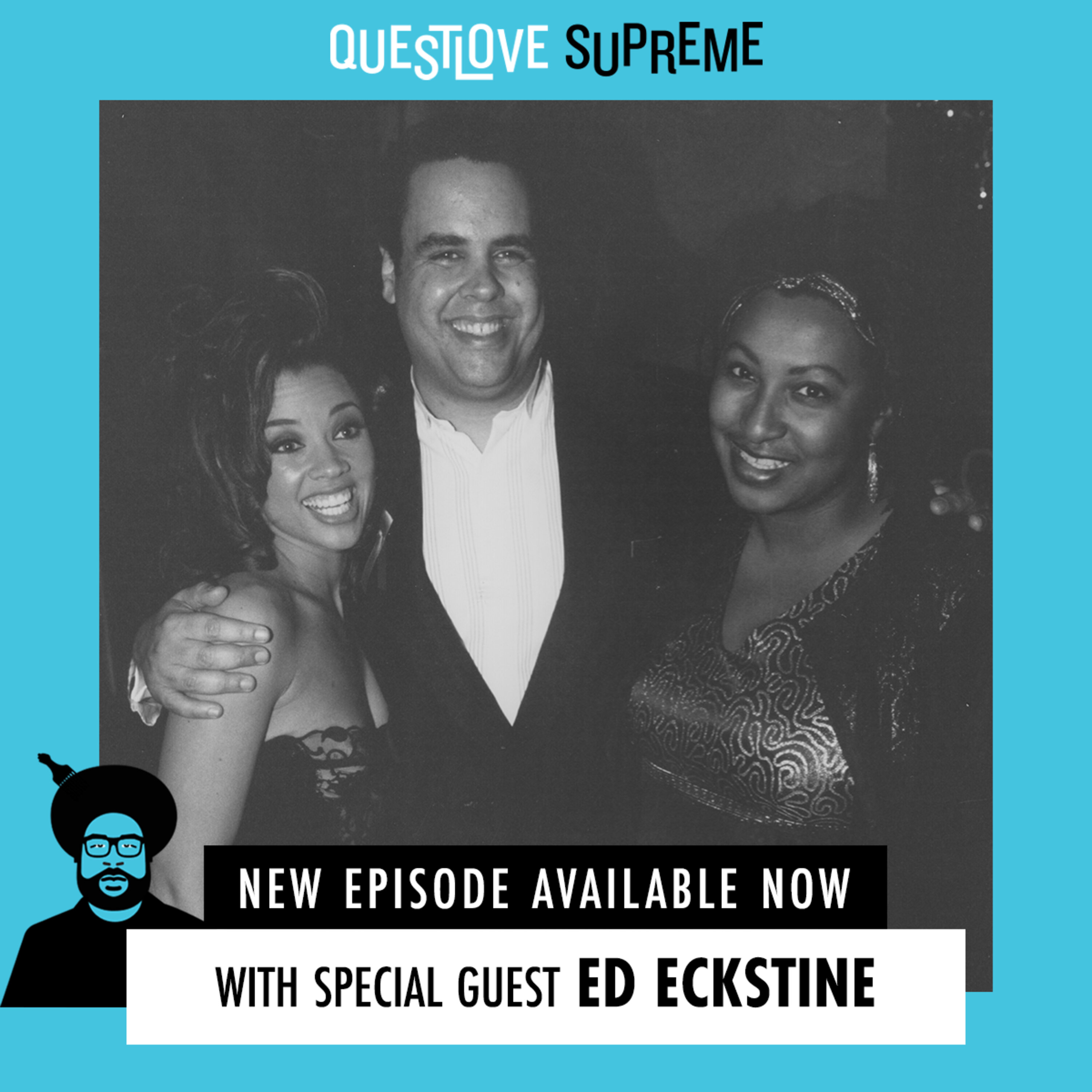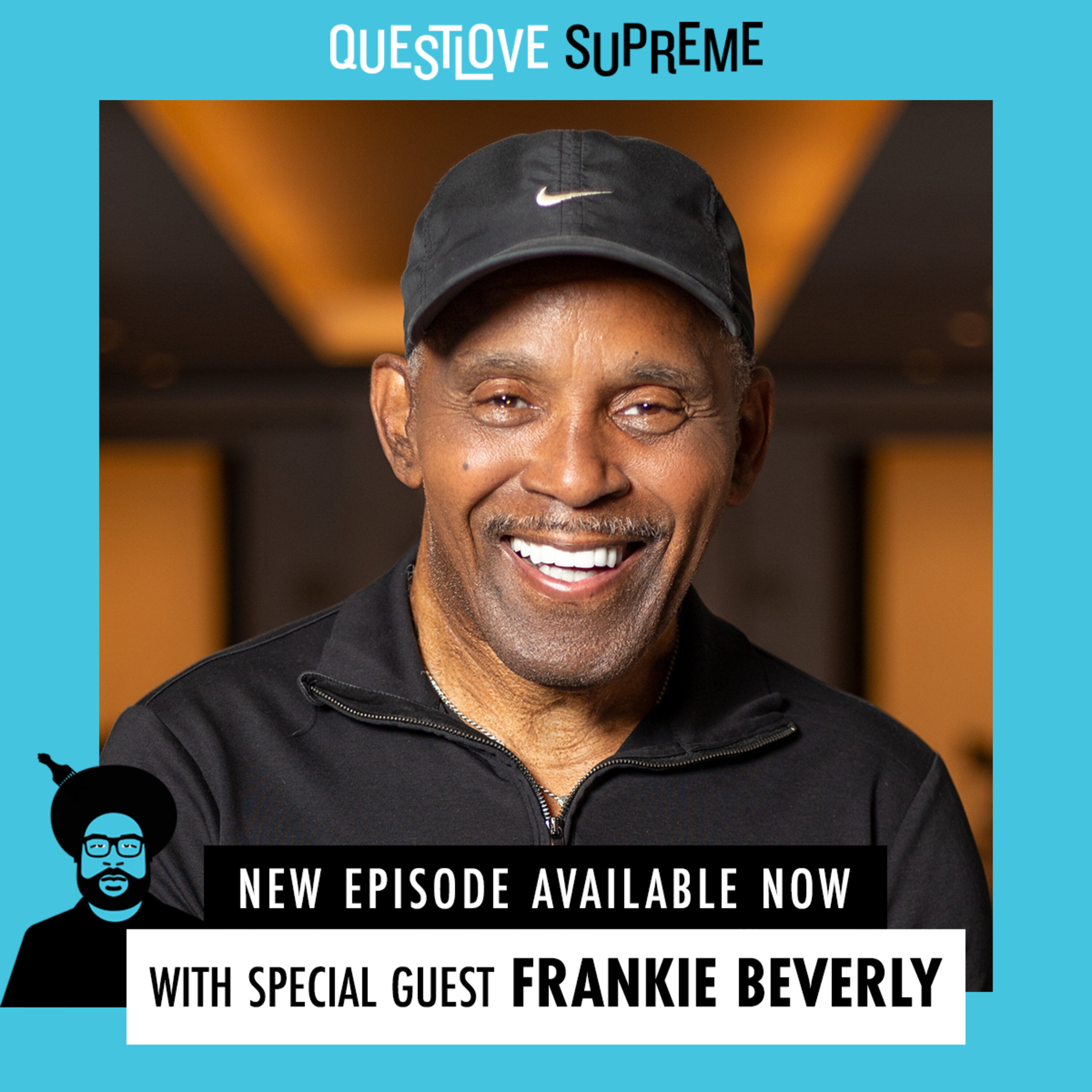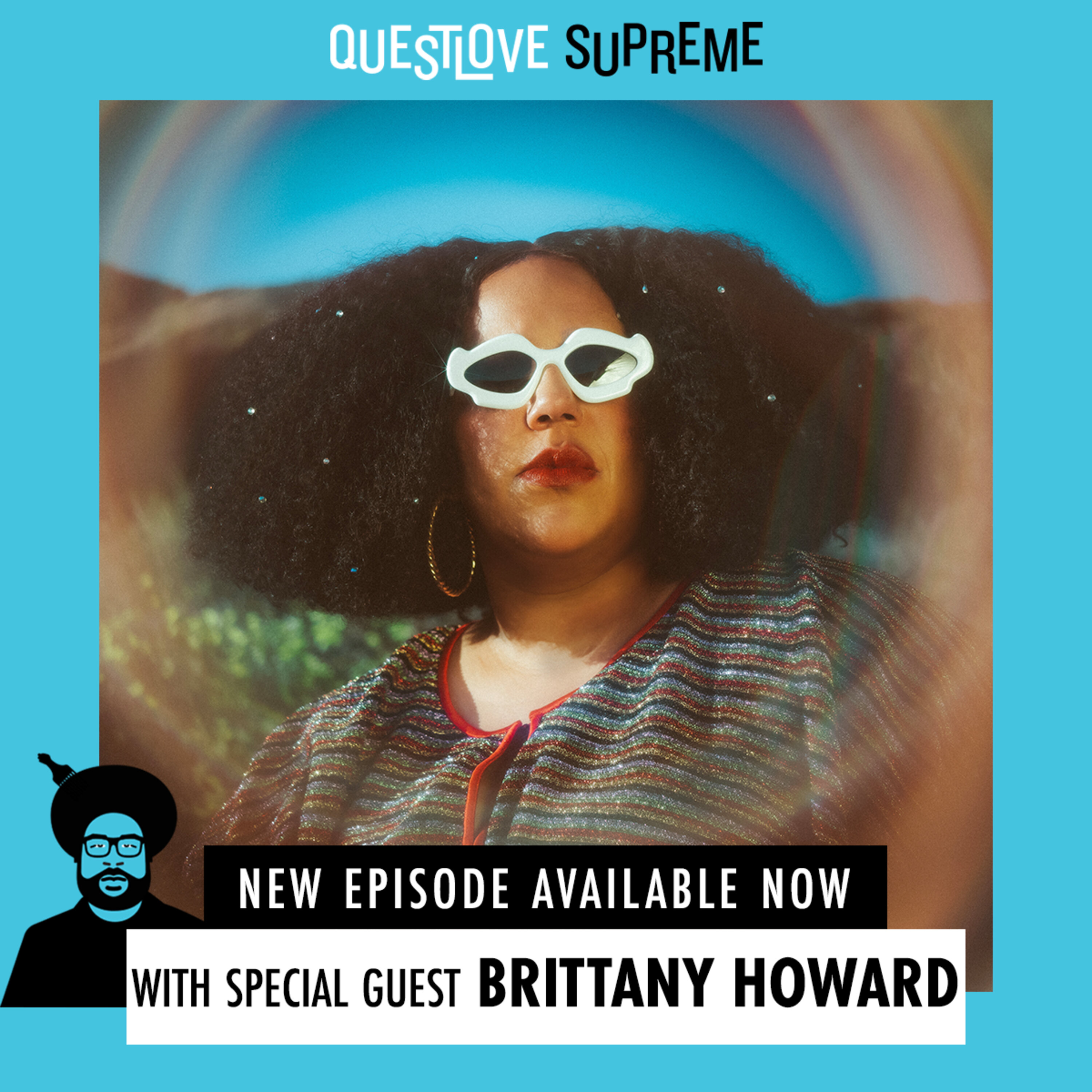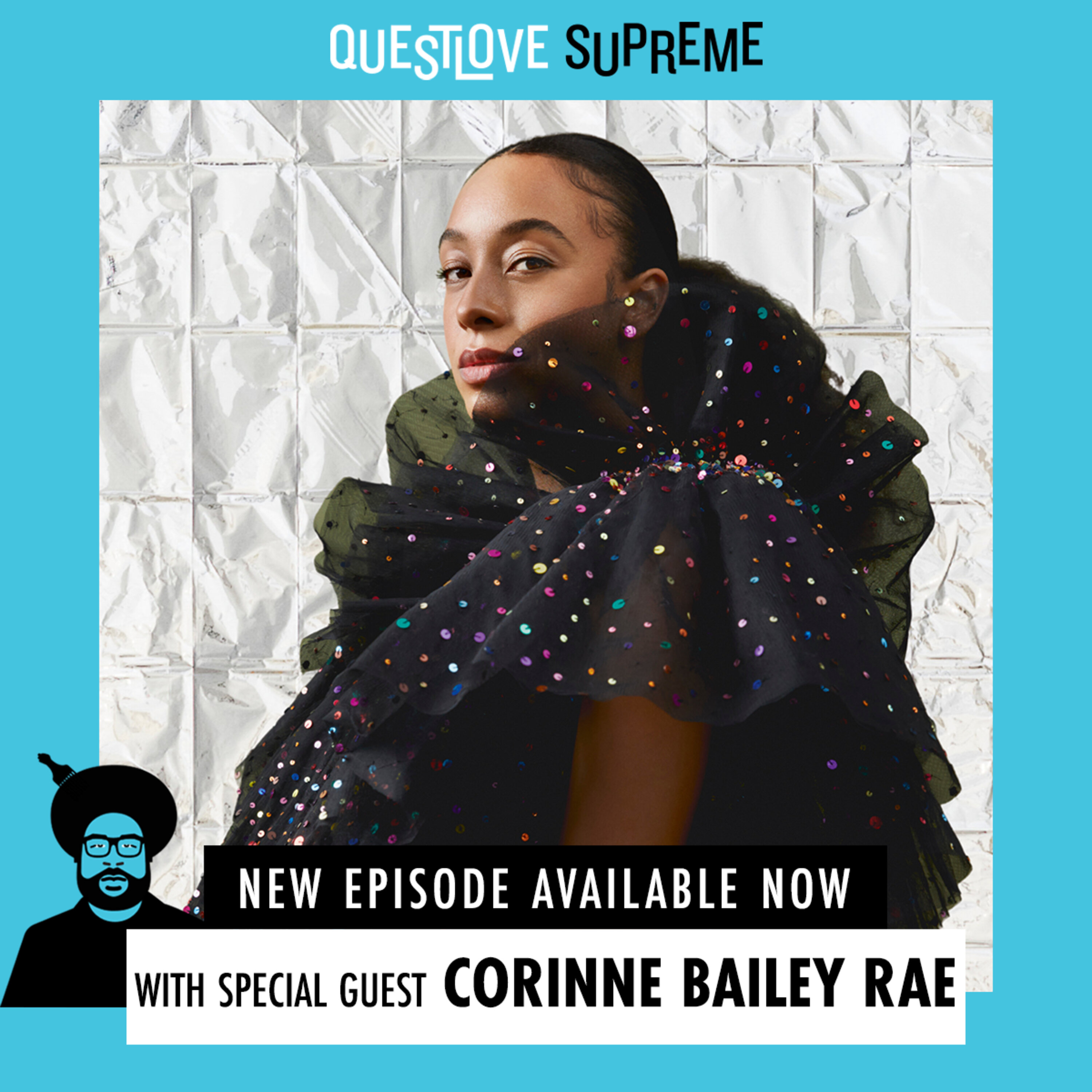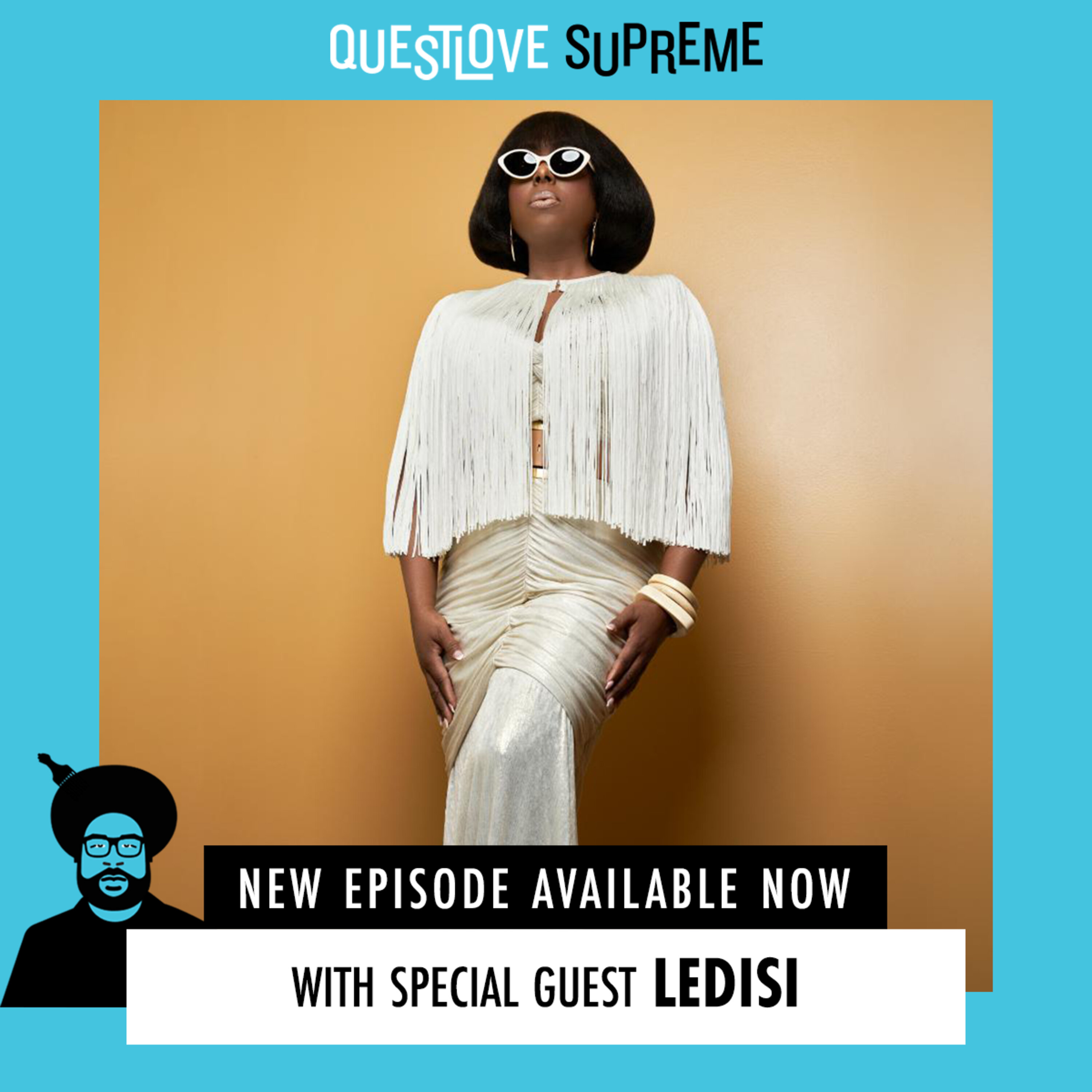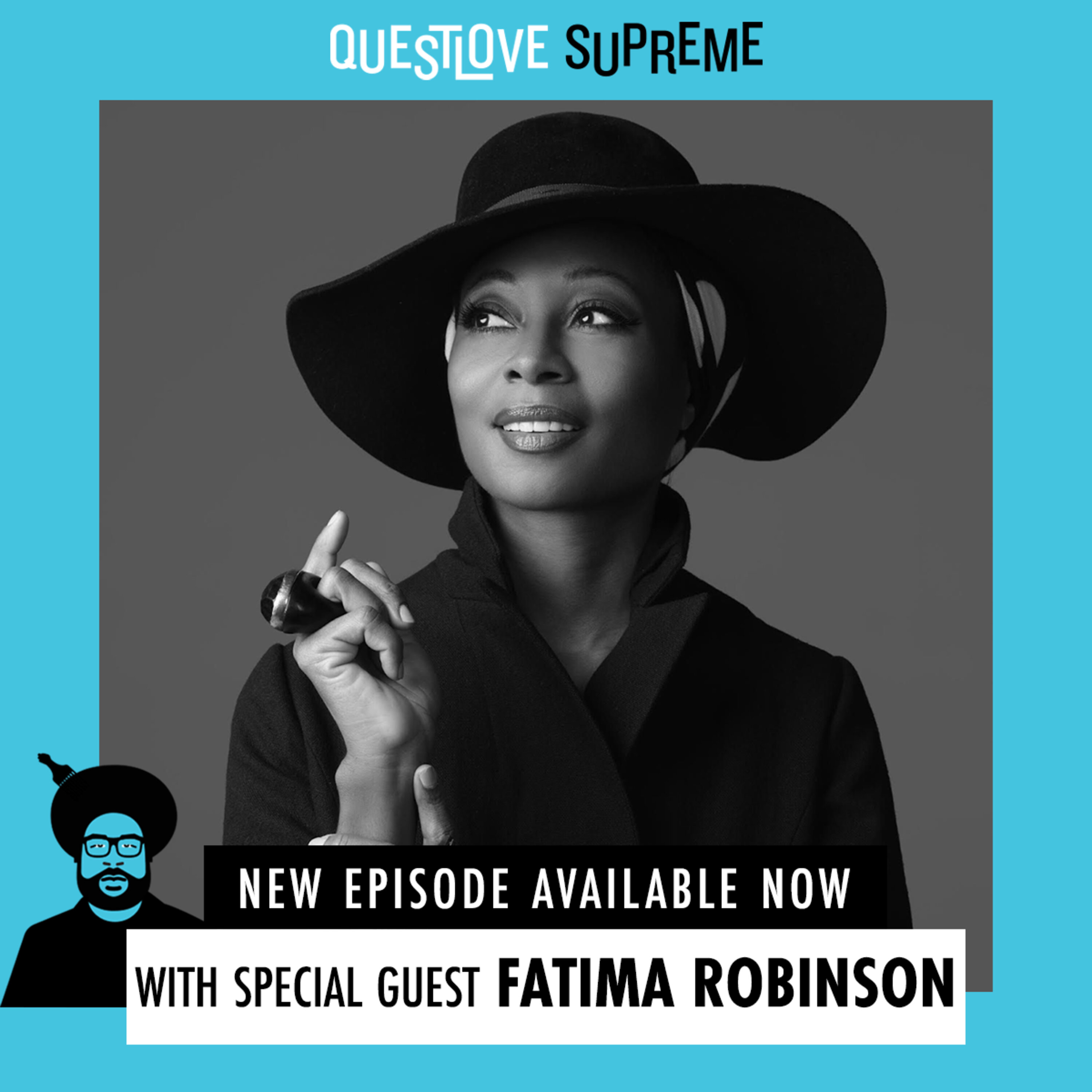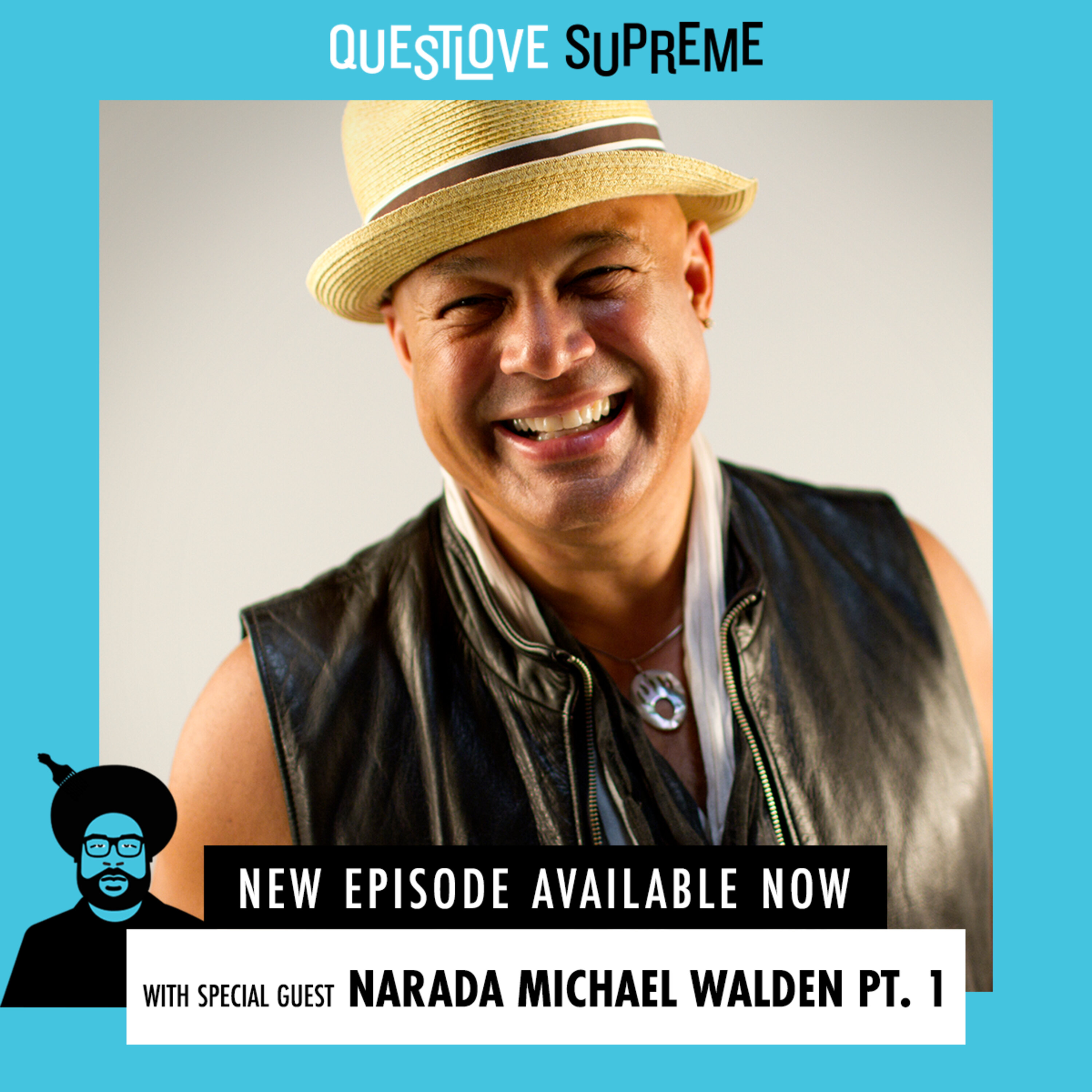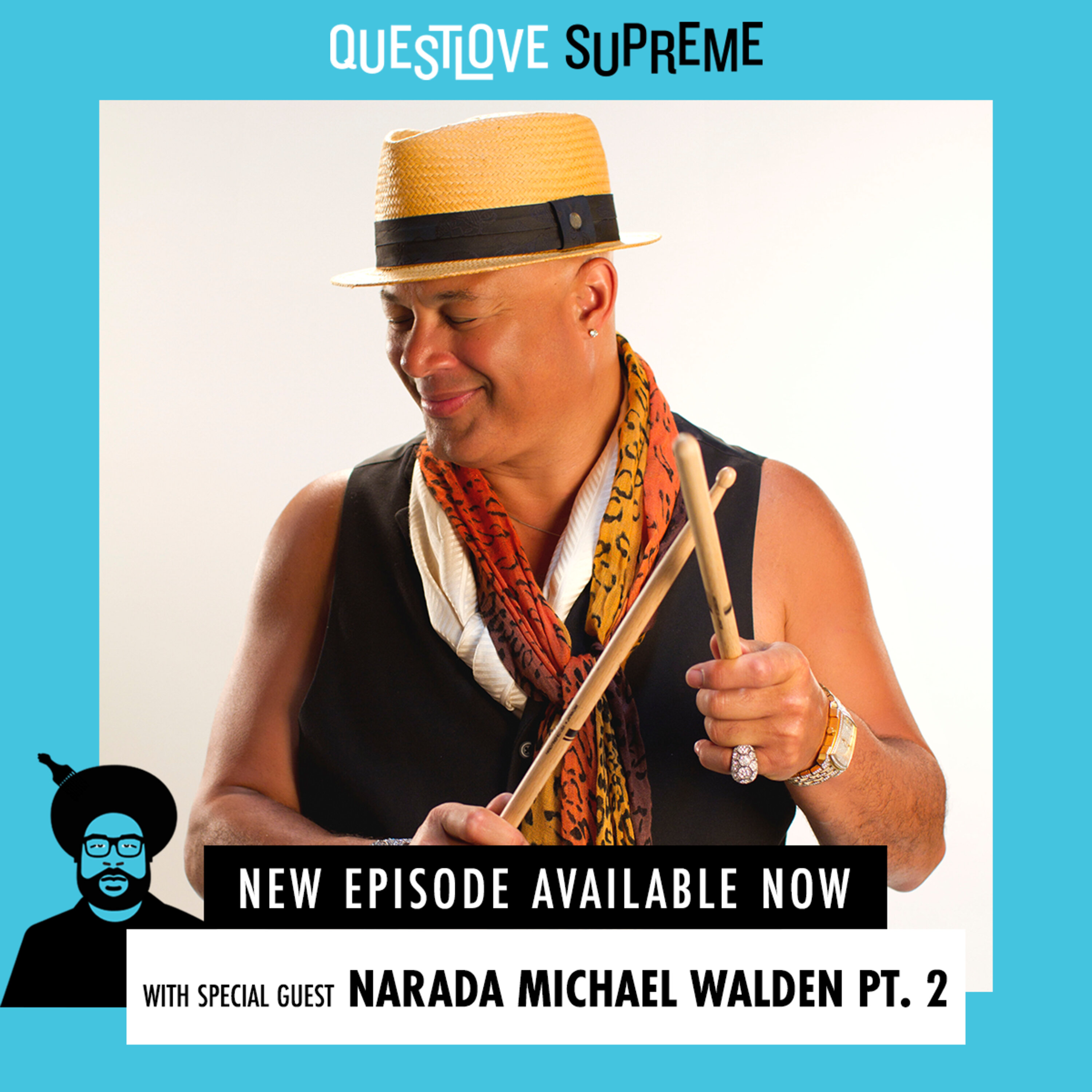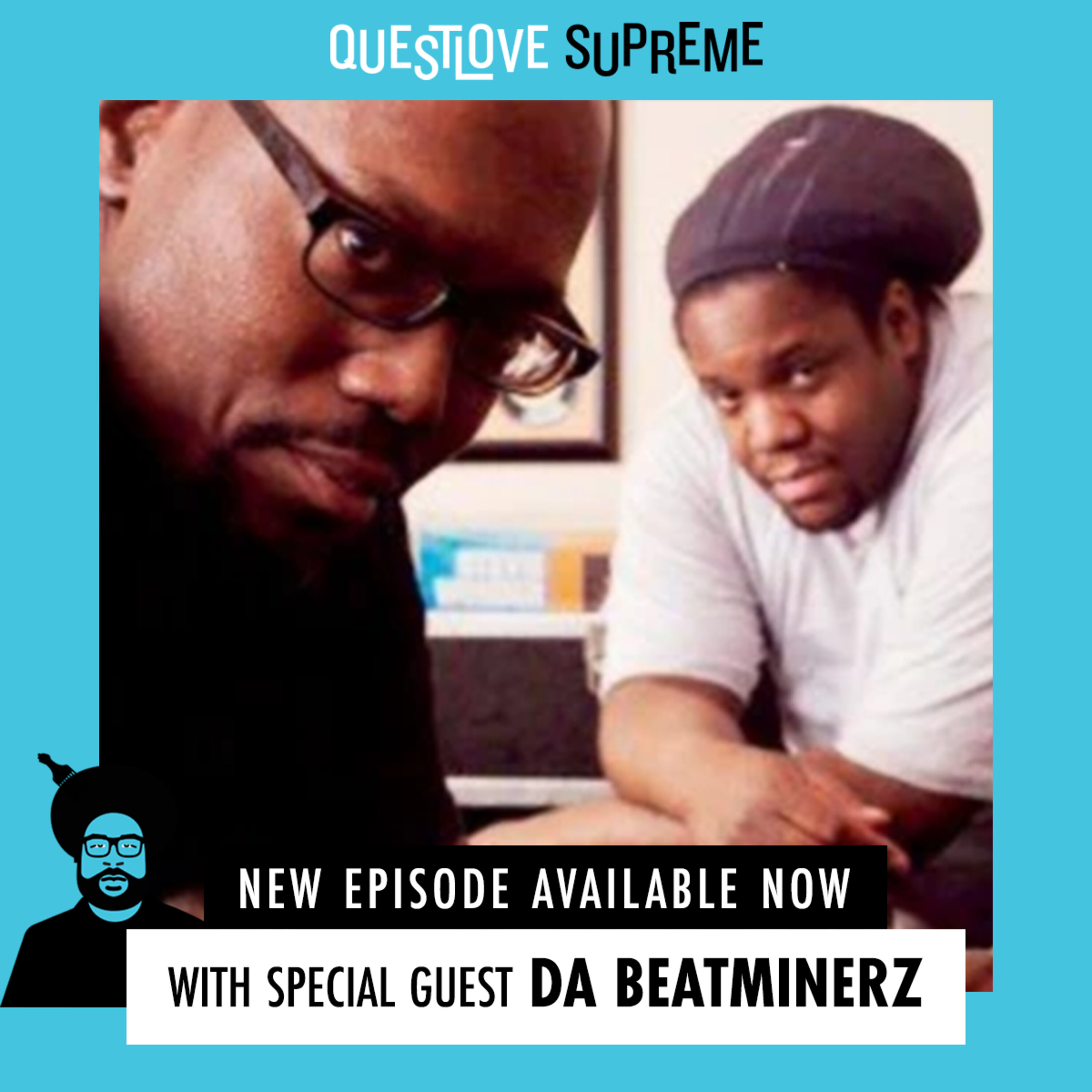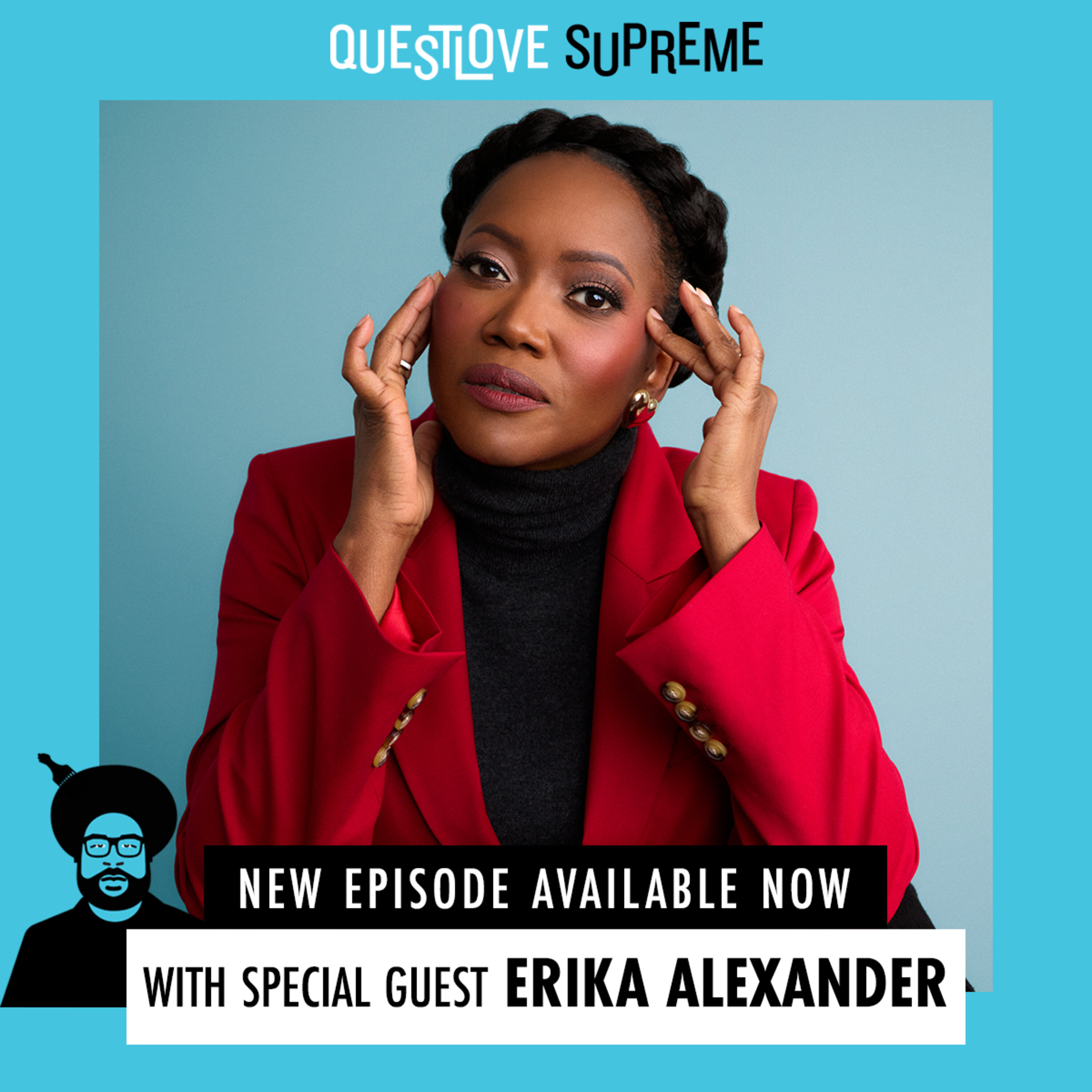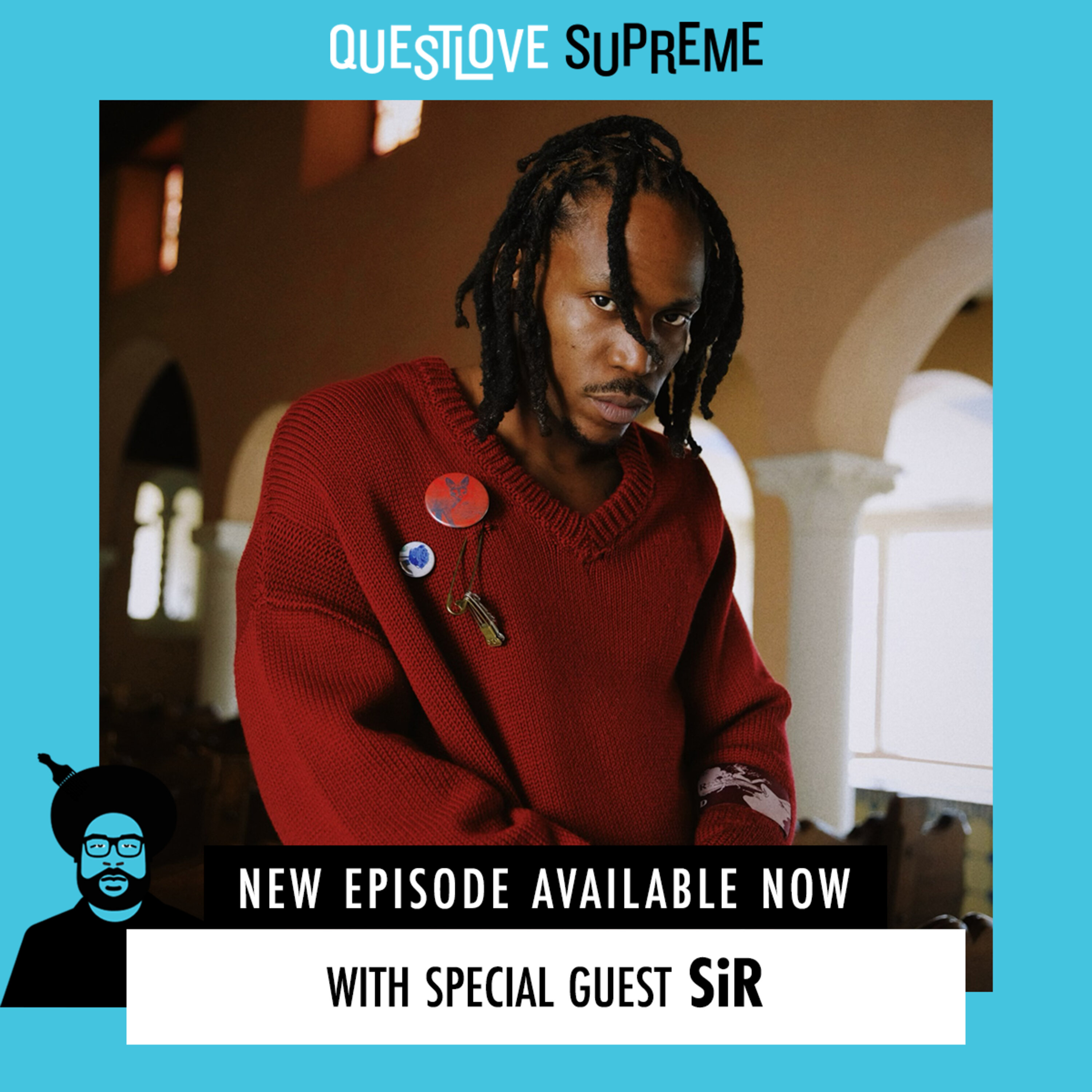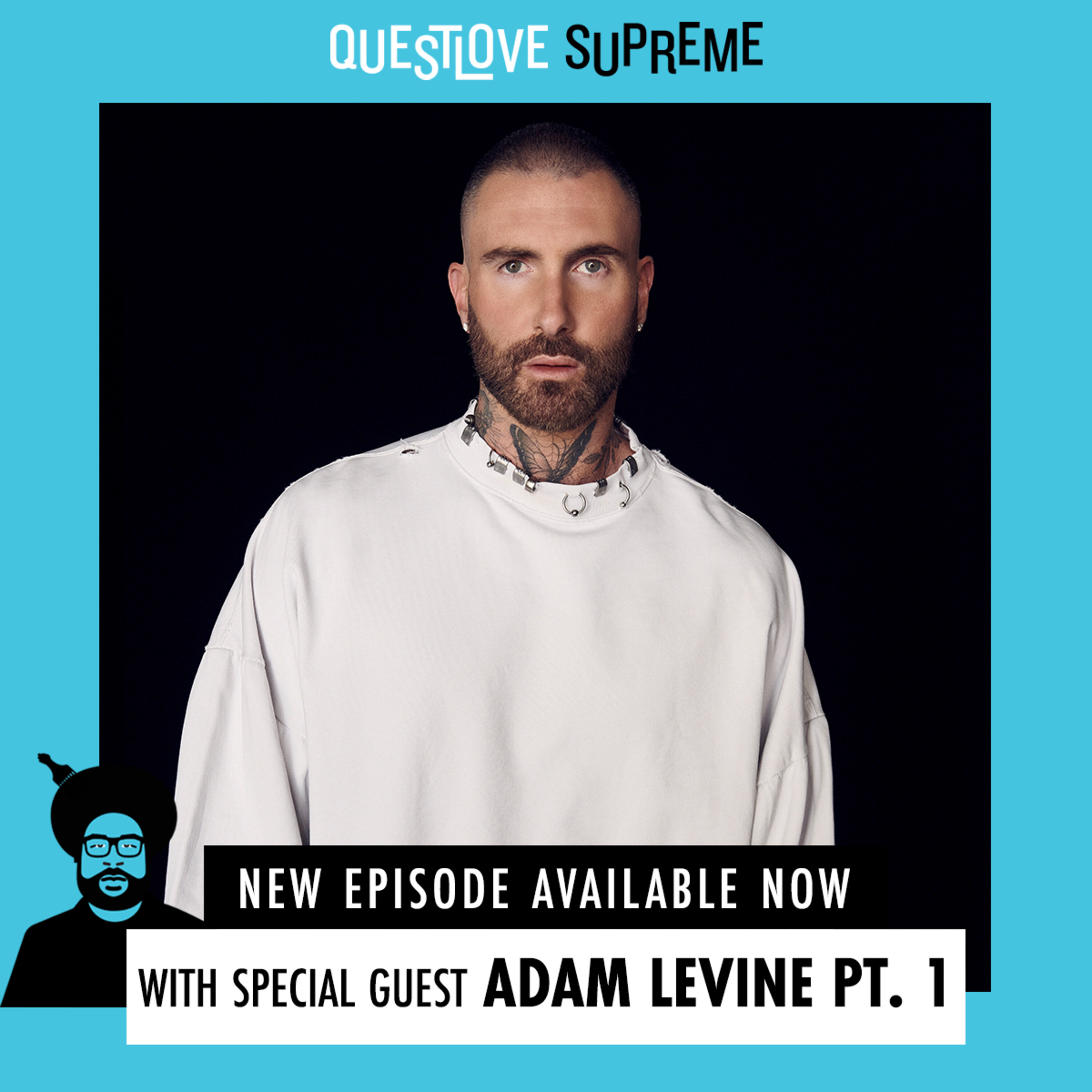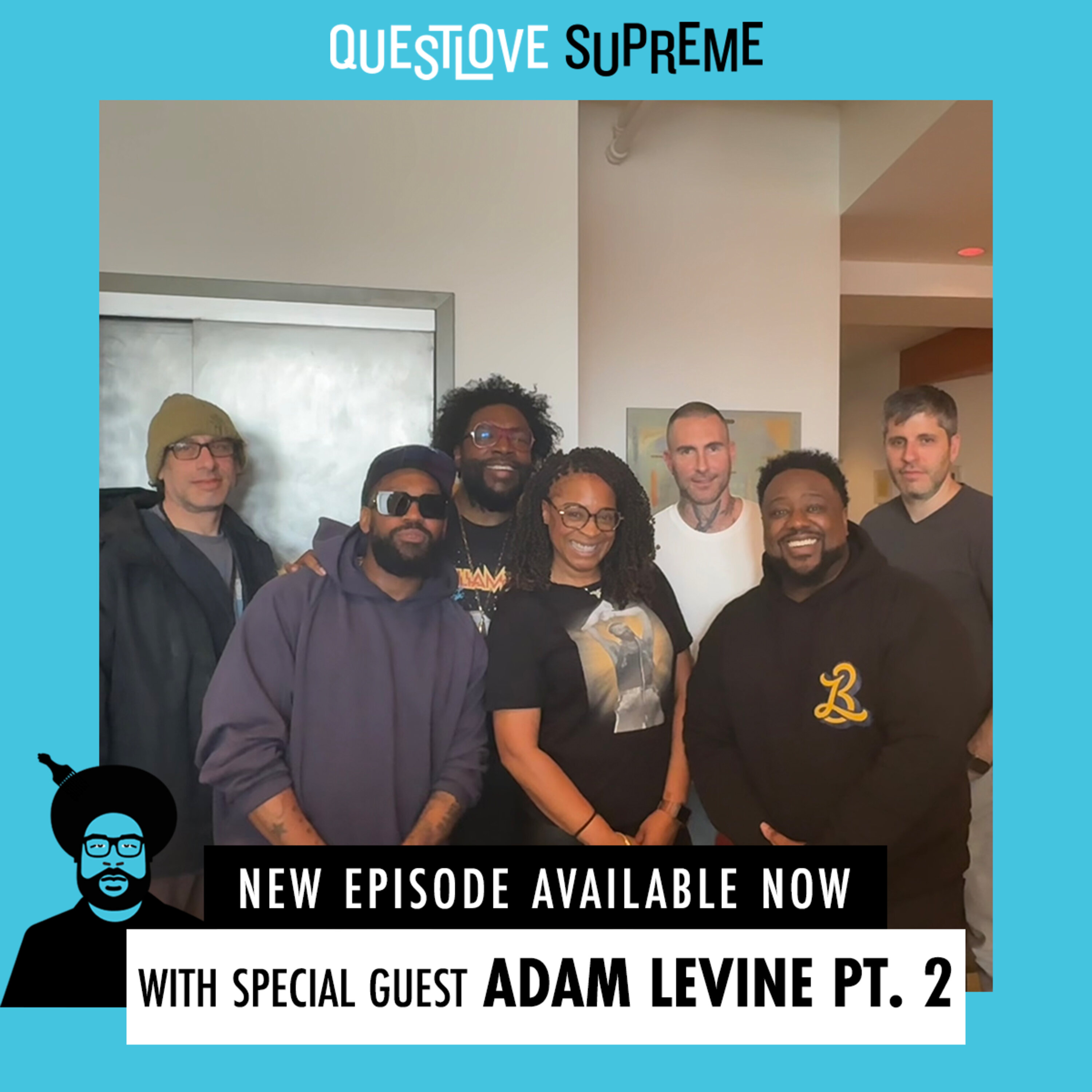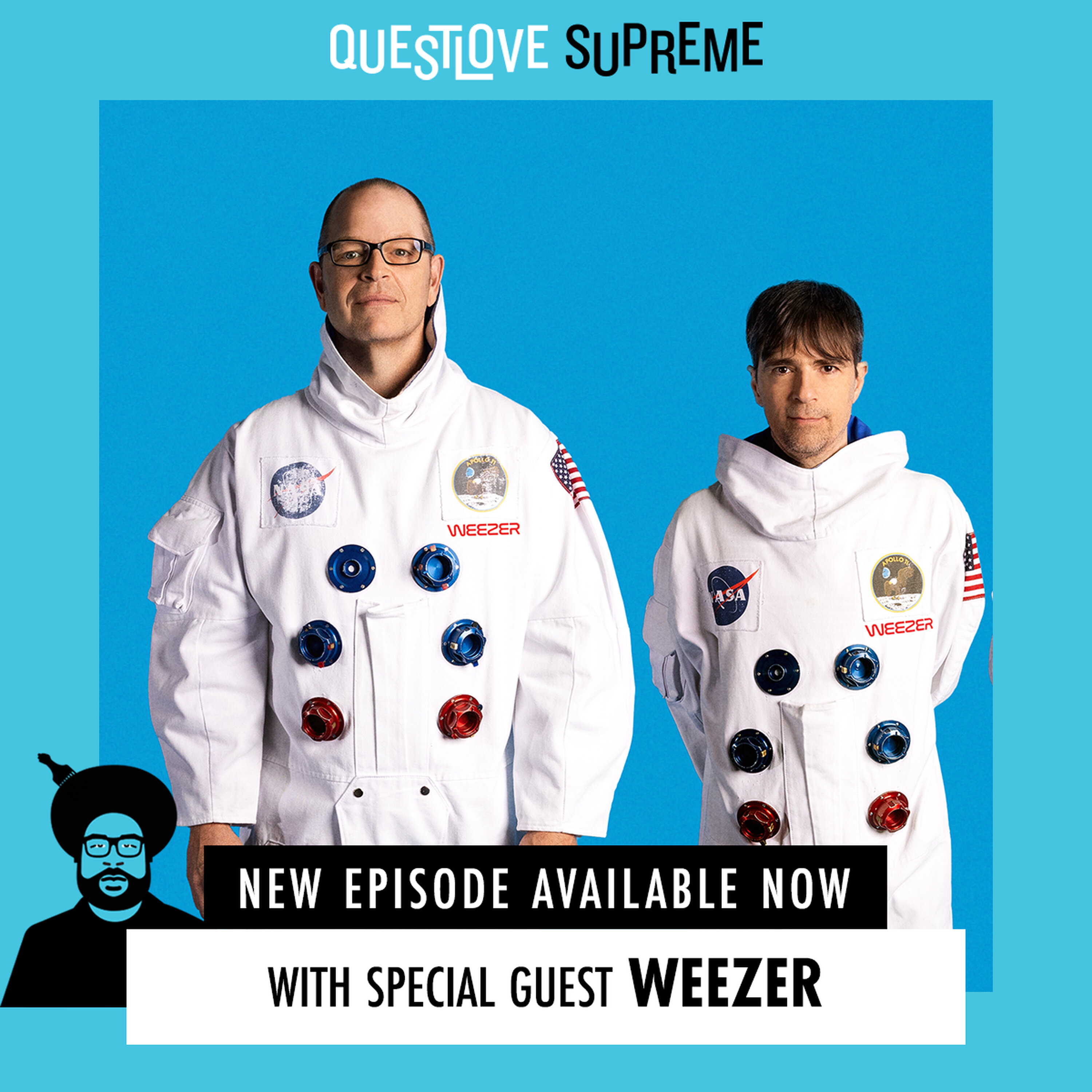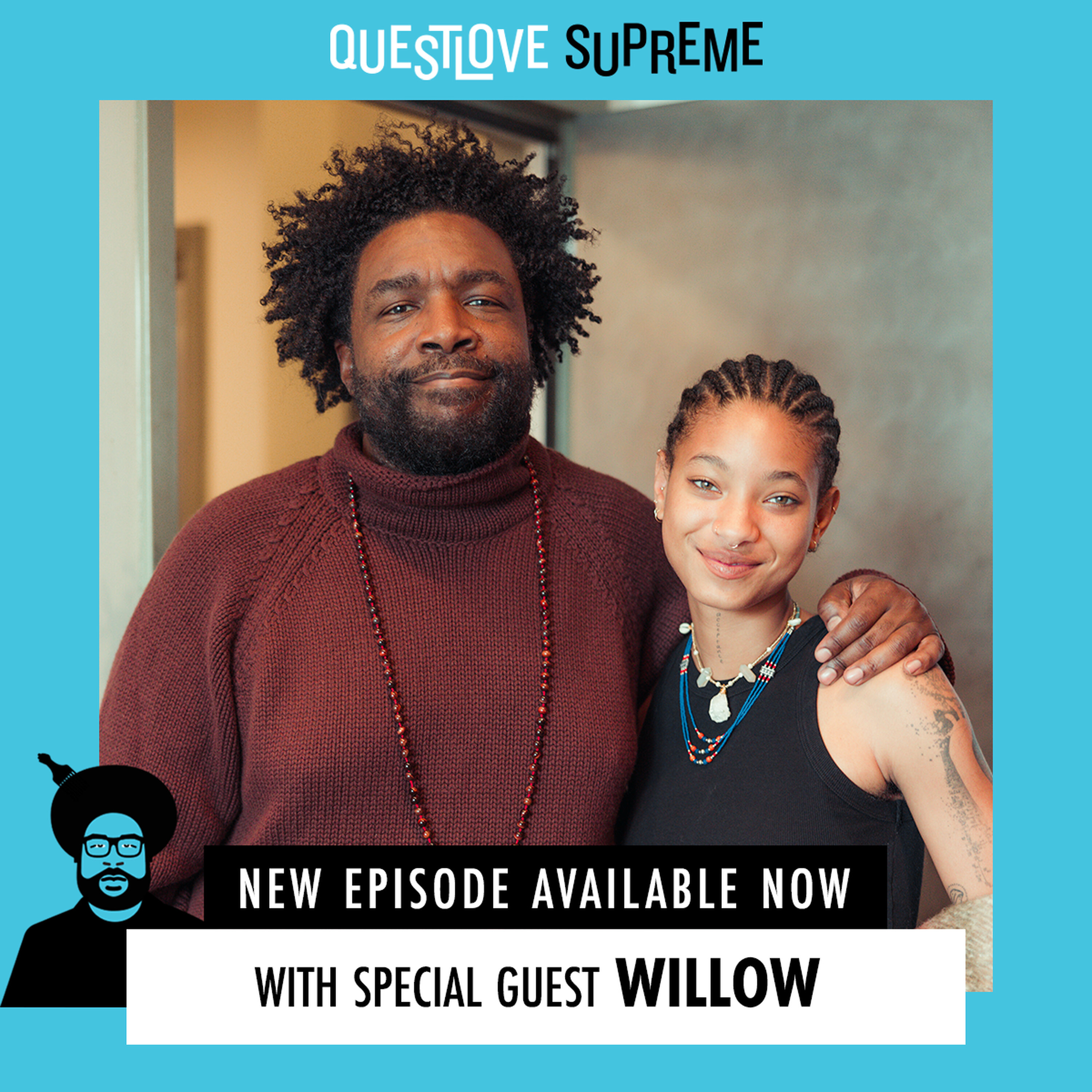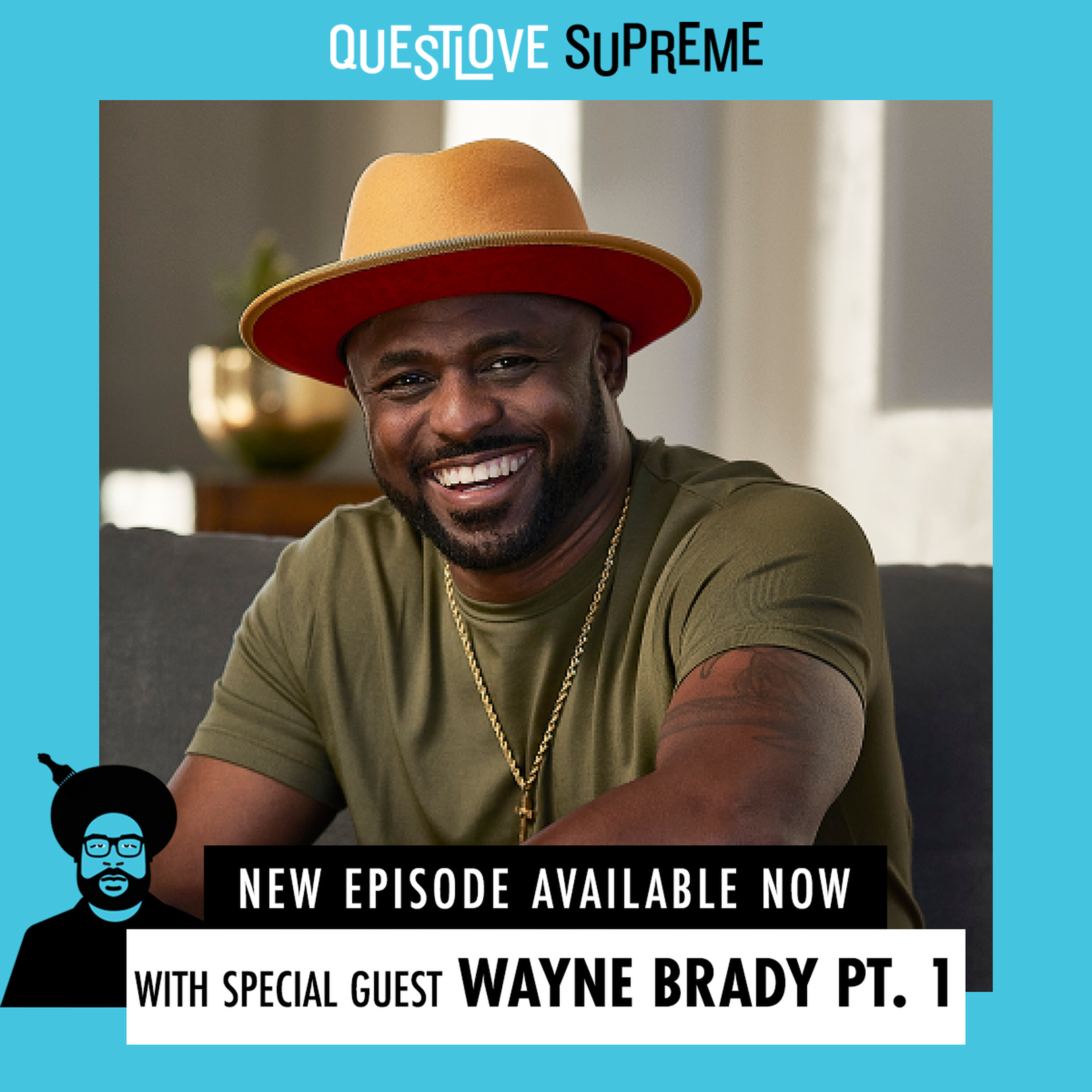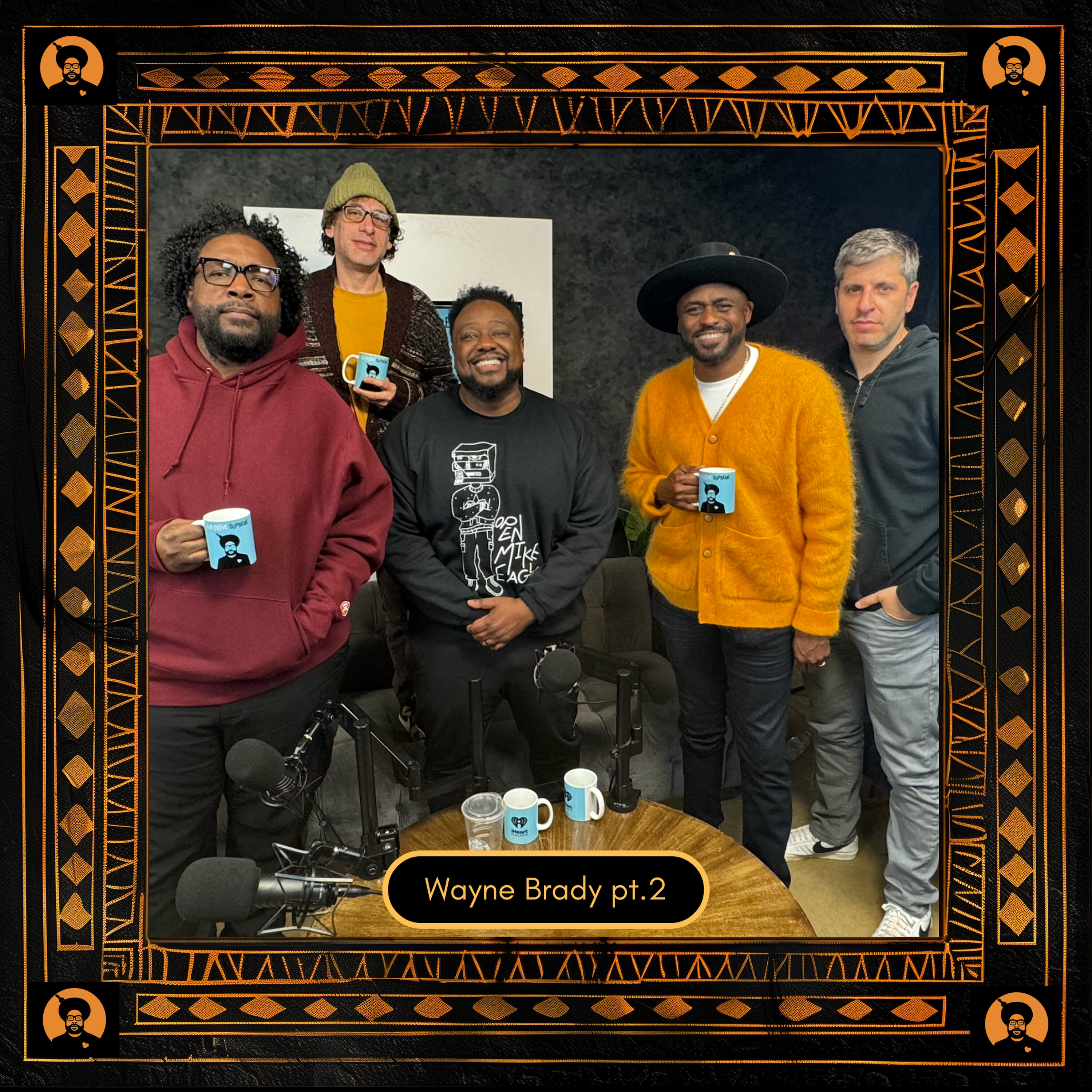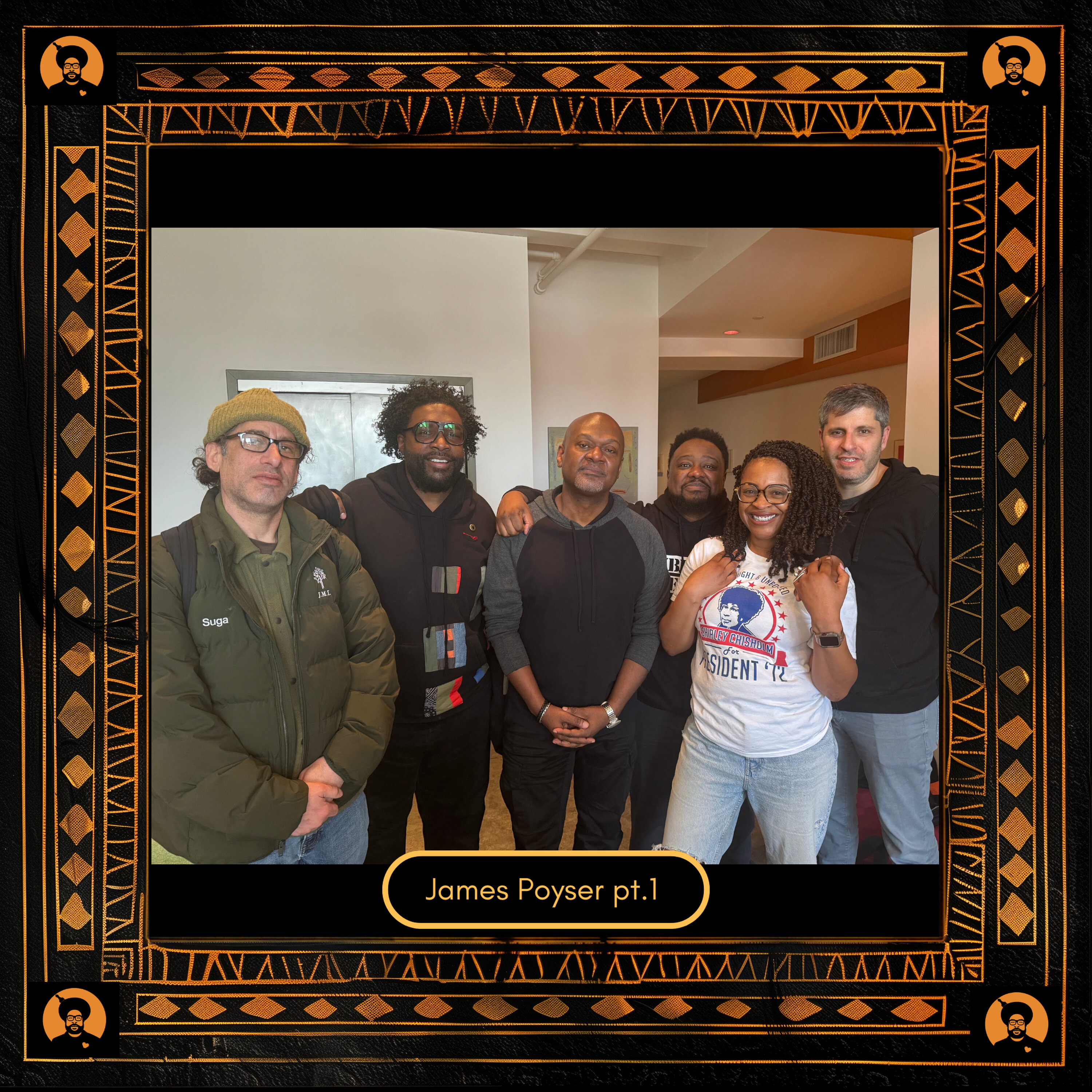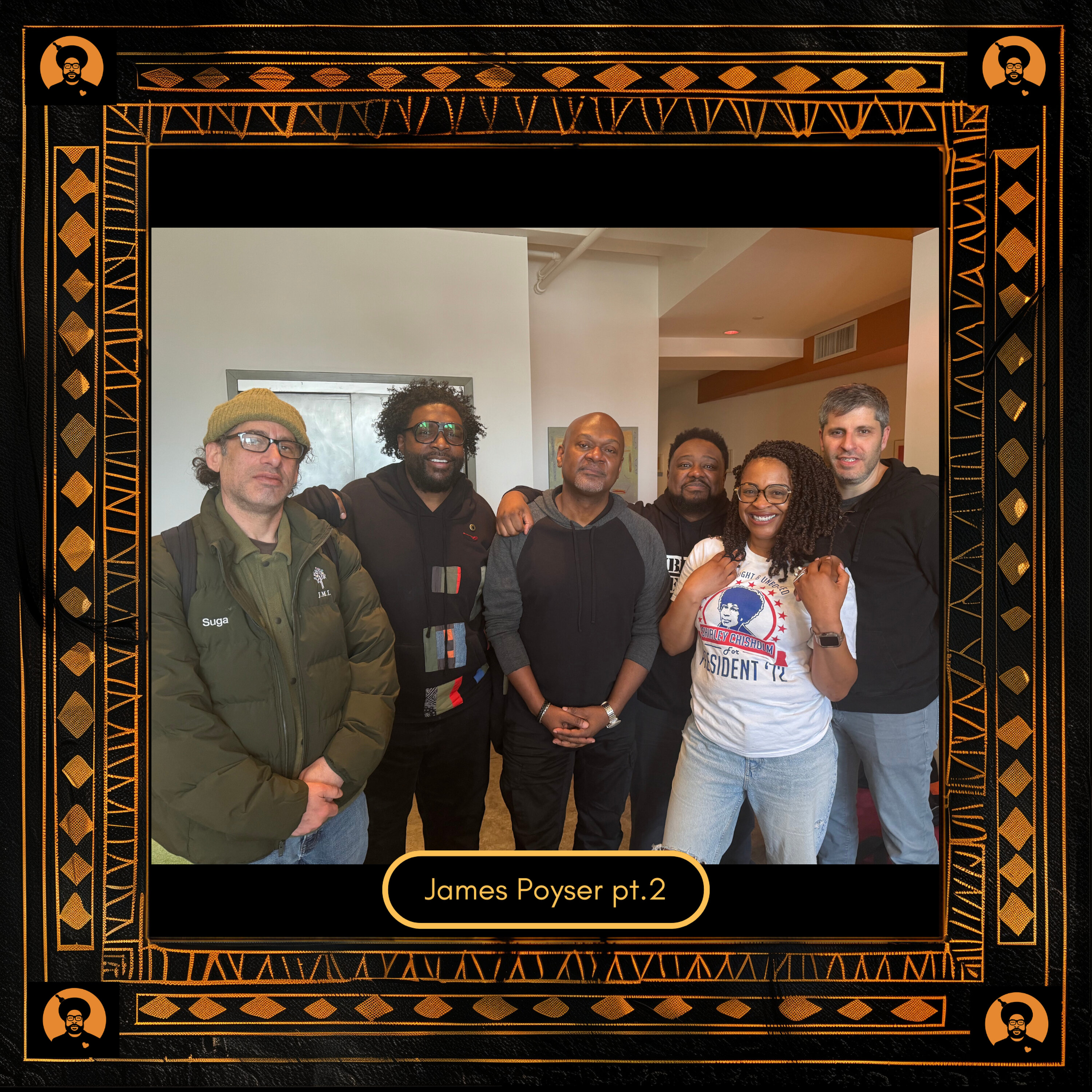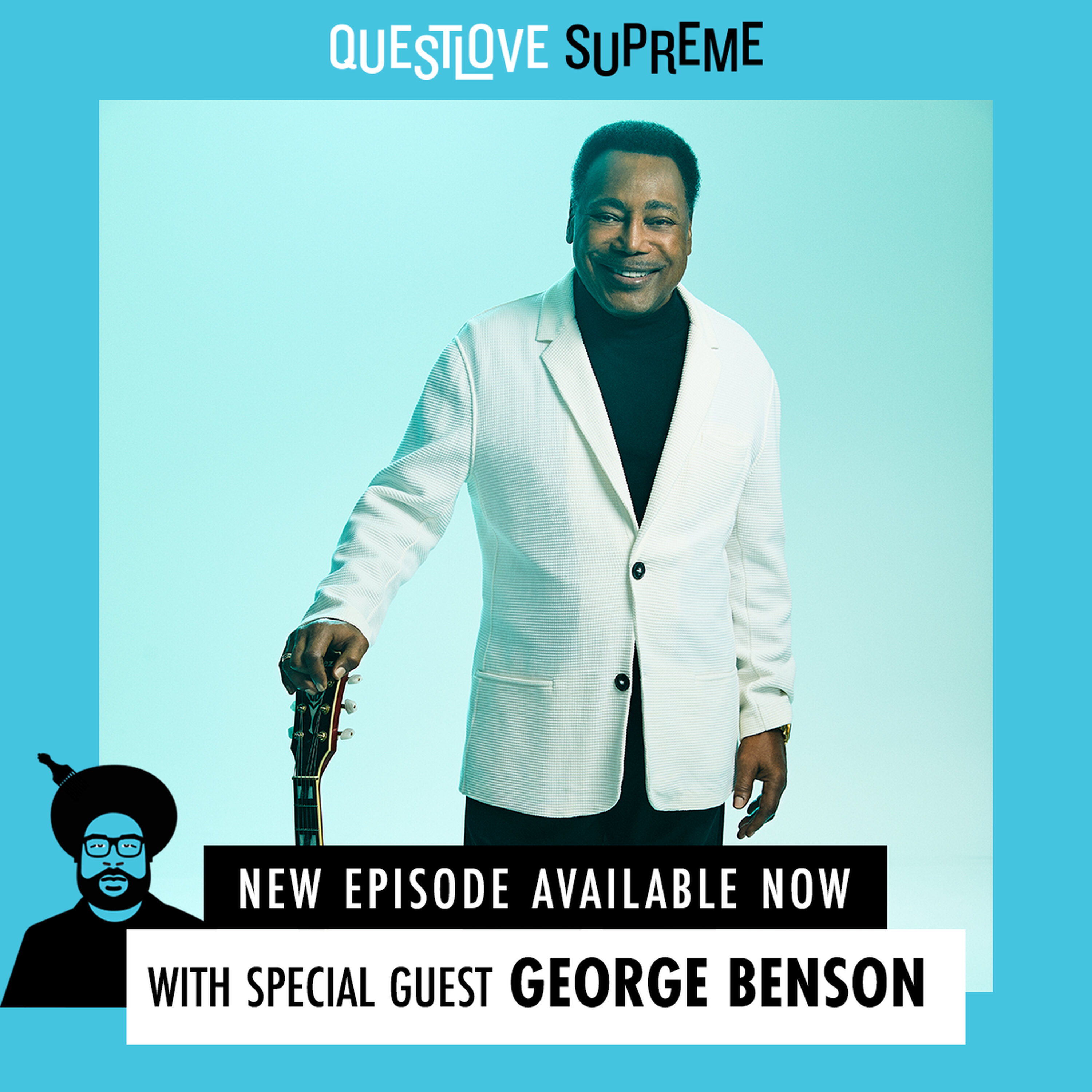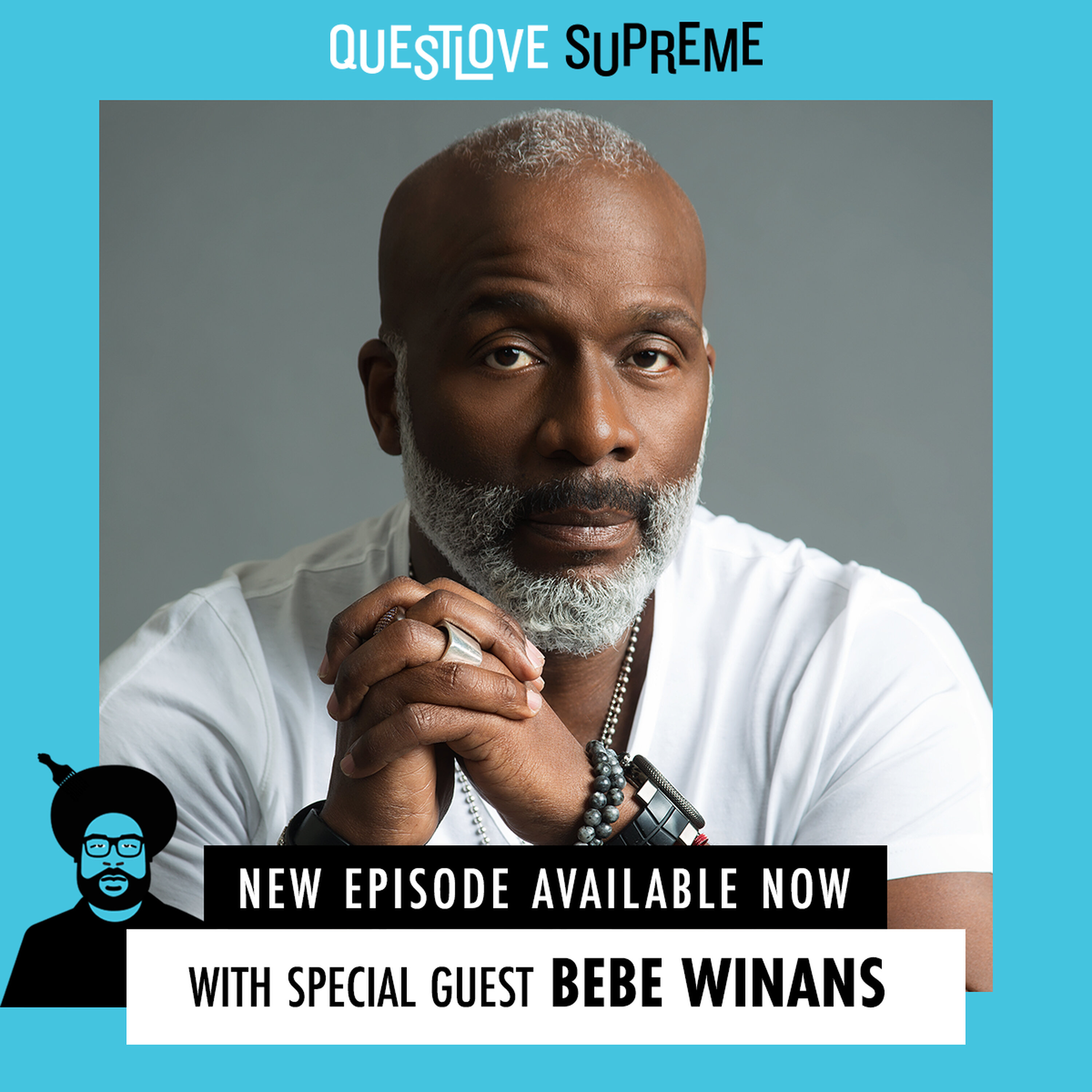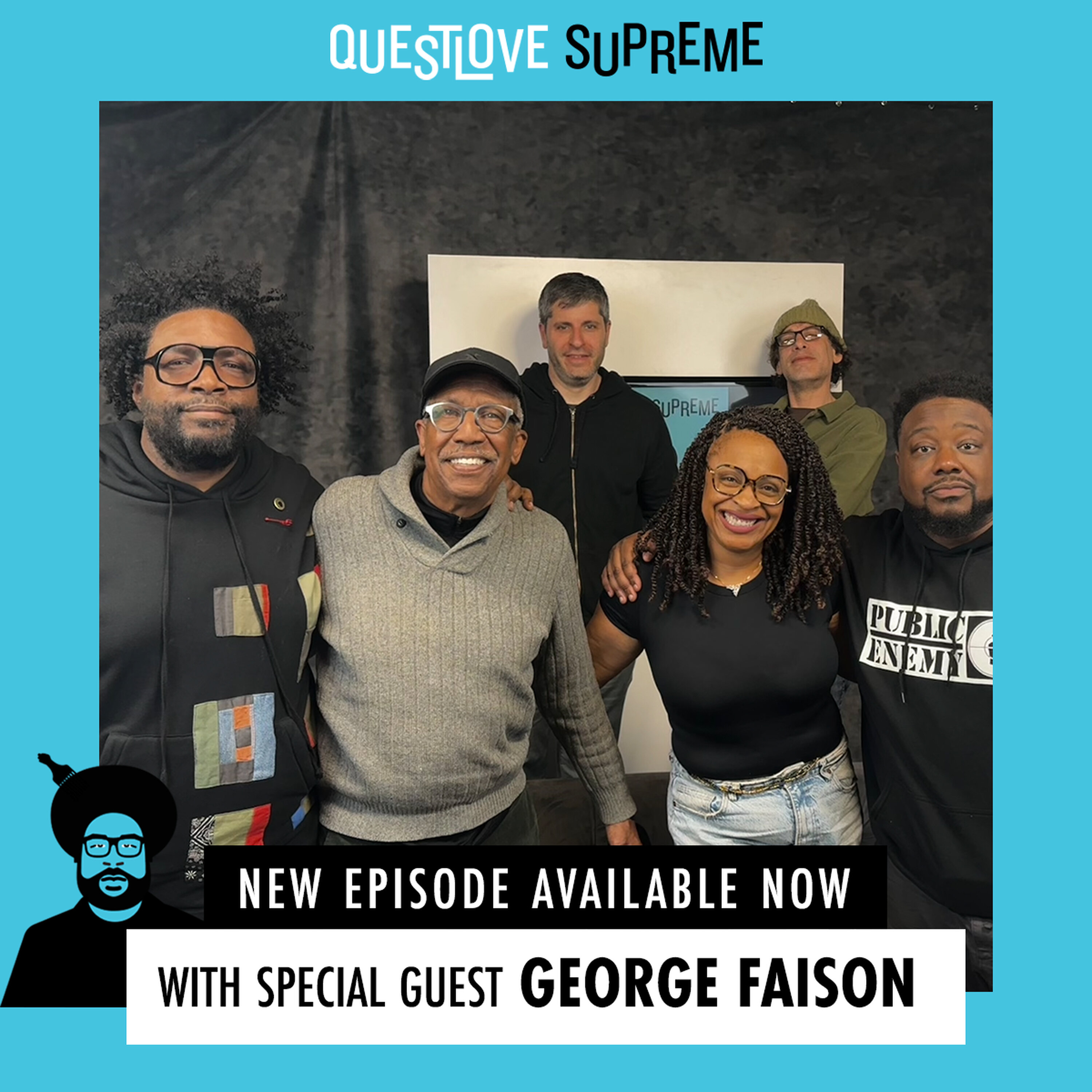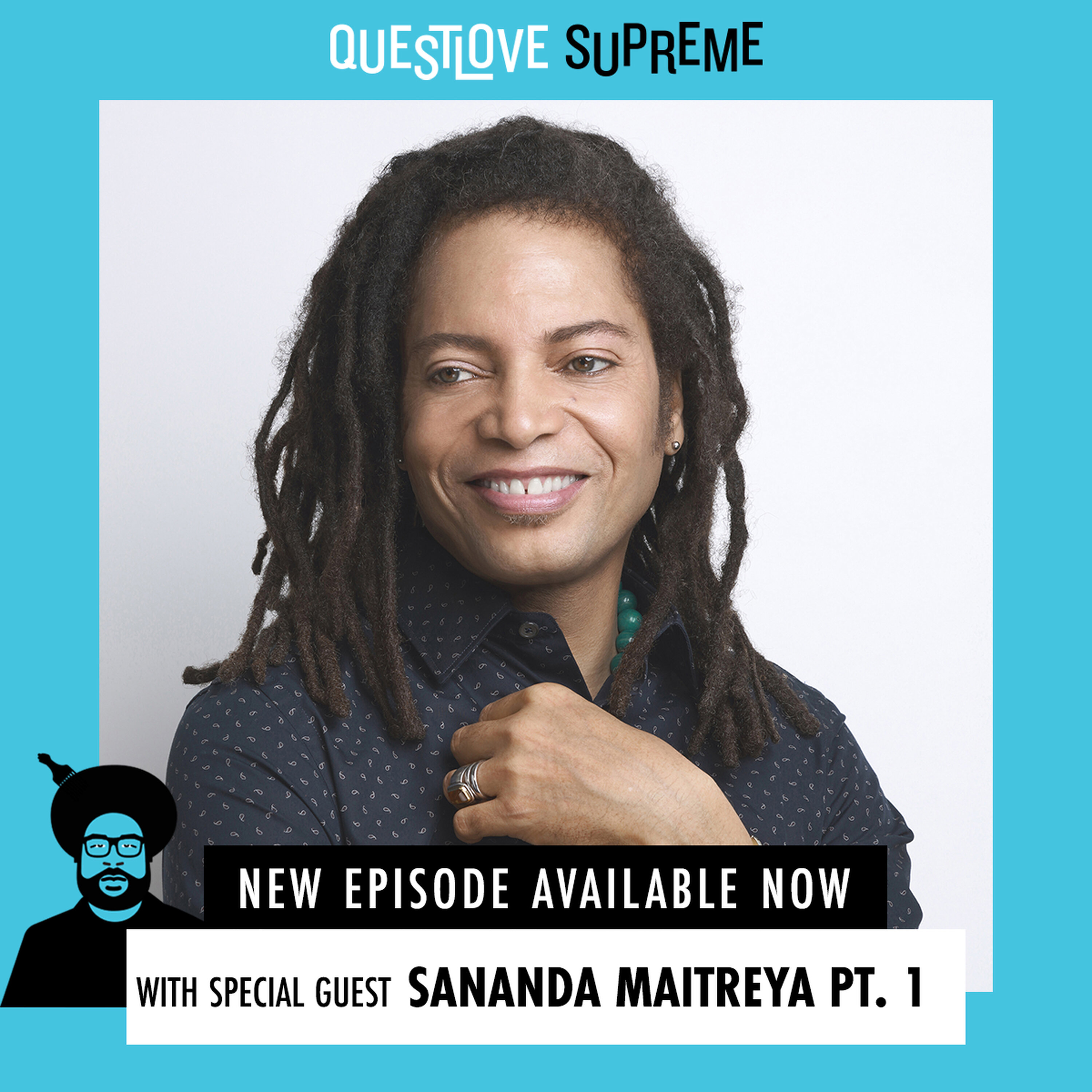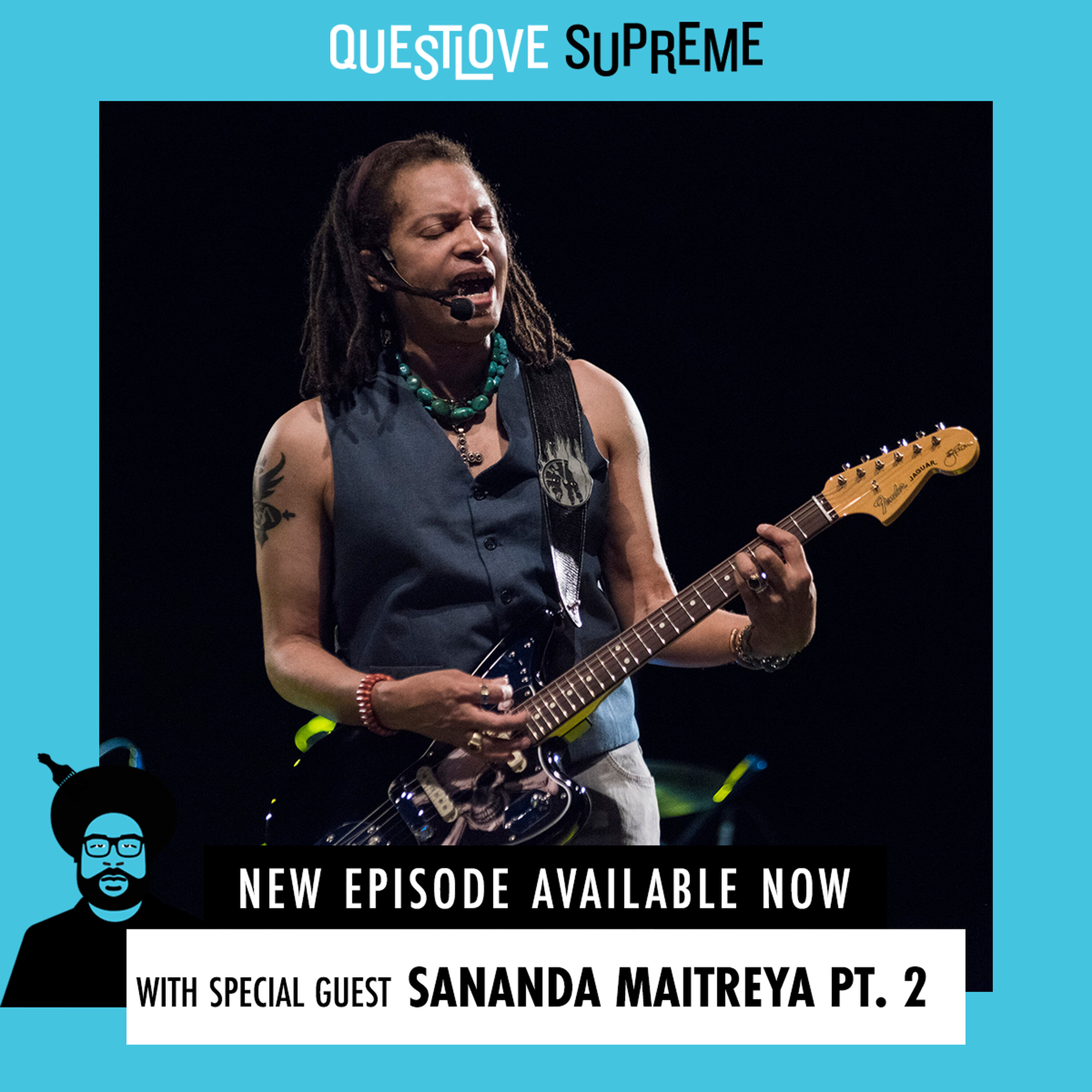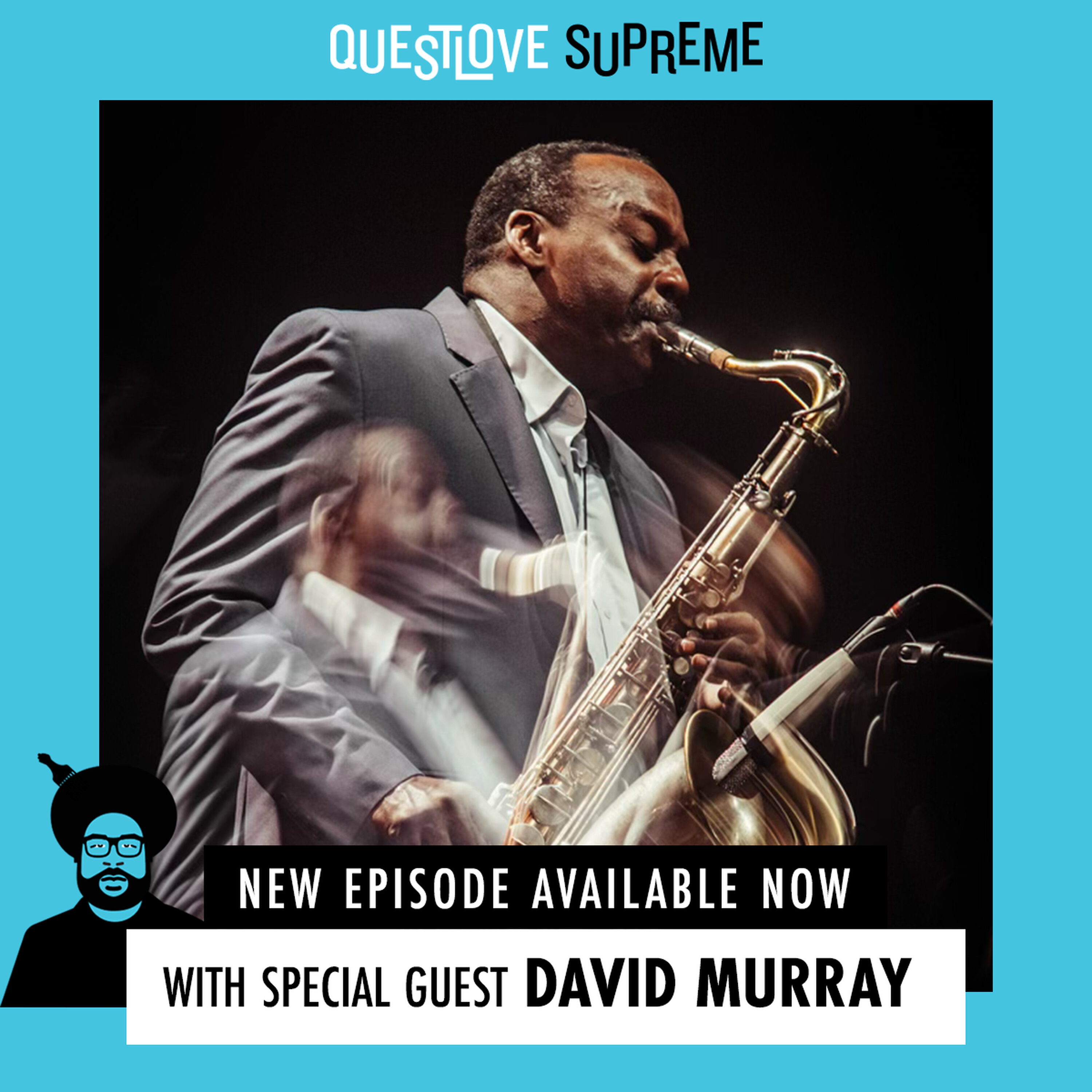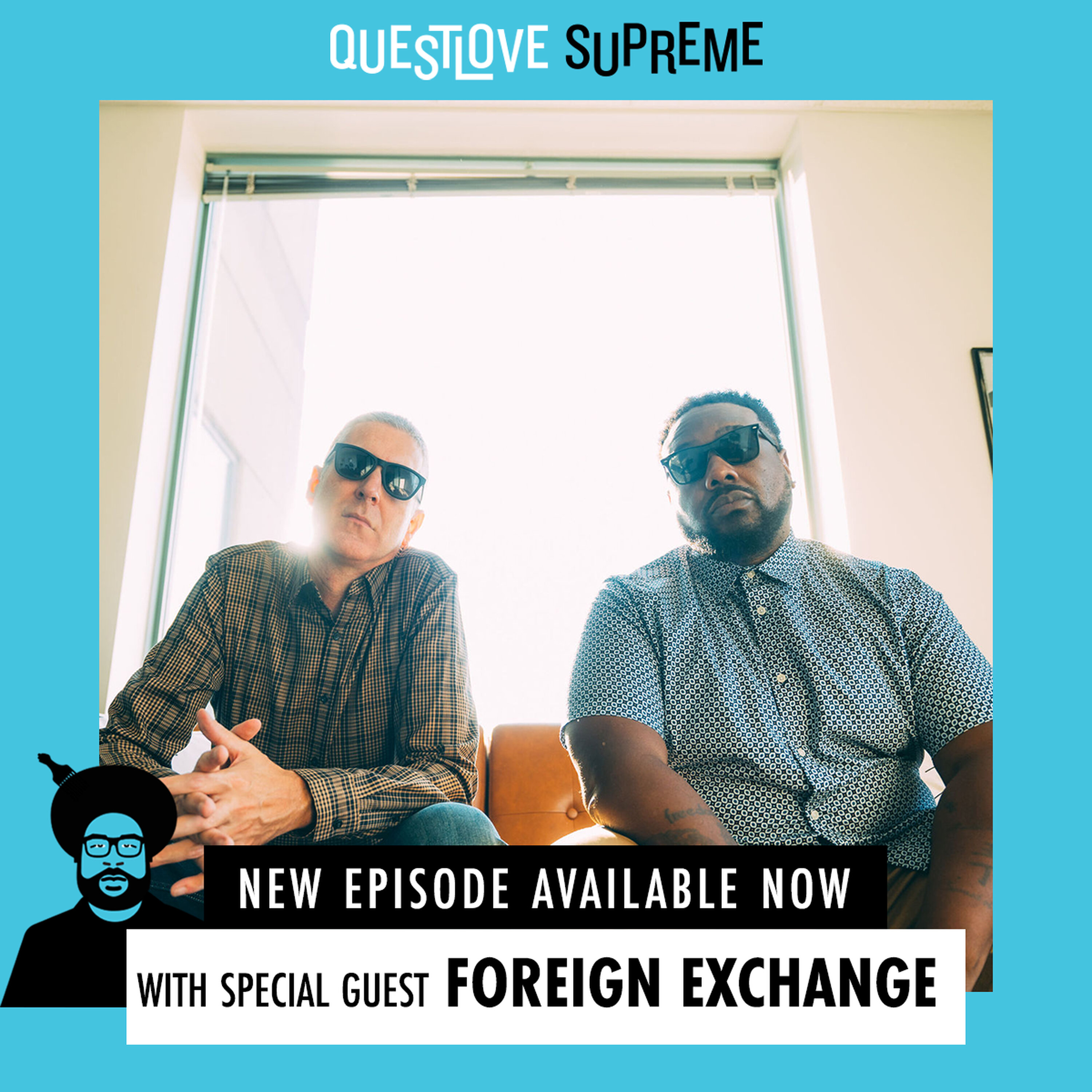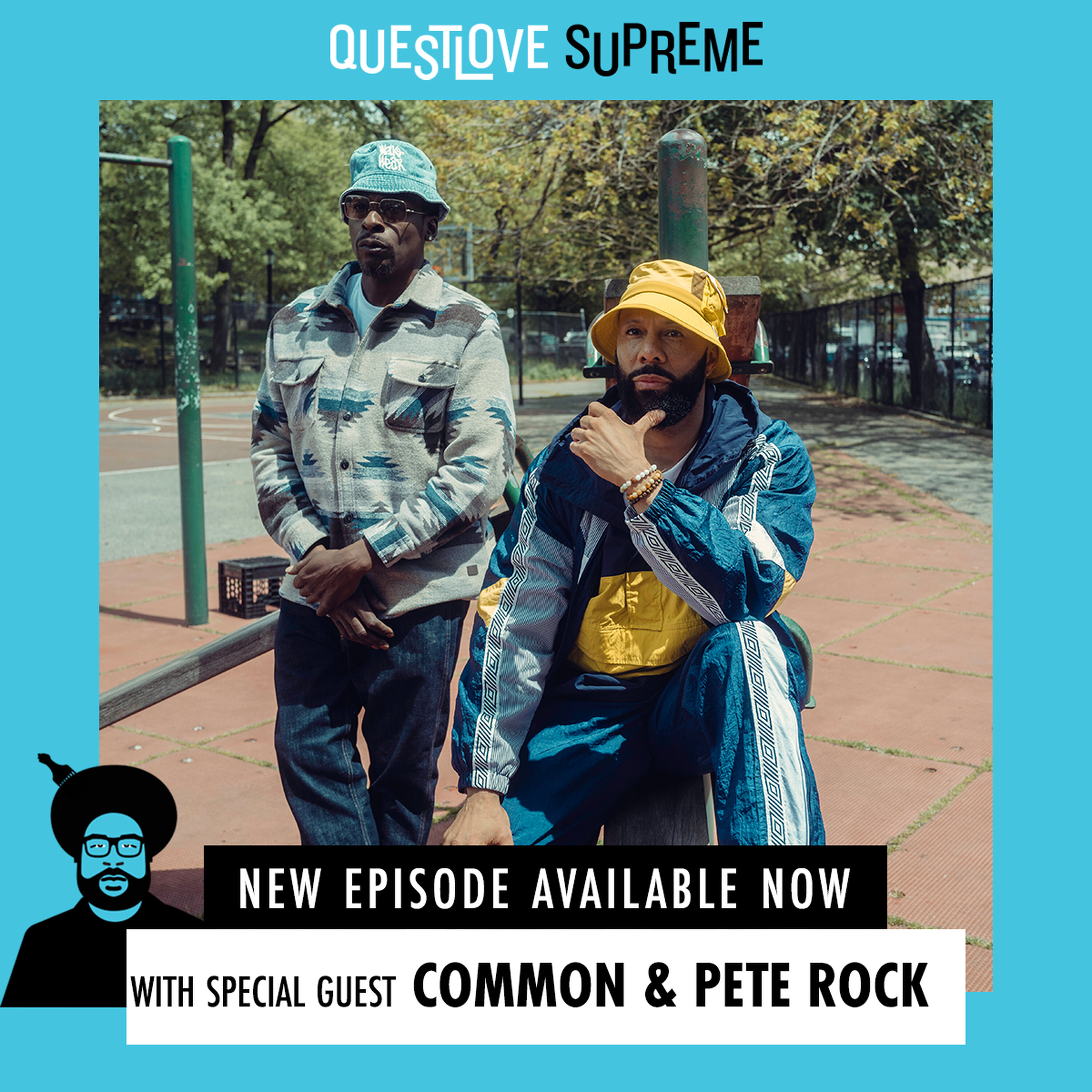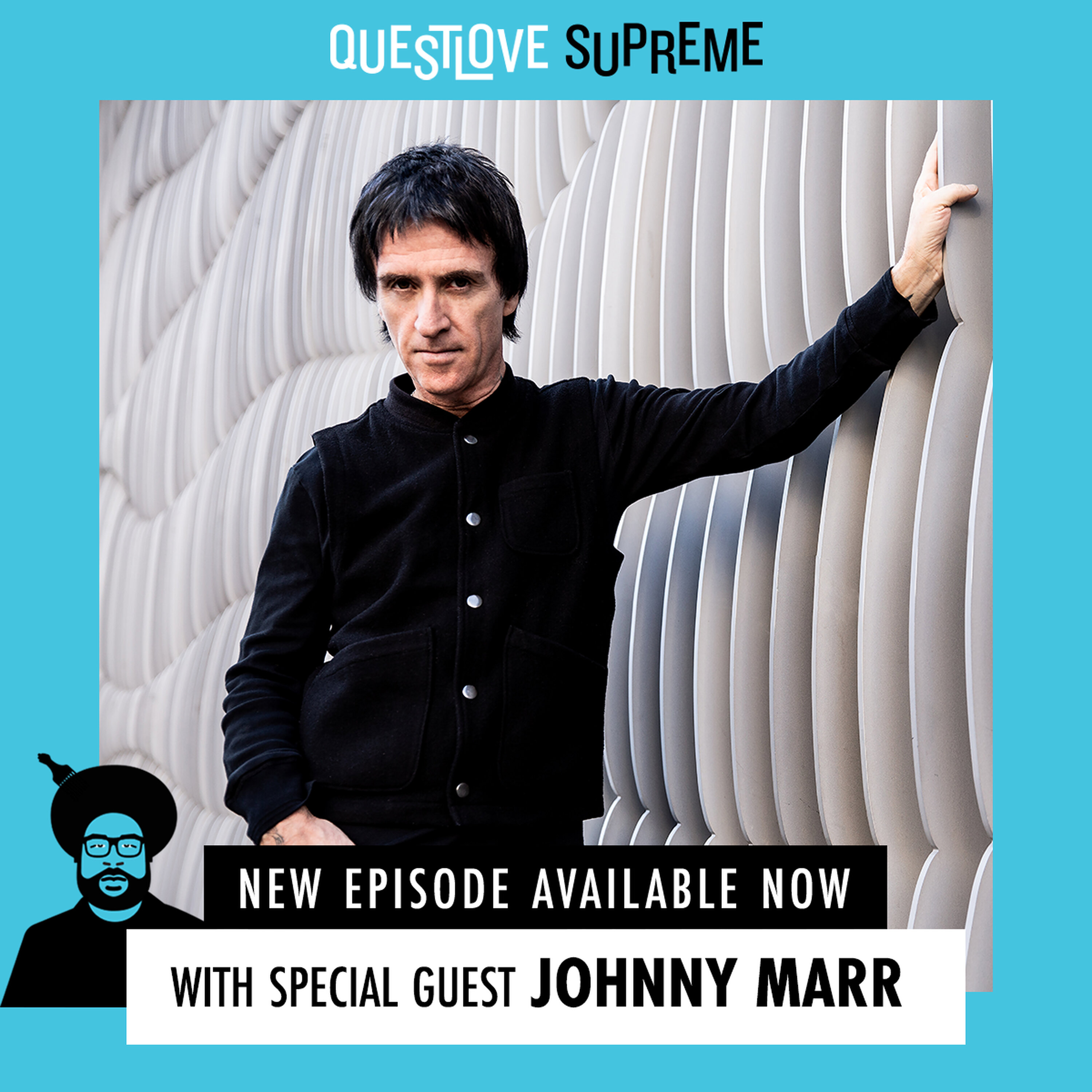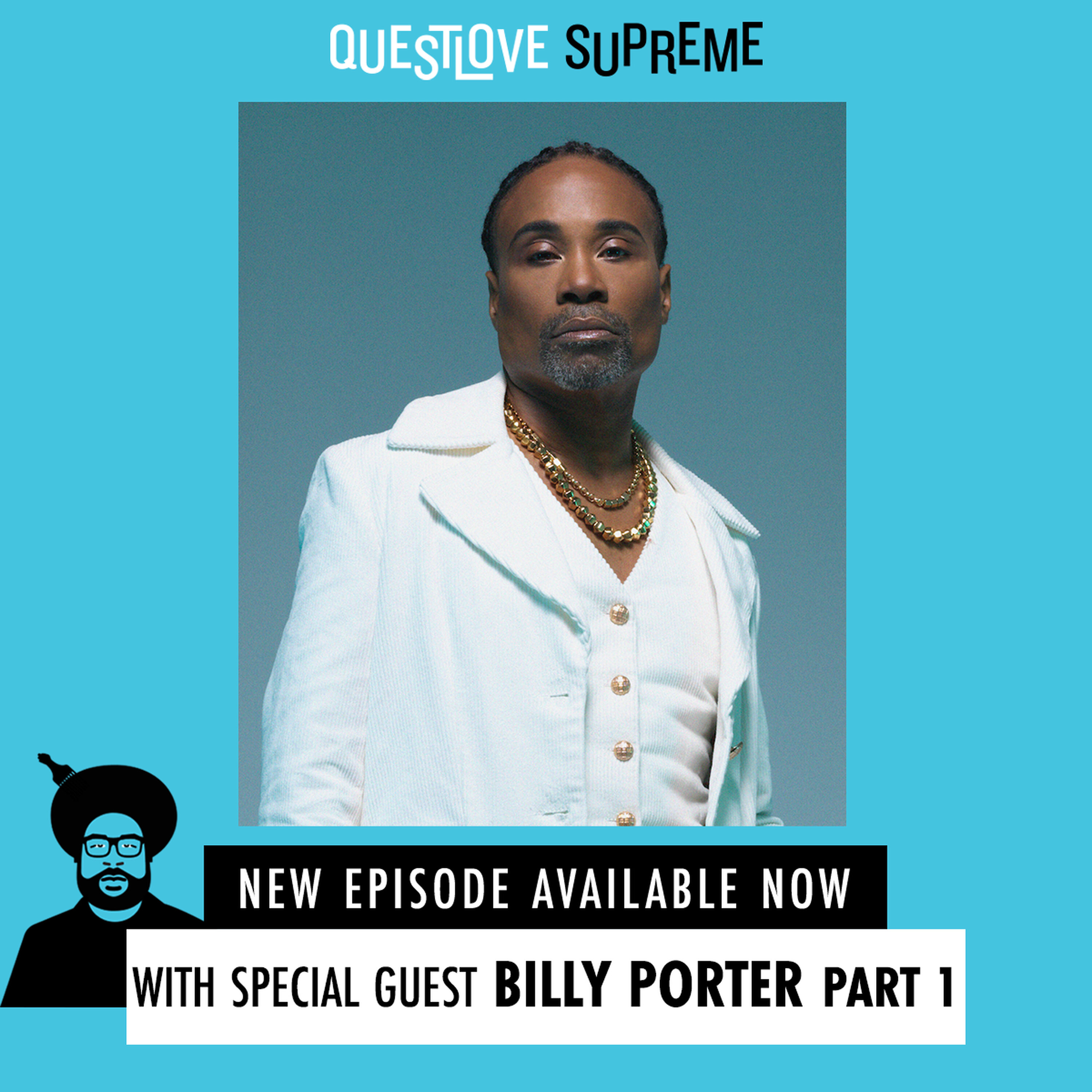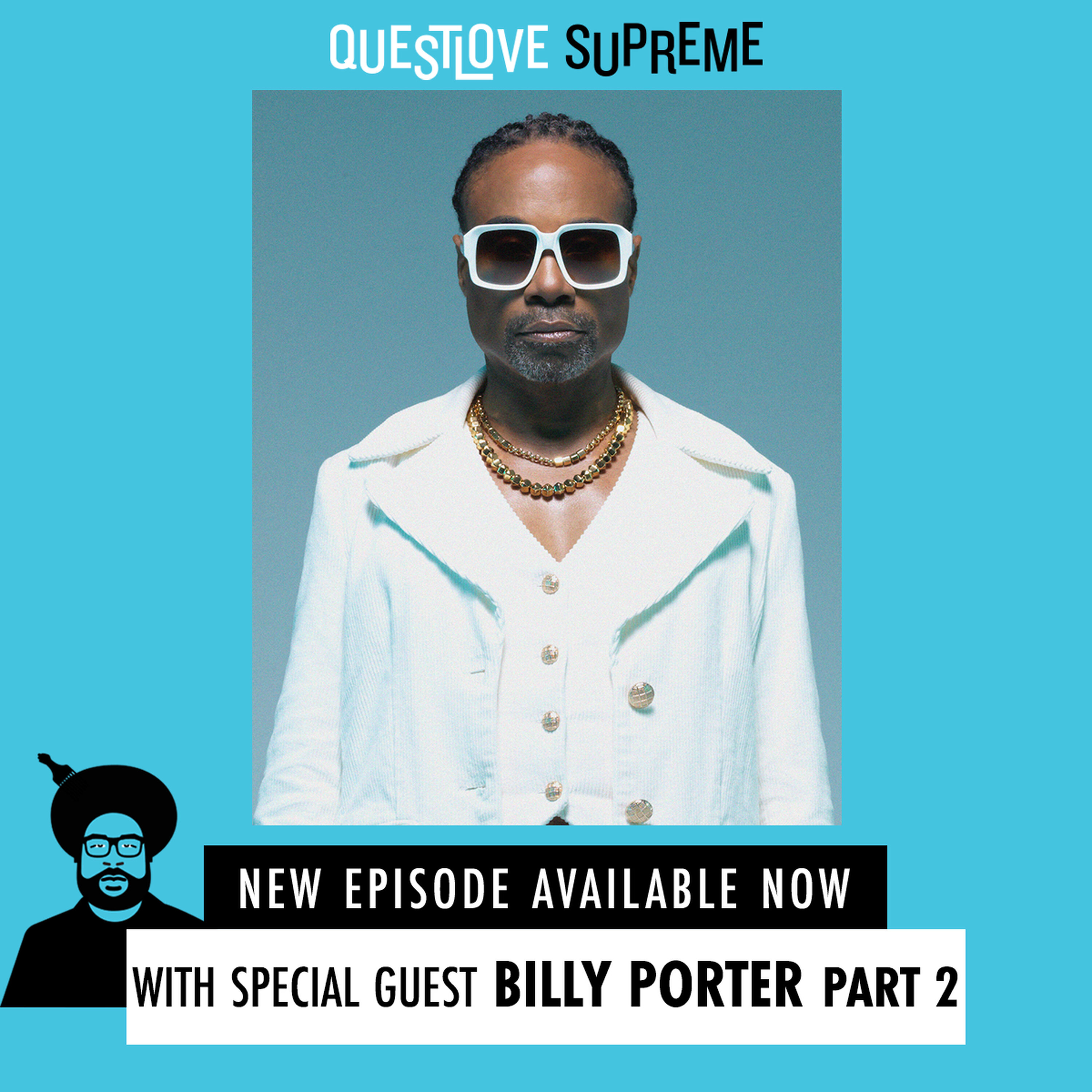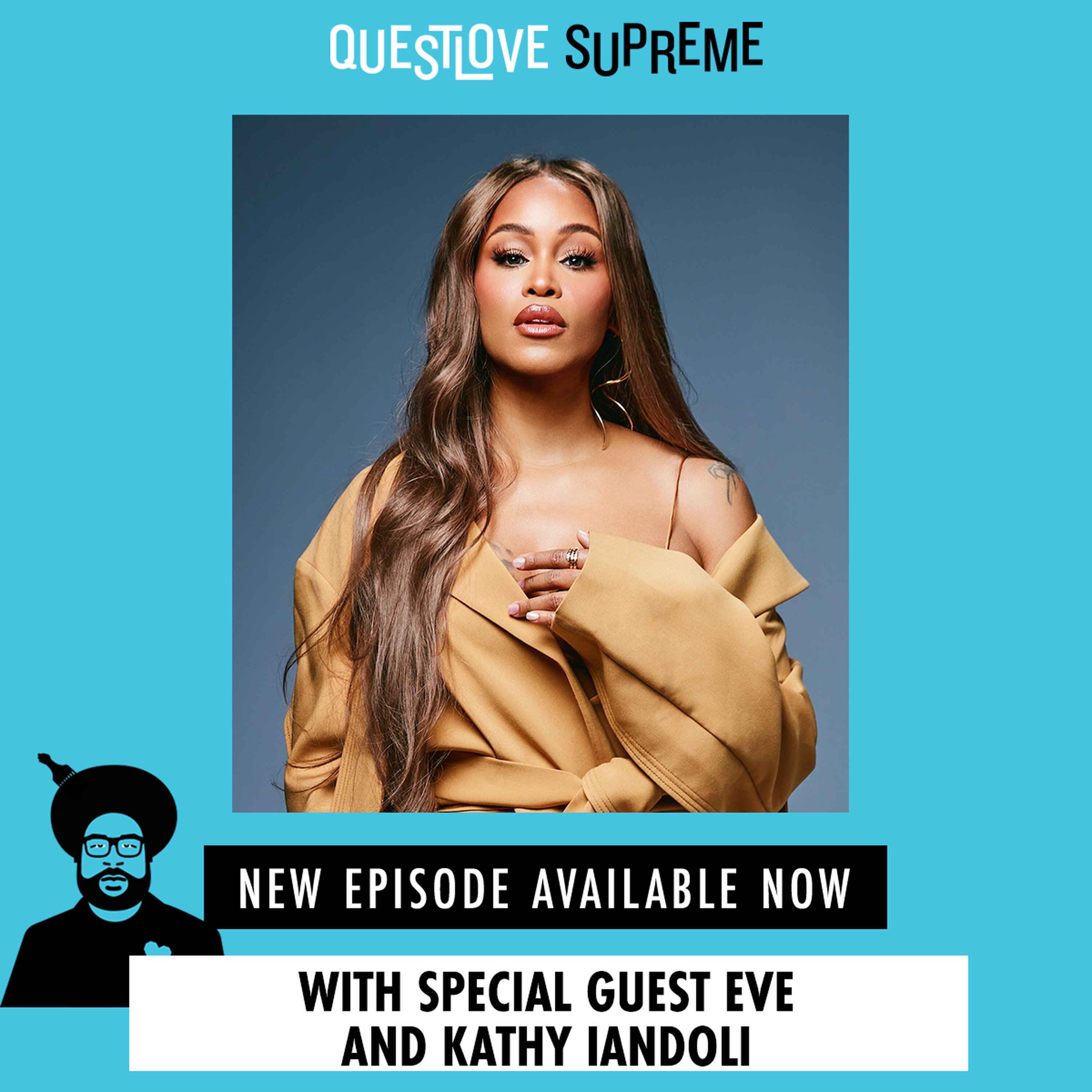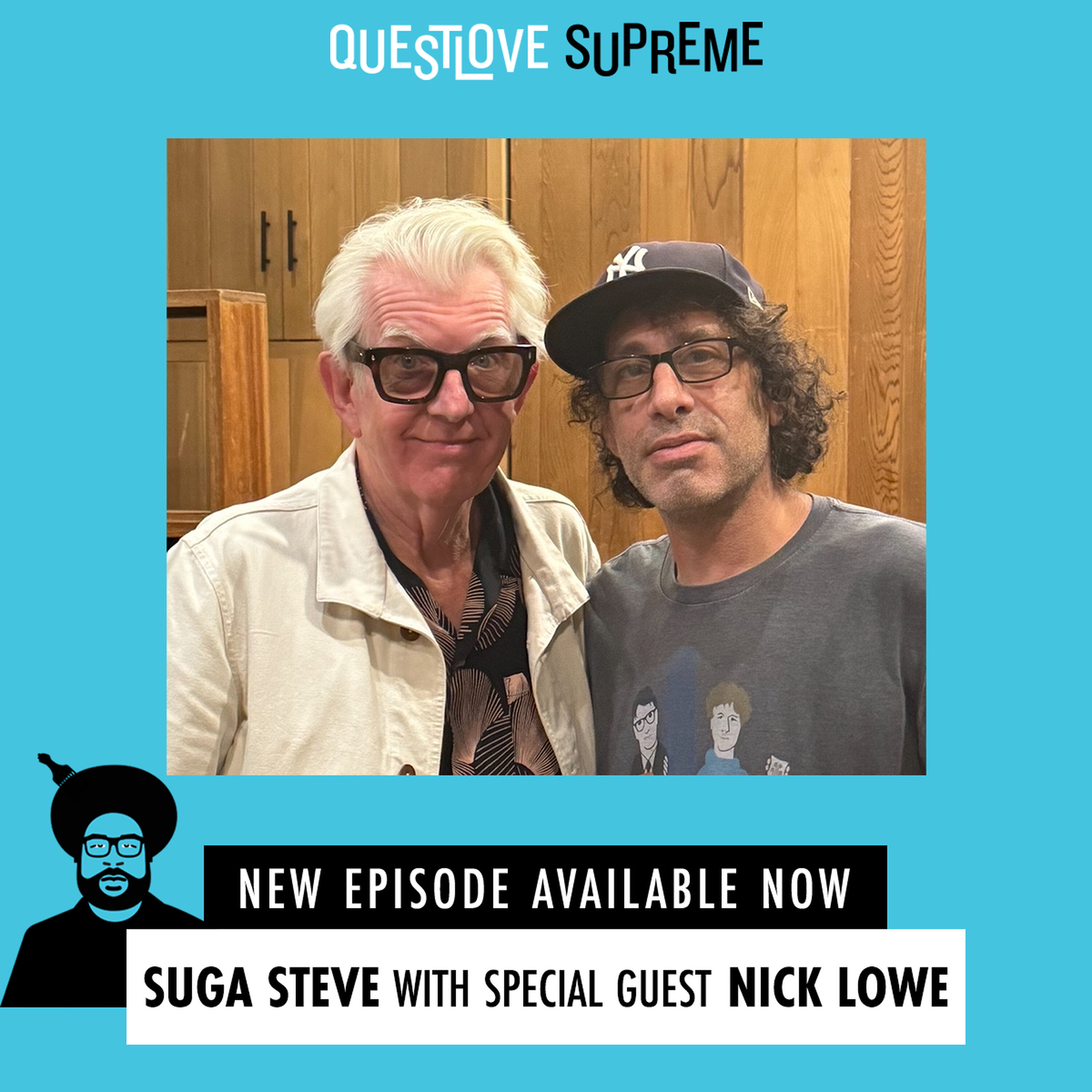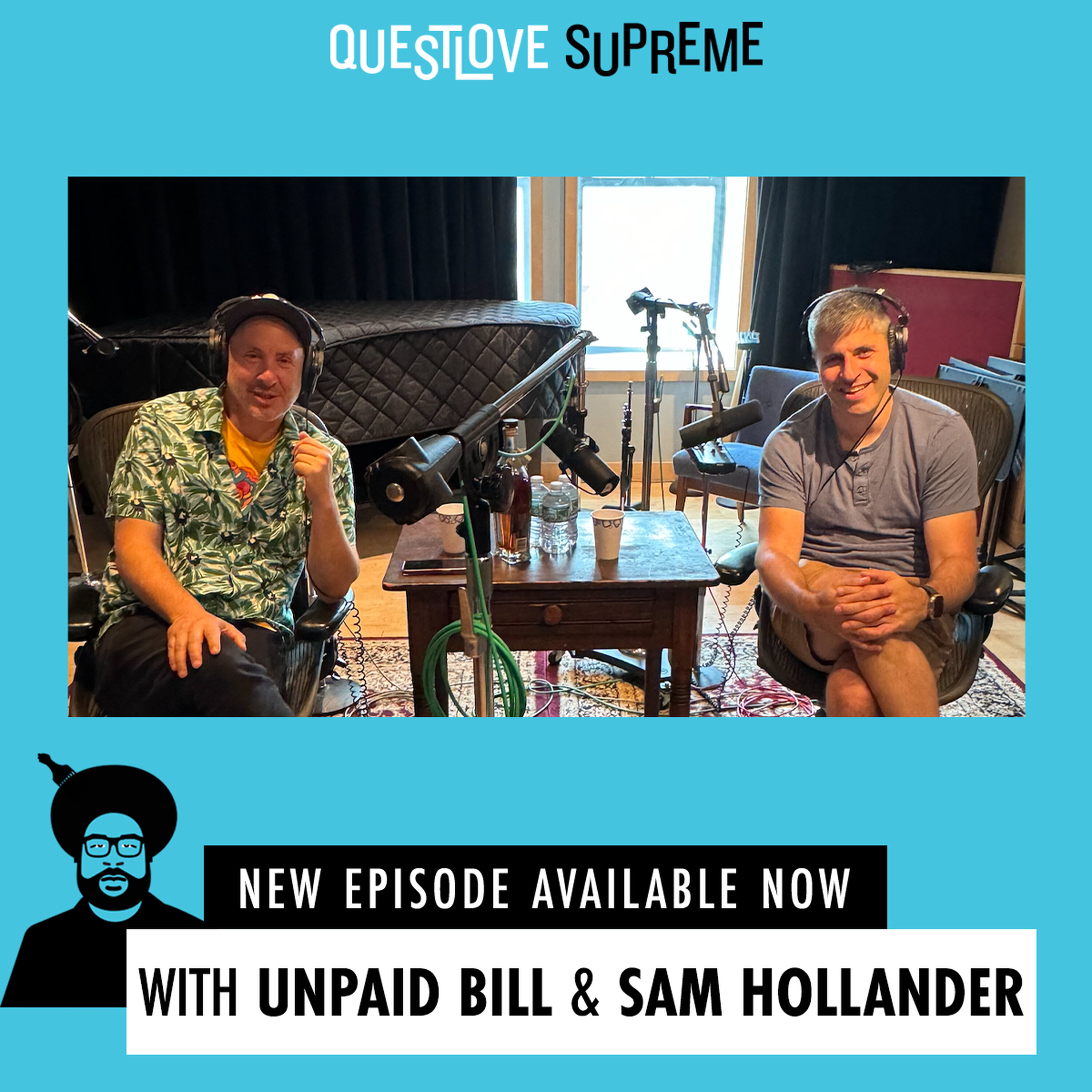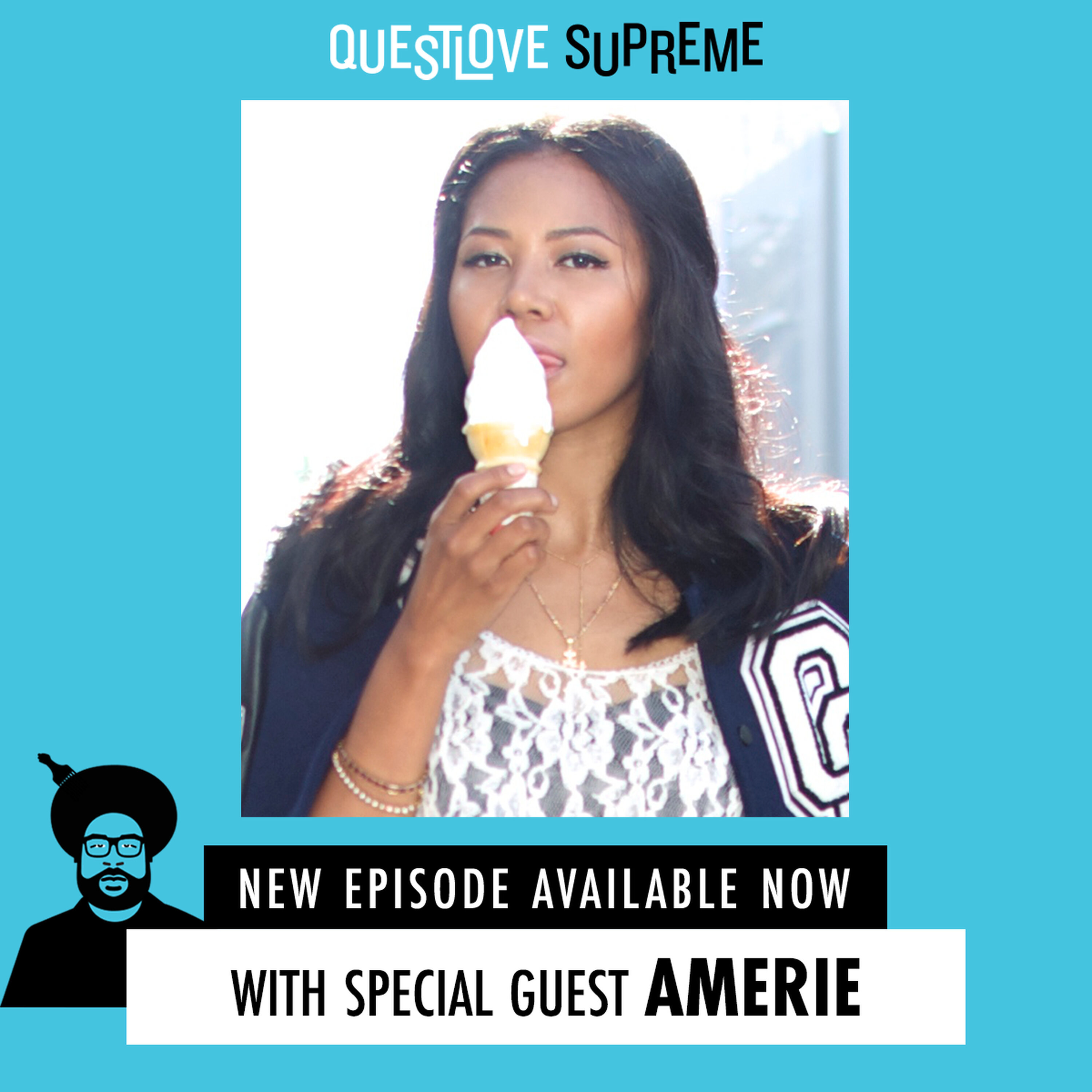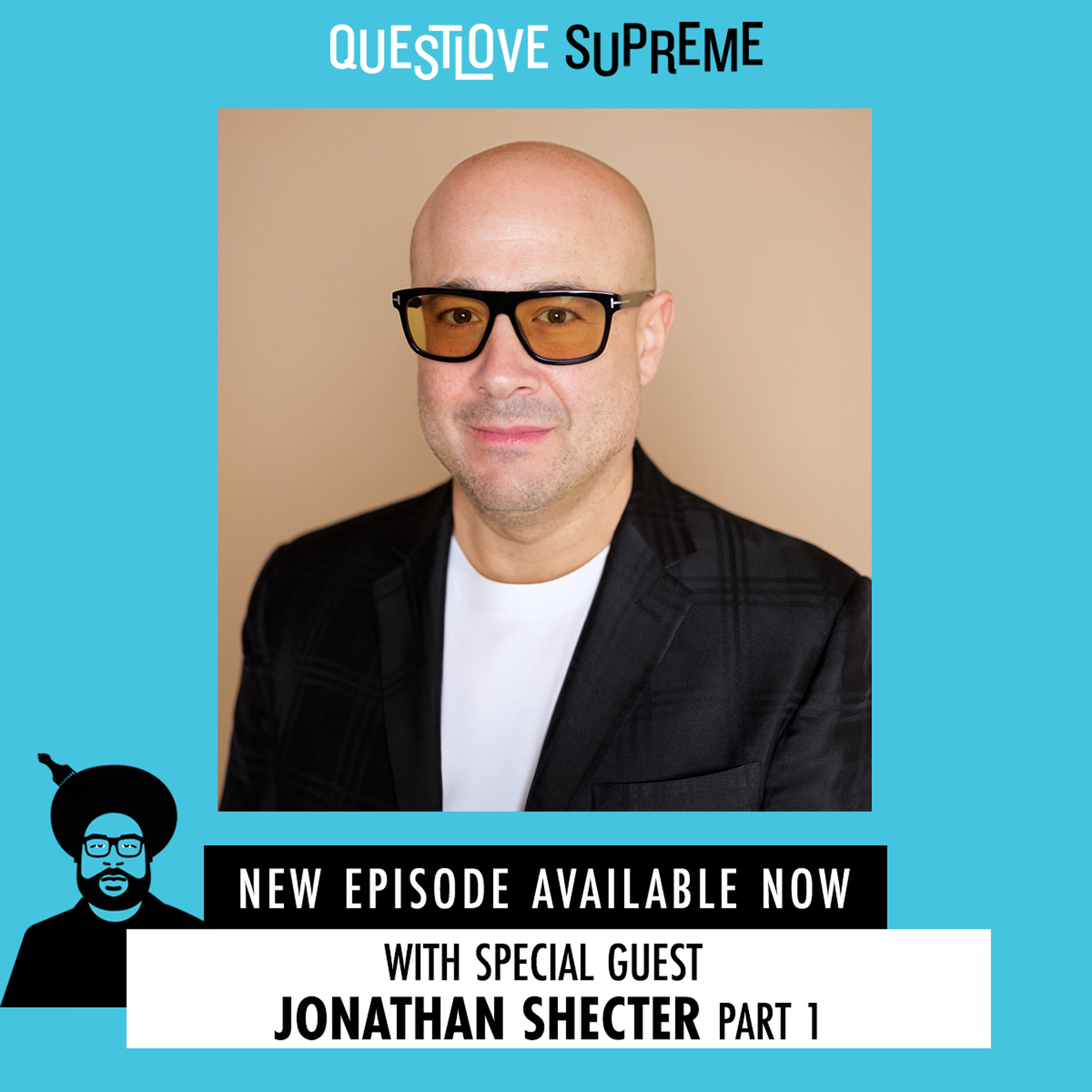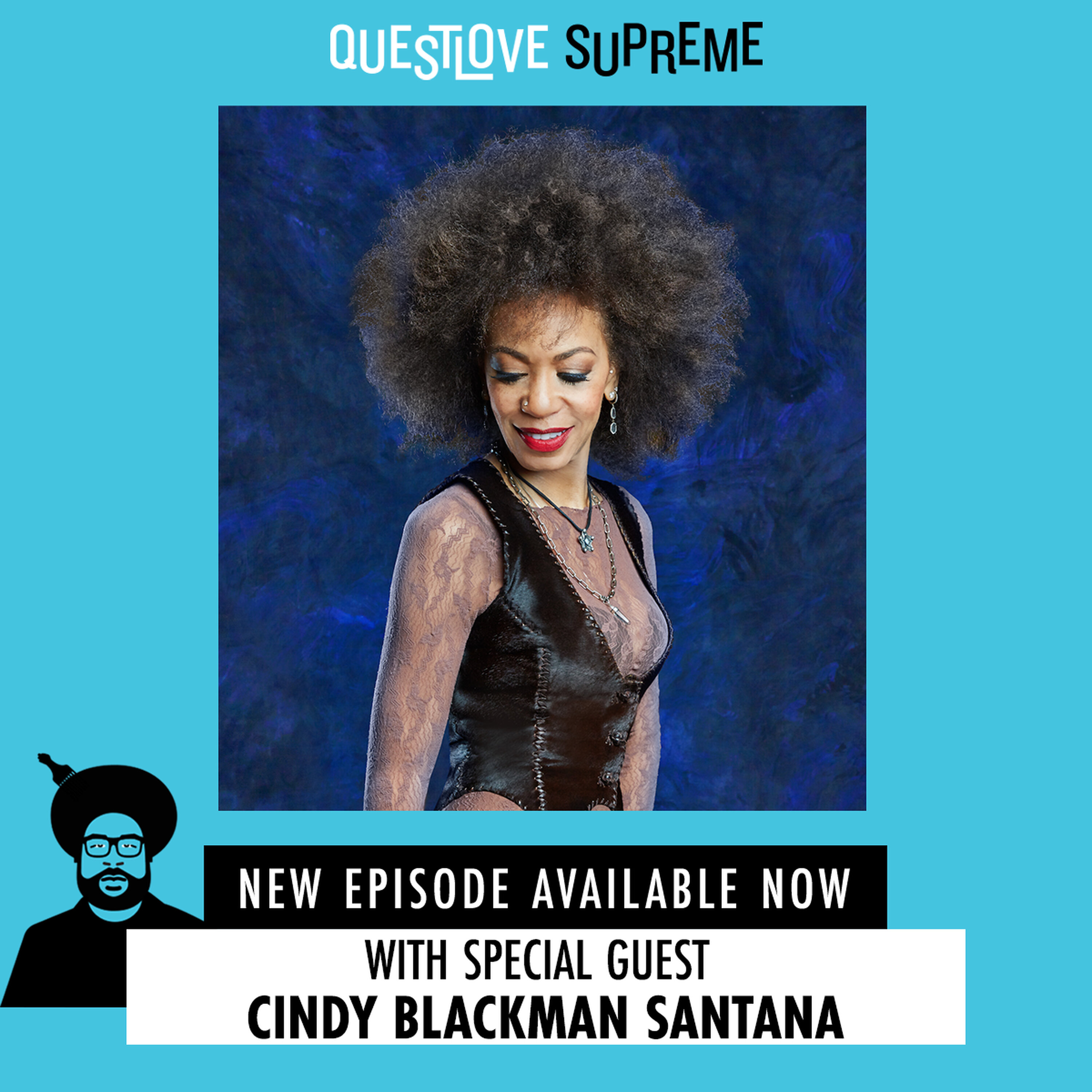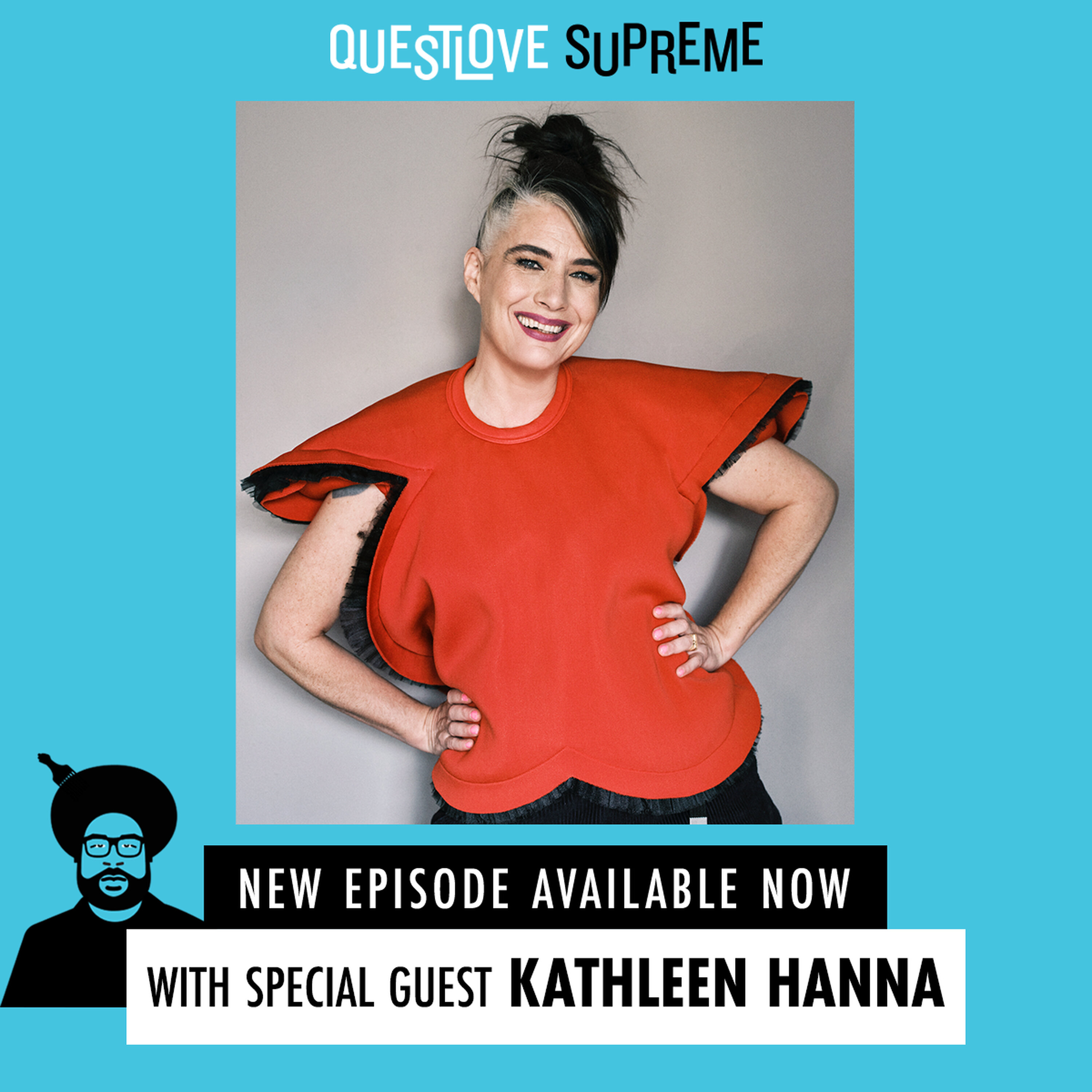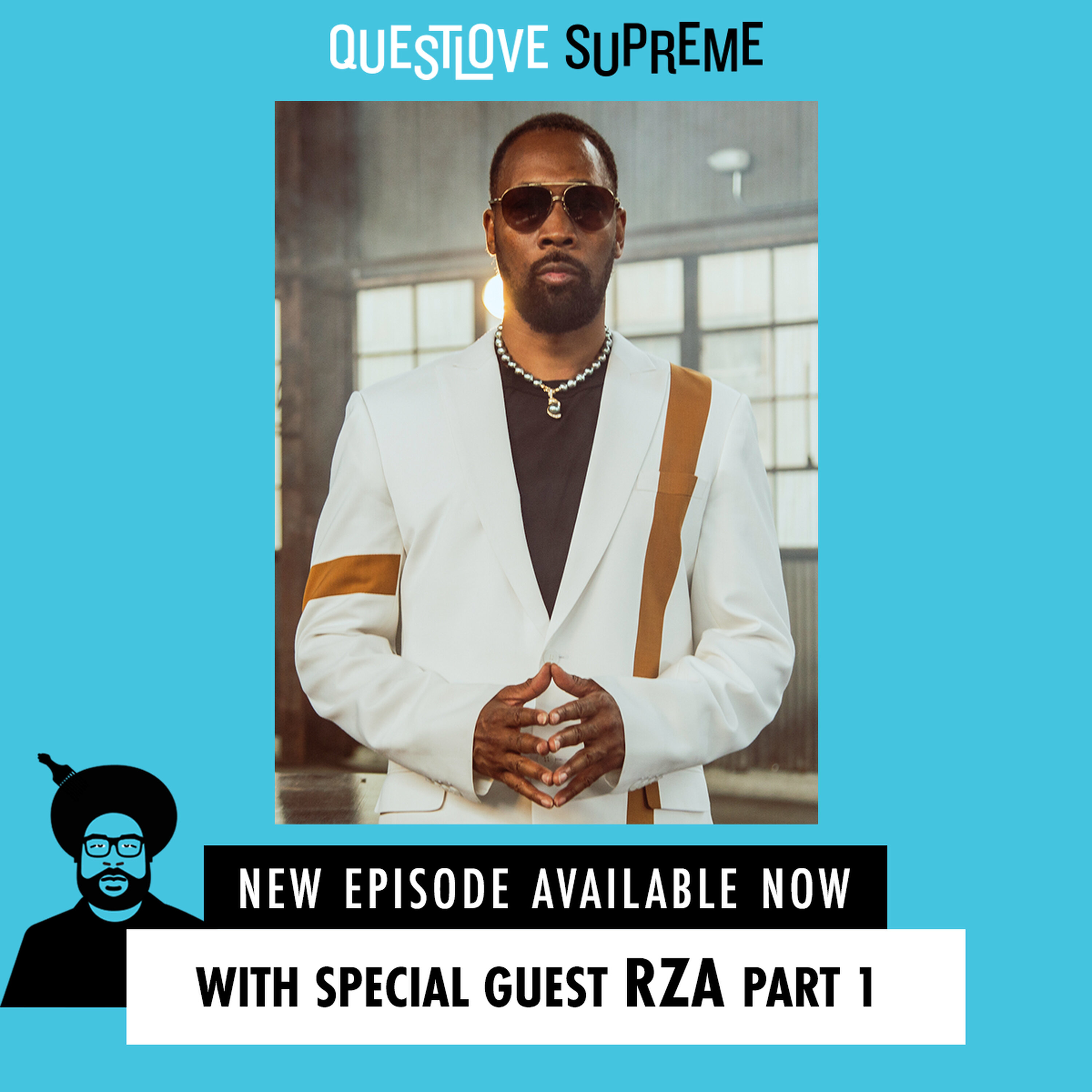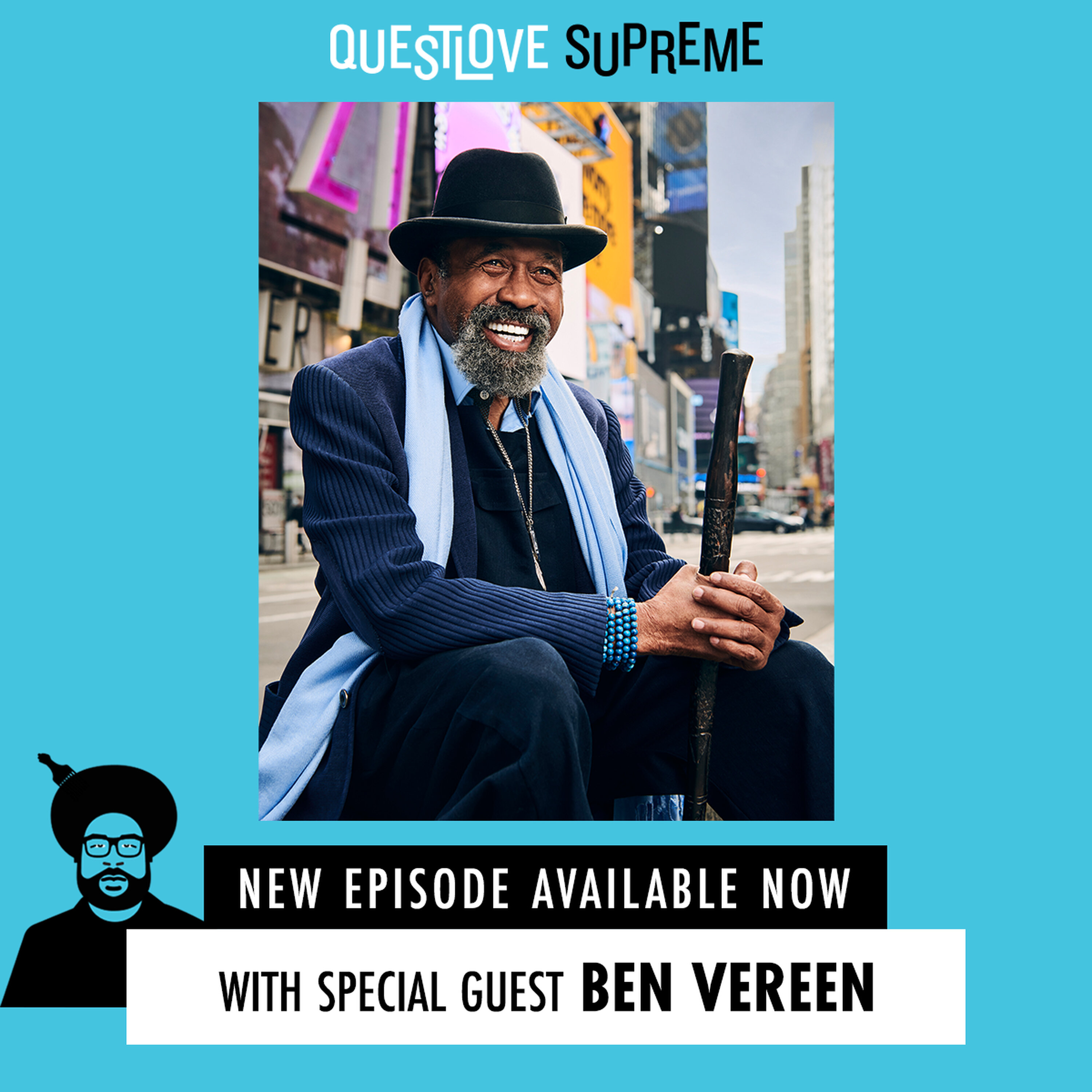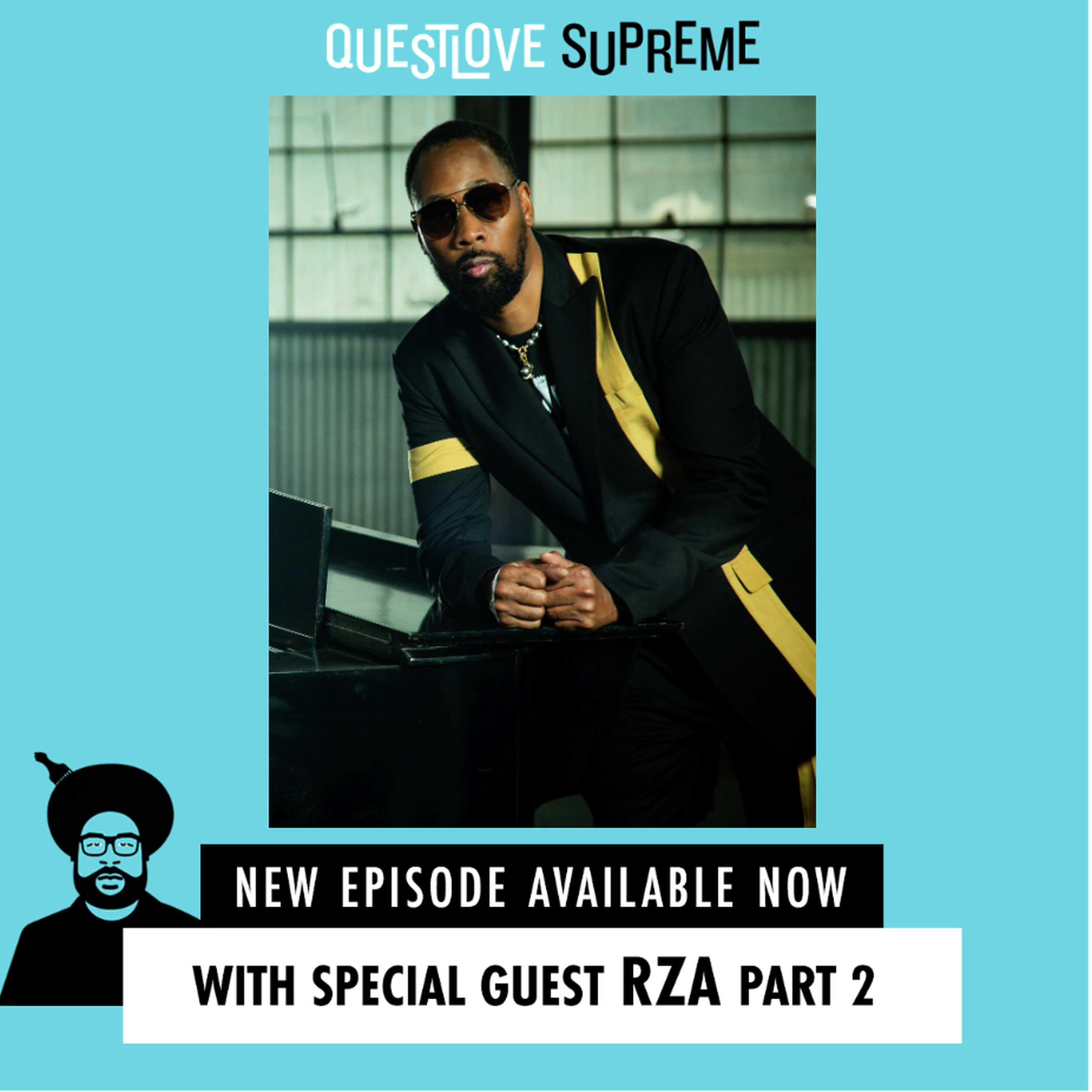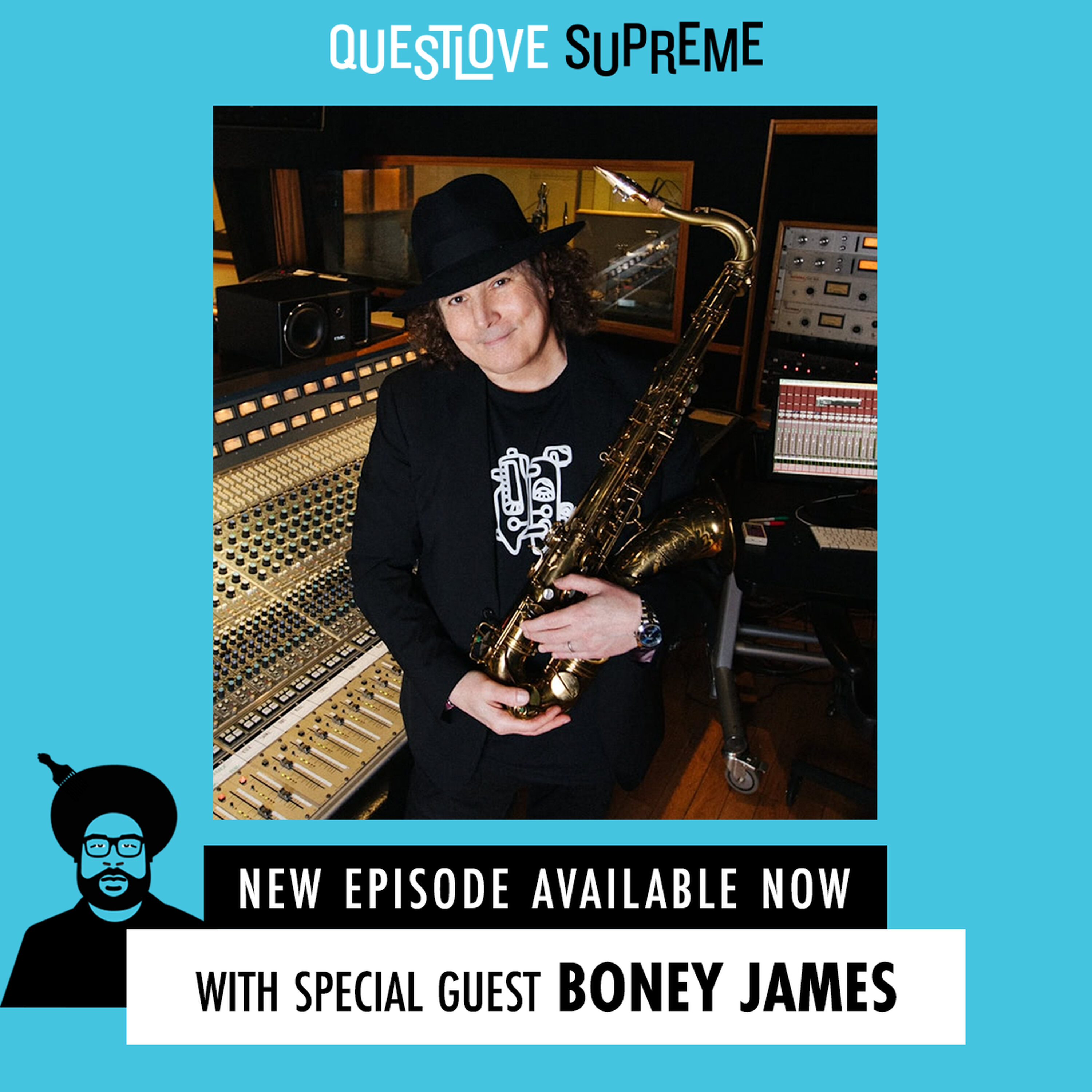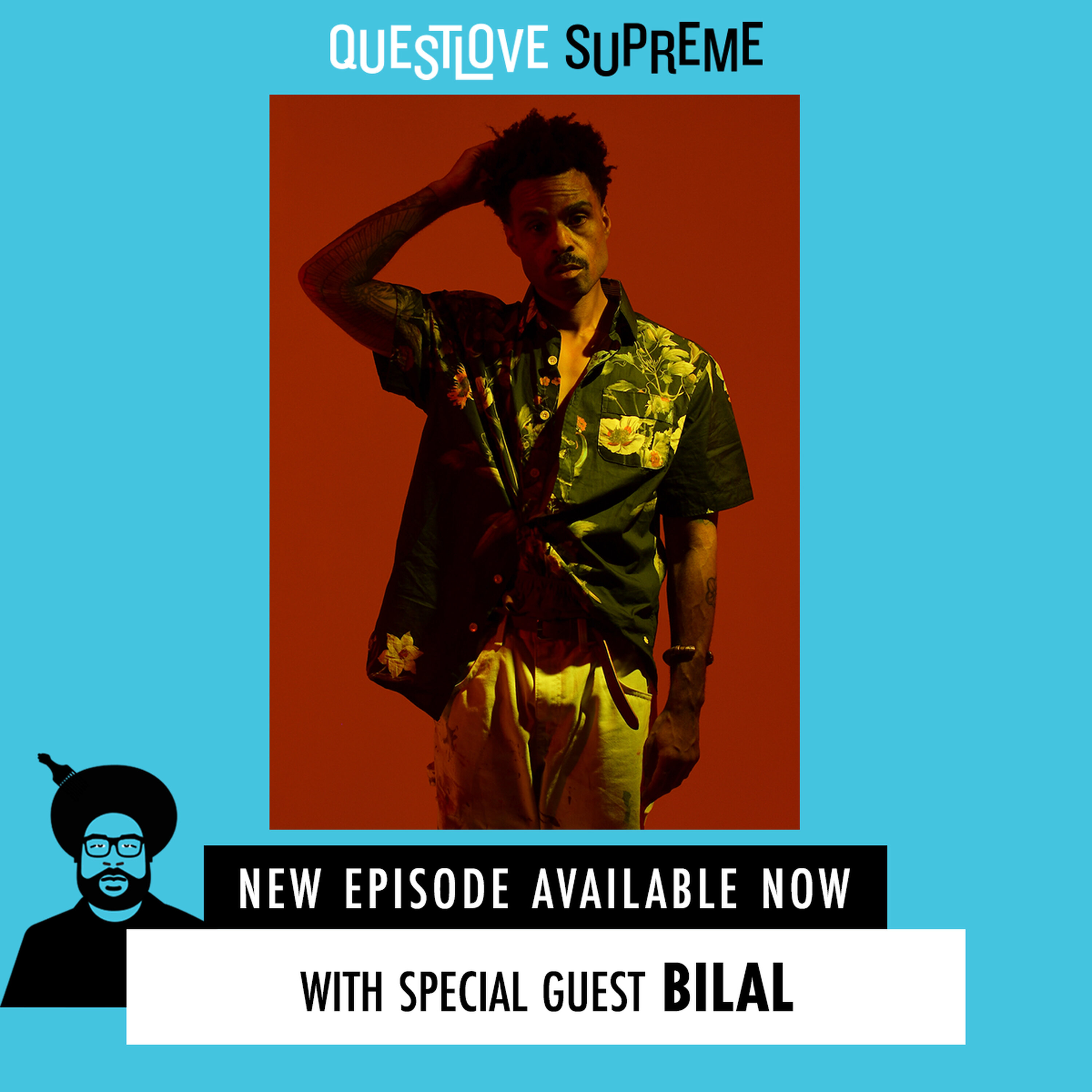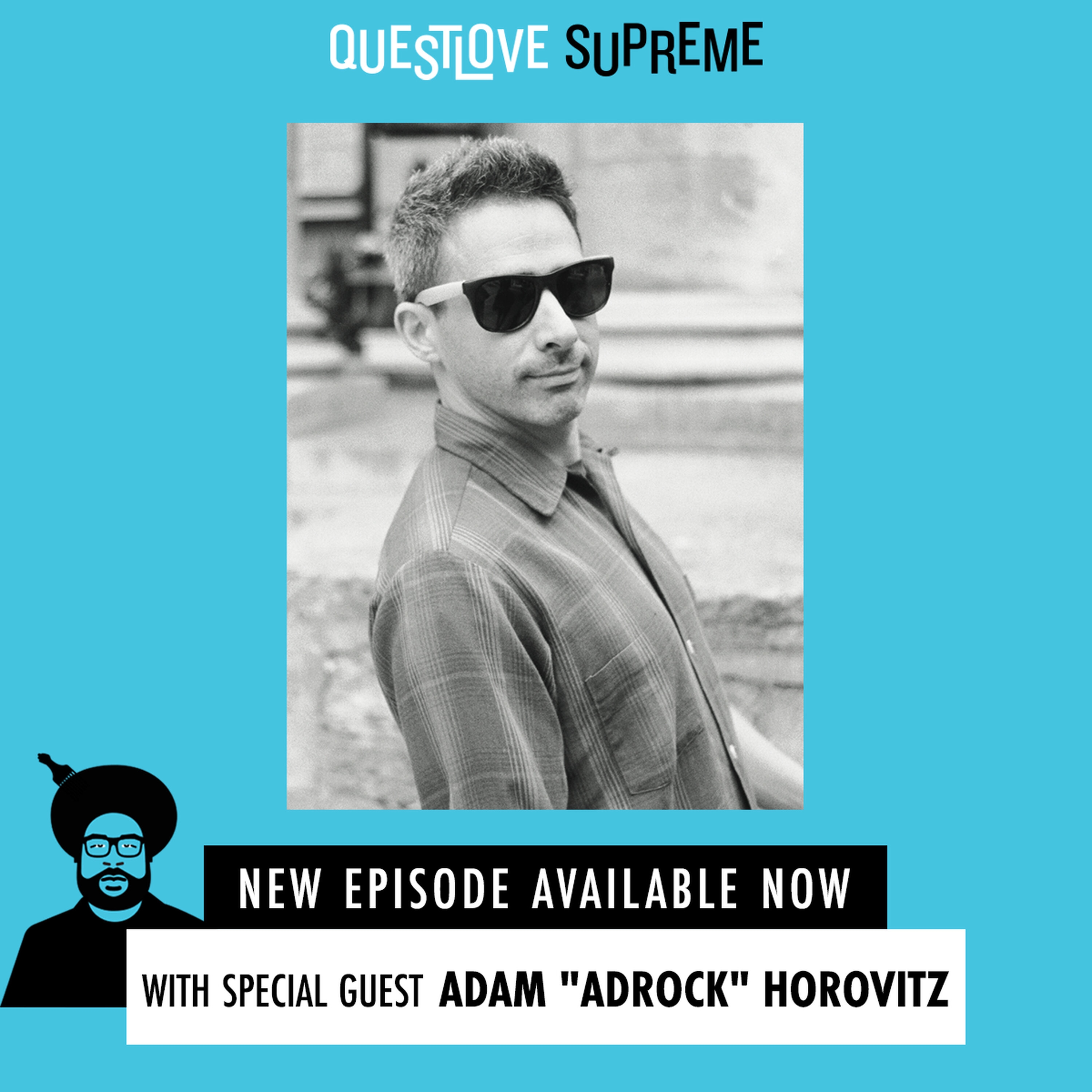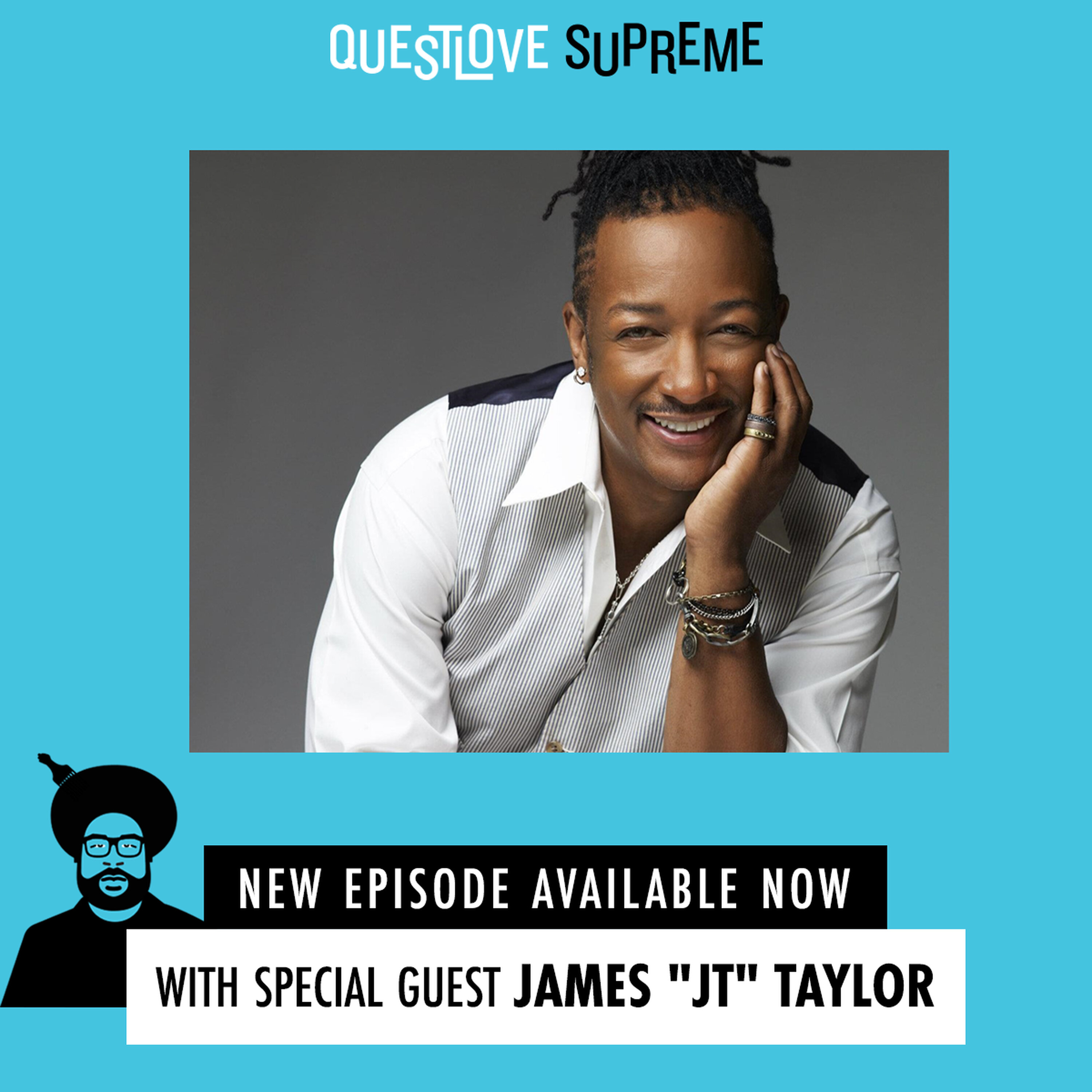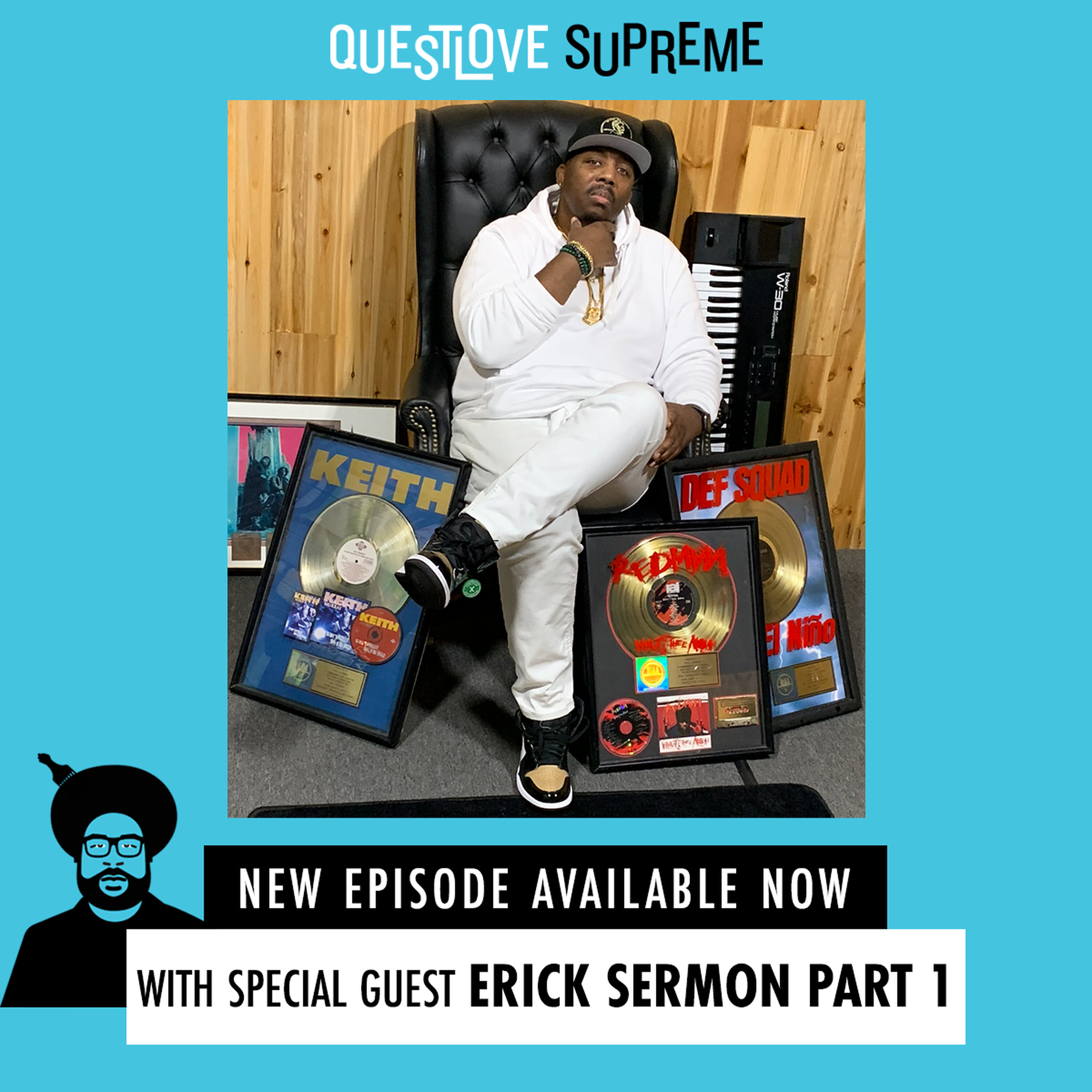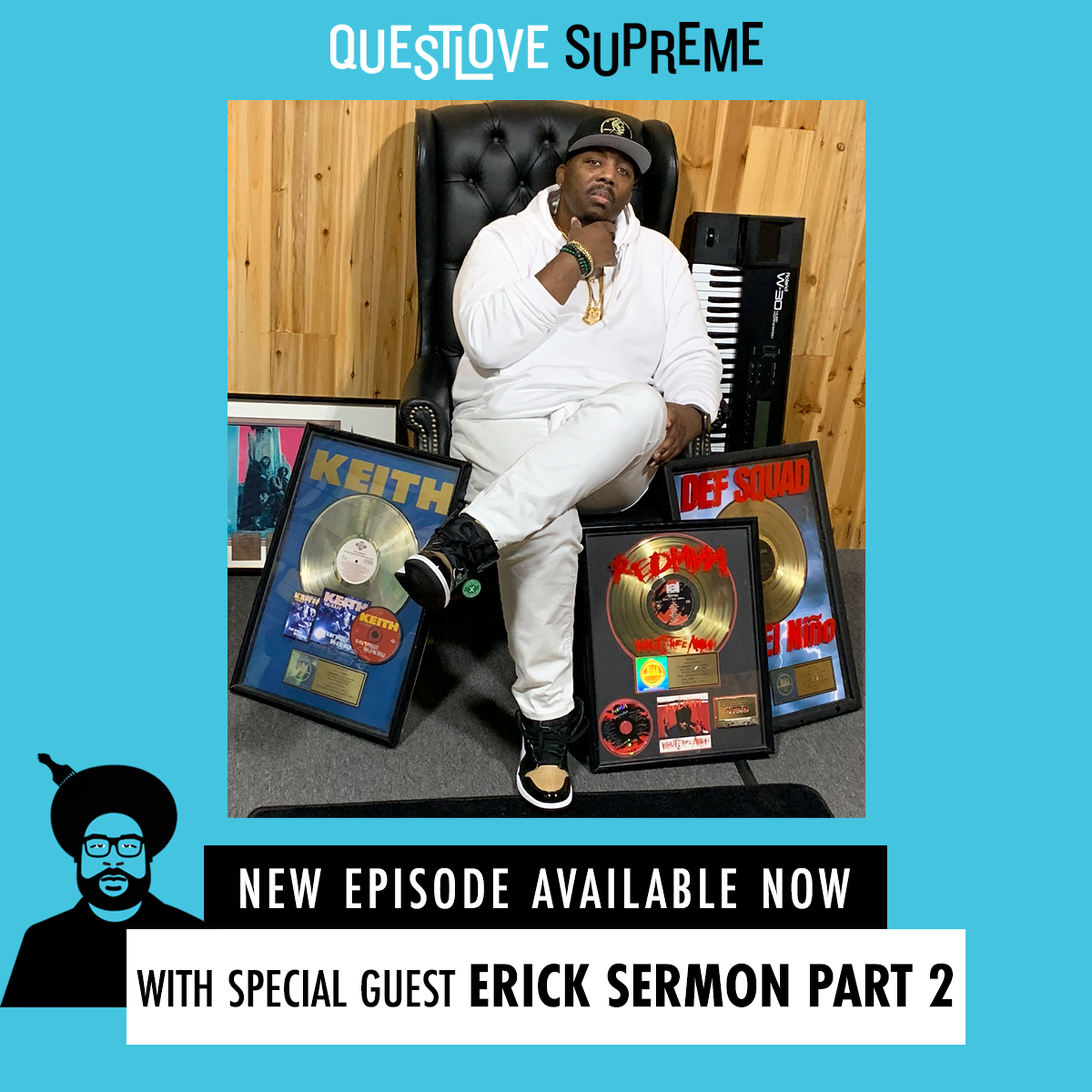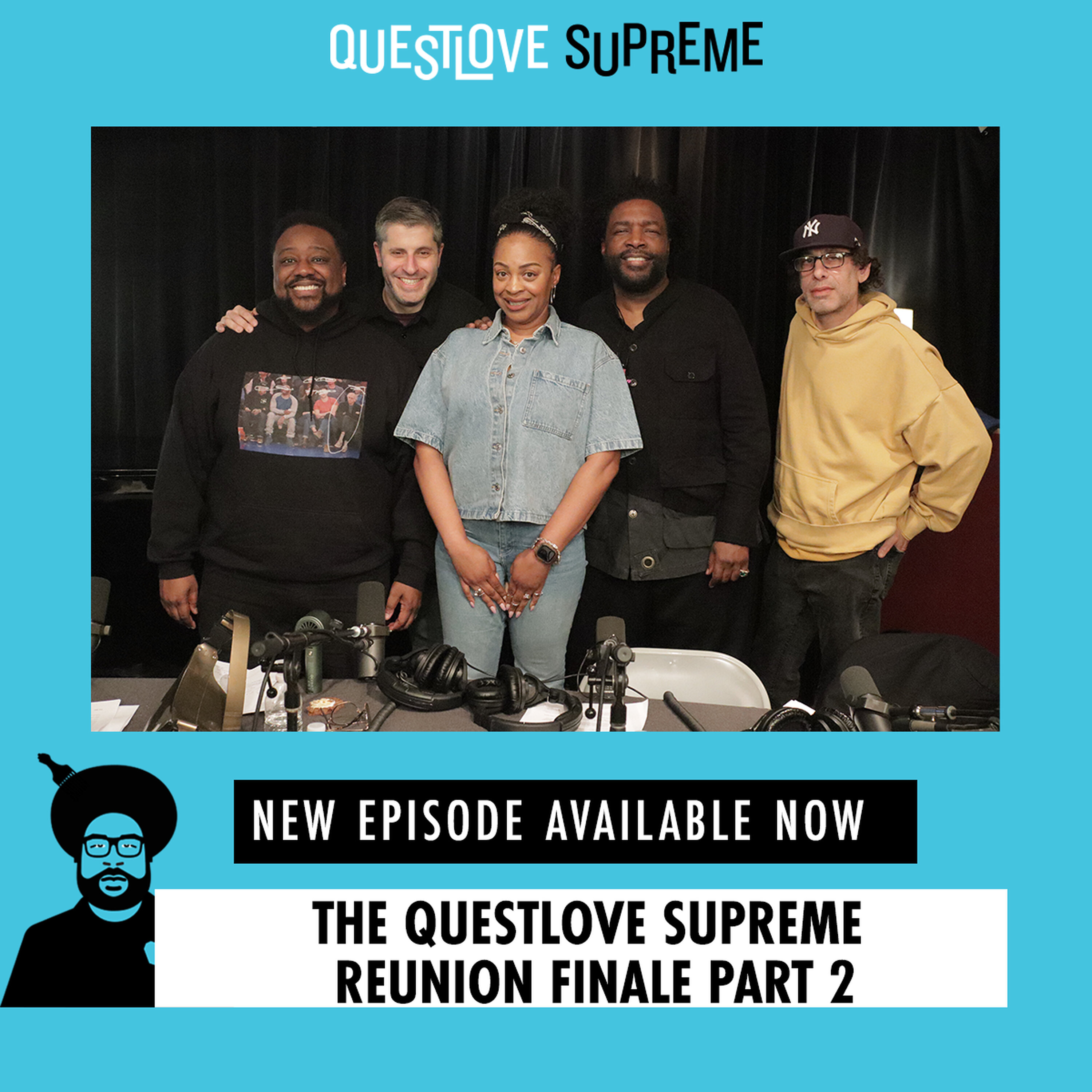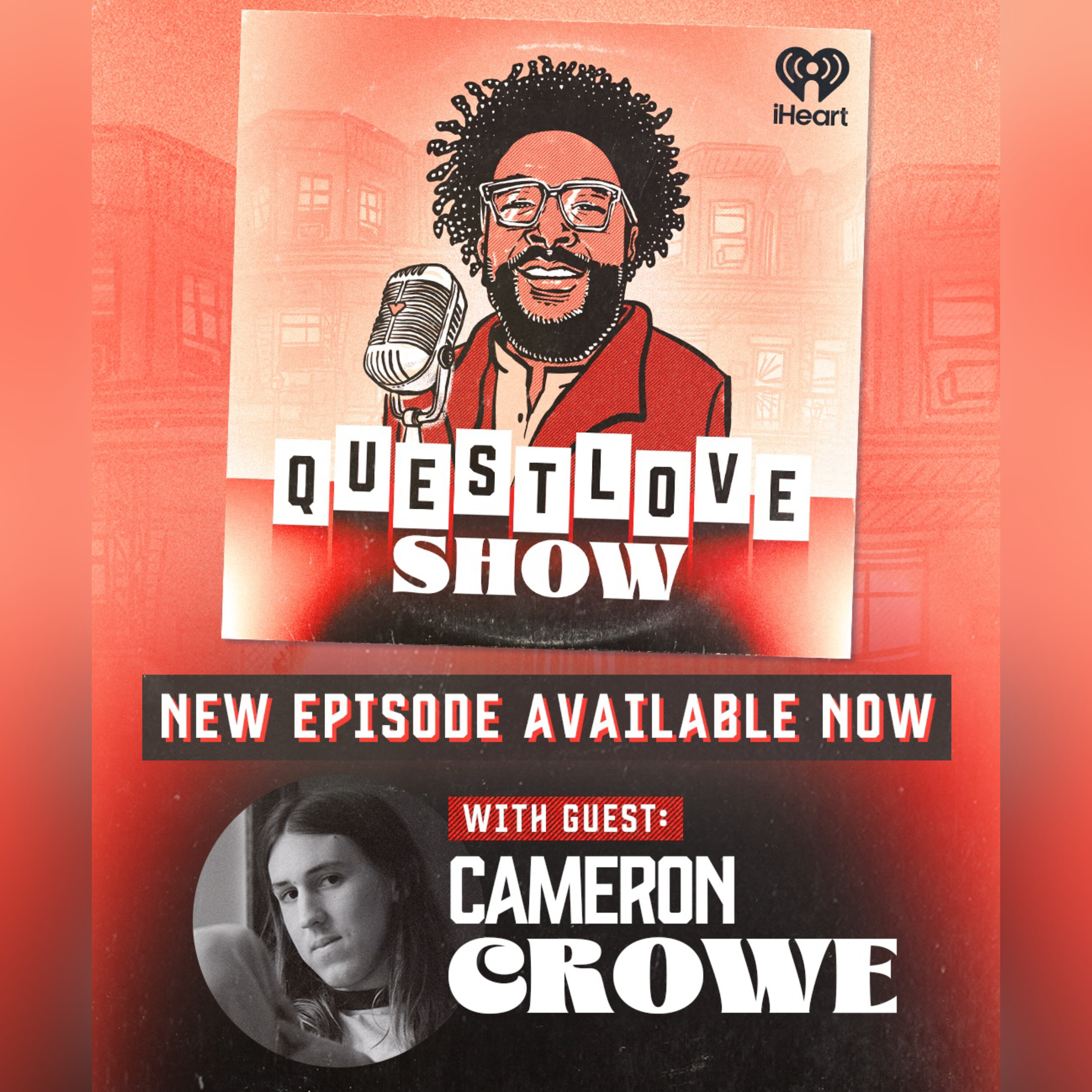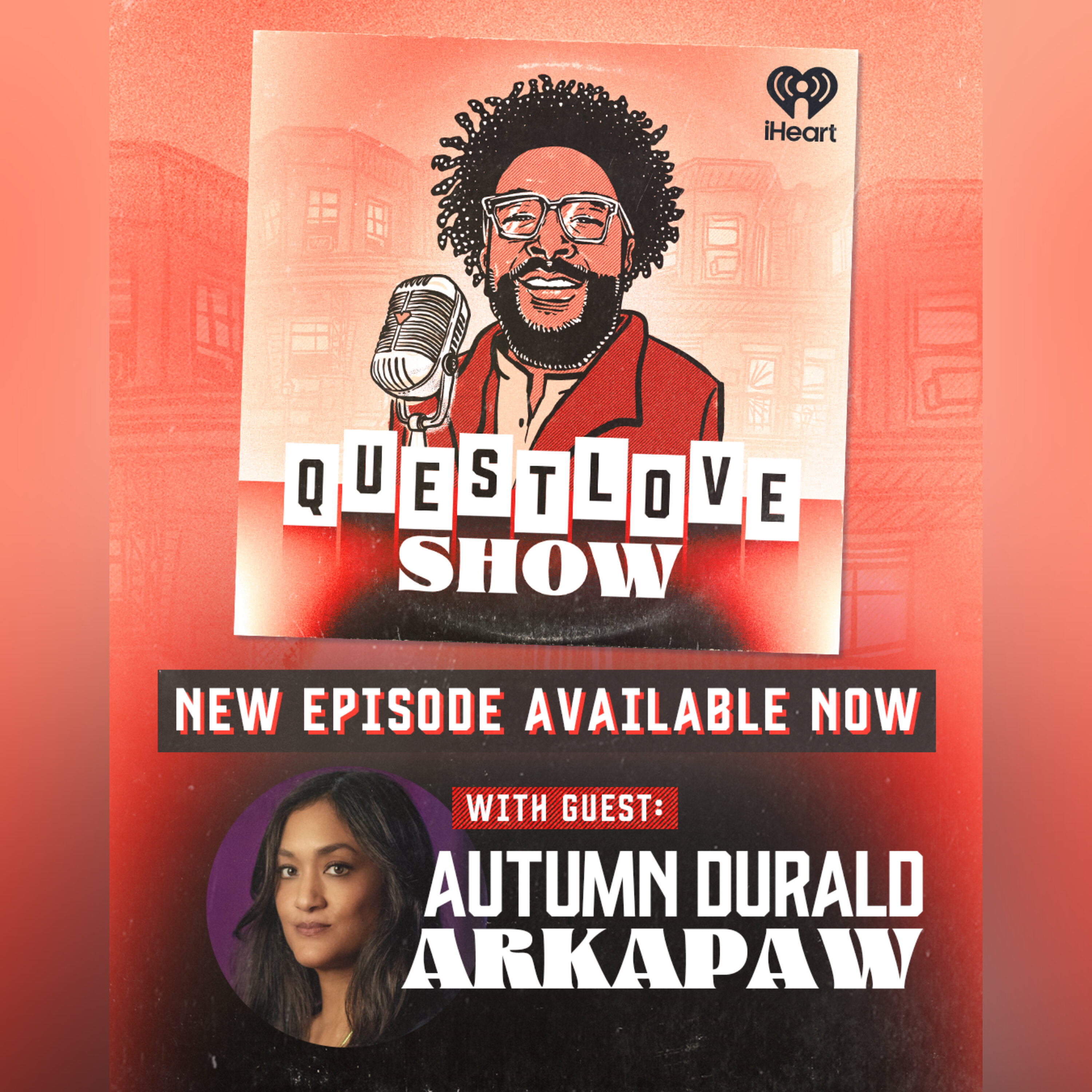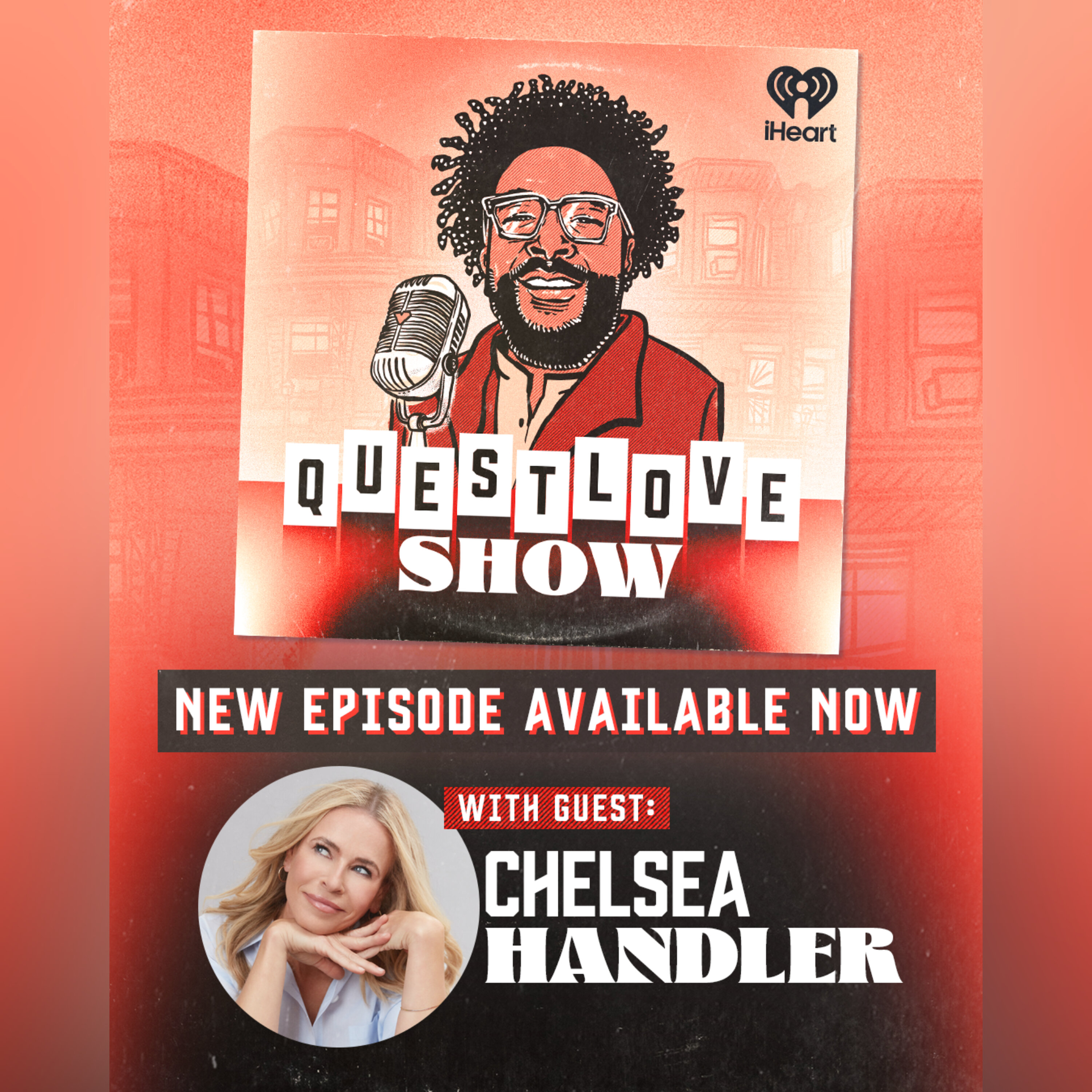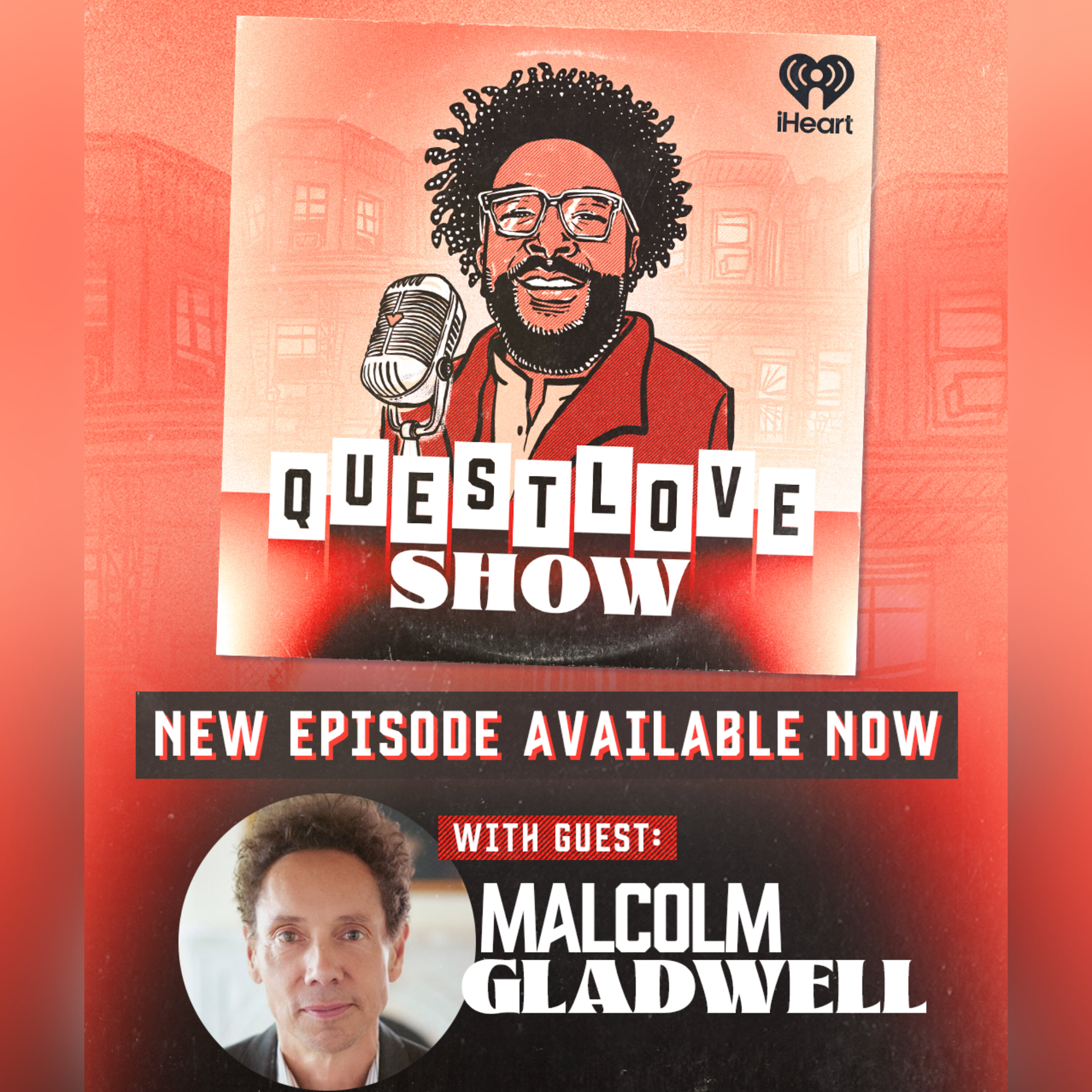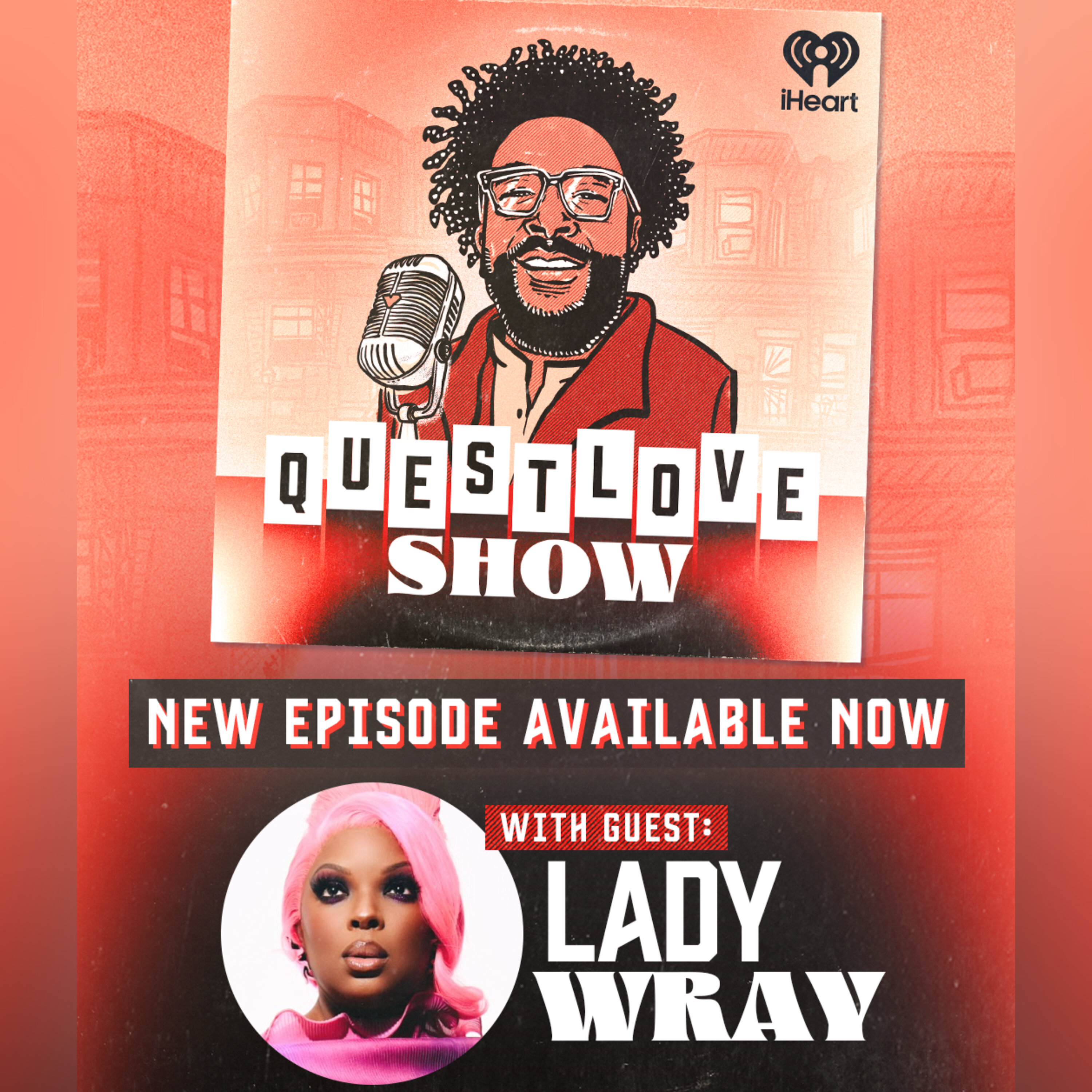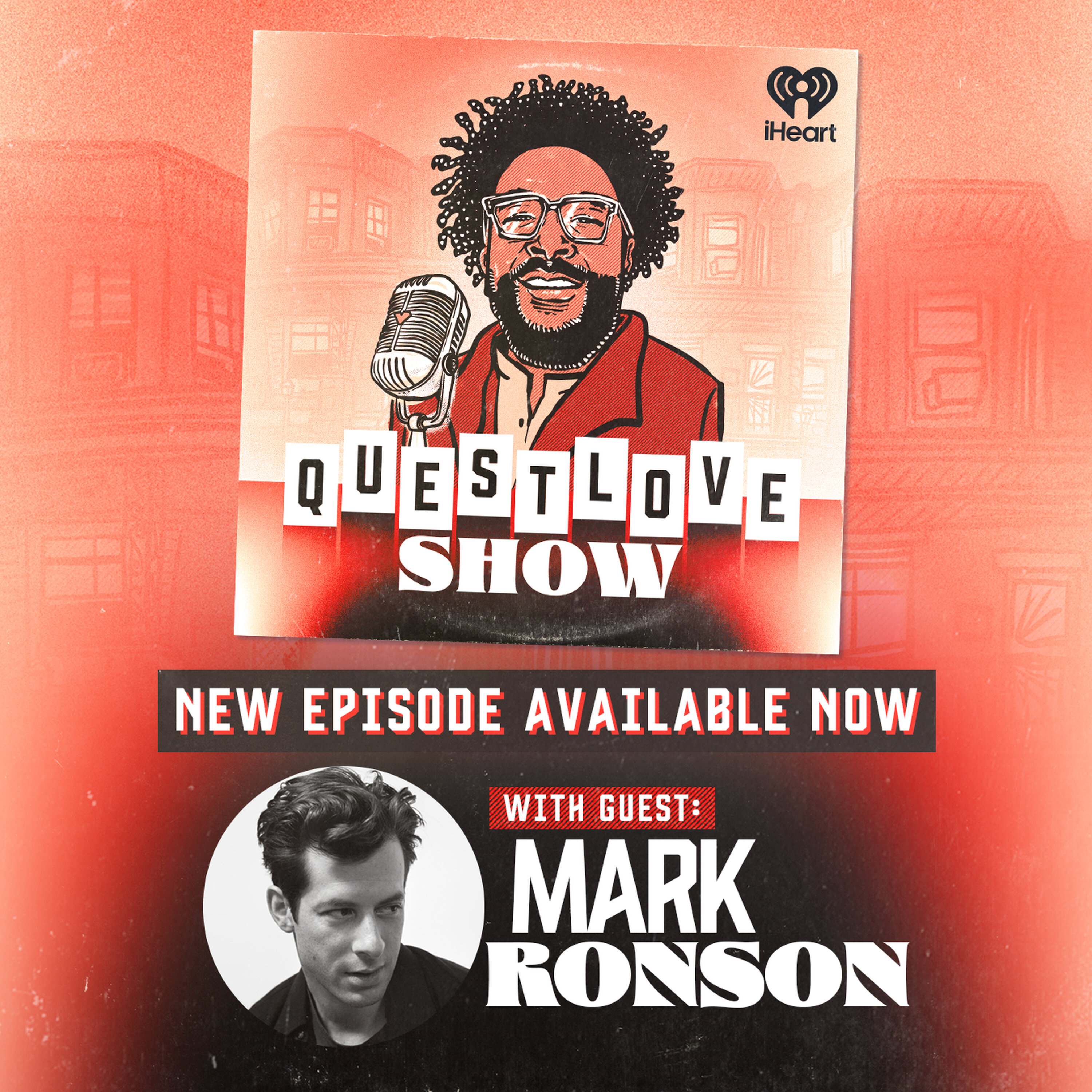George Benson
George Benson examines his transition from a top Jazz guitarist into a highly respected vocalist. He shares the origin stories behind several 1970s hits like "Breezin" and "On Broadway" plus recalls working with Stevie Wonder, Bobby Womack, and Al Jarreau. George also discusses his newest release, a lost album with arranger Robert Farnon.
00:00:00
Speaker 1: Quest Love Supreme is a production of iHeartRadio. Ladies and gentlemen, Welcome to Quest Love Supreme. I'm your host Questlove. We have Teams Supreme with us. Uh byya. How are you today?
00:00:19
Speaker 2: Trying not to shake? Kind to shake?
00:00:20
Speaker 1: Really excited? I'm really excited.
00:00:21
Speaker 2: Yeah.
00:00:22
Speaker 1: Let me let me just add that this is the first show on which I'm acknowledging that we actually have a YouTube page. And should we remind our listeners that you know you can watch quest Love Supreme.
00:00:33
Speaker 3: You should watch it so you can see the beauty of this man. Yes, and I'm not talking about Questlove.
00:00:37
Speaker 1: There you go exactly. Of course, we know you're talking about our guests. Bill.
00:00:42
Speaker 2: What's up?
00:00:42
Speaker 1: Broh, hey man, it's good to see. It's good to see everybody. I'm excited to be here. This is the mature excited because it is sir. Can see what's up? Bro? Good share everybody. Yeah, very excited.
00:00:54
Speaker 2: I'm feeling beyond the blue horizon. That's how I can describe my feelings.
00:00:58
Speaker 1: There you go, There you go. Yeah, this is going to be a quickie. I'm gona try and knock out sixty years worth of magic inside of an hour, so let's see if this goes way one could do it.
00:01:08
Speaker 2: It's us let's go.
00:01:09
Speaker 1: Yes, of course, here we go. I will say that you know it's been about we last spoke like a month ago, and we couldn't ask for a better way to come back with Today's Guests. And Today's Guest released his first solo album sixty years ago. Our guest today has won ten Grammys, he has topped the charts. He's collaborated with so many legends. I mean he's legendary himself. But of course, uh name it played, Miles Davis, Stevie Wonder, Quincy Jones, Herbie Hancott, and recently he's released or kind of re released, although it wasn't officially released. I'd like to get the story behind how do you have a lost album in the archives? But dreams do come true? And it came from his archive, and we are very excited to have be incomparable Pittsburgh's own Yen's, Yen's Power, George Benson's A Quest Love Supreme. Yeah, how you you know what? Every My mom's from Pittsburgh, and every time I meet someone from Pittsburgh, I try to catch them saying the word YenS are you that deep of a Pittsburgh or your your you don't YenS is not in your vocabulary.
00:02:27
Speaker 2: Oh that's okay. I've heard it all my life, but now that I'm out here in the Midwest, that would be as common as breathing.
00:02:35
Speaker 1: Oh really, okay, well it's good to have you. Wait, can you explain to me how far in the archives was this album and what was the idea behind releasing it?
00:02:49
Speaker 2: Well many years ago, after having so much success in the music business, I said, what haven't I done? And I thought of something that I always wanted to do, to work with a symphony orchestra. A person who conducted symphony orchestras for a long time, a person who's got great control of the music and the musicians, who's very comfortable with that situation. There's no better place than London and the London Symphony Orchestra. But one thing was missing. I had a lot of arrangers I had worked with over the years. All of them were very competent and very good at what they did. So I went to Quincy Jones and I said, Quincy, who is the baddest cat on the planet right now? Because you know, we lost a few people he said, Josh, let me tell you man, the baddest cat in the world. There's two names, he said. One of them is Robert Farning. I said, wow, and where's he? He said, well, he's somewhere in London, he said, but that's the cat I recommend. So I went over to London and I found a guy who was one of his best friends, and he introduced me to him. And it went by so fast because the man is an expert writing music and conducting orchestra. Was like breathing with him. Okay, So we got together and I told him what I wanted to do. I wasn't sure, so I picked a lot of things, you know, some popular things because I didn't want to go straight classic orchestra and just try to be Frank Sinatra. We agreed on some things. Next thing I know, I was in the studio standing next to him, getting ready to do my part, and the orchestra started playing and I said, oh boy, oh, I'm not gonna be able to do that. I never heard anything like that. Eighty six pieces, all eighty seven pieces of the London Symphony Orchestra and the greatest arranger in the world and his arrangements were so magnificent. I couldn't even speak. So I said, maybe I'll just sit and listen to the music, take in the environment. And I did that for a couple of days. He did seventeen songs. He may have been two three days. I took that stuff home to back to America, to New York, and I just listened and I said, well, maybe I can do this song, maybe I can do this one. Now I have to work on this. This is magnificent. I said, no, I better not try this. So between me and the record company, we had an agreement. We were not going to put it out at that time. Okay, next thing I know, we put it in a warehouse and forgot all about it. During that time, mister Farning passed away and I was still hearing bits and pieces of the music, and every time I heard it, I said, man, I gotta find this music and put it back together. But I never did until recently. I had left Warner Brothers. I was with them for about twenty one years with a lot of success. So I left the company and started doing bits and pieces with different record companies, and I asked some success there too. But now I went back to Warners I said, well, since I'm getting ready to retire, my greatest desire would be to do another record for Warners because they got all my good stuff and I want this to go in with that. So I asked my secretary to arrange a meeting with me and the executives over there, and we had a great meeting. He heard the music and said, wow, we got to put this out and that was fantastic. There's a lot more to it, but I think you got some other questions you might want to ask.
00:06:51
Speaker 1: We're nerds Paradise, so you're right now giving us catnip. I love when a plan like that comes together, like I love when lost albums and lost projects are finalized. And I'm glad that you know you had completion for our fans that listen to the show that are music heads. You can recall when it took Brian Wilson like fifty years to finish the Smile record.
00:07:16
Speaker 2: Wow.
00:07:17
Speaker 1: Yeah, so I'm glad you finished it. Wait. I have a question, though, so are you saying that this is the largest orchestra you've ever worked with?
00:07:26
Speaker 2: I think so because I work with the New York Symphony Orchestra, Los Angeles Symphony Orchestra, Chicago'symphony Orchestra, the Spurg Symphony Orchestra. That might have been a full orchestra. Maybe it was eighty seven pieces. Maybe I've done that too, So.
00:07:42
Speaker 1: I have a question. I want to jump ahead too far on the timeline, but I gotta know. For me, one of my favorite intros of all time is the first fifteen seconds of Breazon. Just the way that that like to me, the sound of happiness and safety and like whatever, Like when I think of like a good fuzzy memory, that song is the soundtrack when I think of like, you know, it's something simple, you think, I mean, it could be going to an amusement park or playing tag or whatever. But for me, but in my mind, that was like at least a fifty piece orchestra. Do you recall like how big the orchestra was for the Breezing project.
00:08:34
Speaker 2: No, because that was a sweetening session. Those were were put on after the recordings got it, okay, But it was an incredible, incredible situation that happened then. Okay. I had a great band full of young, passionate, expert, very creative young musicians and we were all excited because we hadn't been working together, you know, and we practiced all the time, at least three days a week when we were on the road, with practice every day. So when we did a gig, actually the gig was so easy after because the rehearsals was so intense, the gig was super easy. And there was a situation that happened. People started calling us to open for superstars, and my band was not known yet. I had somewhat of a reputation but no hit records yet. So whenever they called us to open for somebody, half of the audience left when my show was finished, and I remember I'm the opening act, so I began to notice that and they said, George, too bad, We're not you know that we don't have a hit record. That's the only thing we needed. So through this man, Tommy Lapuma, who had heard me sing five years ago before this record was released, he said he couldn't understand why record companies were not using my voice. So I selected him to be my producer at Warner Brothers, whom I had just signed to contact with, and he came up with the song dis Masquerade.
00:10:09
Speaker 3: That's the first time your vocals were recorded with Macarade.
00:10:12
Speaker 2: Well, that's the first time we had anything meaningful, and the rest of them nobody paid my voice any attention. Even my own manager said, George, you're one of the world's best guitar player, but you ain't no singer. And I said to him, you know, I wasn't insulted because I had given up singing many years before. And I said, you know, it's strange that we could listen to the chipmunks and give them a work and give them a hearing, but you won't give me one. It won't give me a chance. And so but Tommy Lapuma found the right arranger, which is a consistent what you were talking about earlier. Klaus Augermann. Yes, absolutely. I remember Tommy Lapuma coming to me asked me, said, George, what do you think about Klaus Ogerman doing the arrangements for your new album. I had heard some stuff he had done earlier, and I said, yeah, that's the man. And so he went to London, got kicked out of the studio. You didn't book enough time, and so they went to finish the album in Germany. So you had two different oysters on this on this album, but the same same arranger. Klaus Owen he sent me the test pressings. I heard that orchestra. I said, wow, these guys said, put a tuck seedo on me.
00:11:36
Speaker 1: Man.
00:11:37
Speaker 2: The dressed me right up. And at first I didn't particularly care that much for this masquerade. To me, it was just another vocal, you know, and nicely done. I liked what the band did. We only had one take on it. By the way, what only there's only one take on that song because Tommy Lapoom, after saying he loved he wanted to hear me sing on the record. The instrumentals were going so good, you know, with breezing and quite a few others. He said, no, I'm not gonna put a vocal on thiselve. I said, man, you made me learn this crazy song. I called it a crazy song. I said, man, let's recall it at least one time. So they put up a very funky microphone something people never sing in. They use them talk programs, you know, one of them long microphones, and you would see on the Johnny Carson Show. And so when I heard it back, I said, it doesn't sound that bad, except I don't like the mid rangers and the great engineer he turned the button knocked some of the low end. I said, oh, that's better. Do it again. He did one more click click. I said that's even better. He said, we gonna stop right there. He said, if I do it one more time, you'll sound like Mickey Mouse. I said, that's a leave it there. Tommy LiPuma ran out of the studio and ran and broke up a meeting they were having at at Warner Brothers. The big wigs were at this long oval shaped table talking about money, you know, and he took all of his recording equipment over because he never does any playback without his own stuff. So he set up the recording. He said, no, this meeting is over. He's telling the big the money guys, this meeting is over. You must you gotta hear this record. So he played this Masquerade and he said, well, wait a minute, man, who is that who's singing? And they said he said George Benson And they said, but I thought he was a gutsire player. He said, well yeah, but he also sings. So he played the record and they said, well, we're gonna get this now. This was before they put the orchestra on. Wow, okay, he said, I'm not finished with it yet. You say I got work to do on this record, and I didn't know he was going to do all of this. I didn't know how he was going to get it dumb, but when he sent me a test pressing, it was hard to believe that it was me, all dressed up and with this fabulous orchestra with great songs, one of the baddest bands in the country. These young boys were energetic and fresh and very creative. The album came out. I we'll talk about that what happened later with that, but the album was a monster.
00:14:32
Speaker 3: I just want to know on Maskuarade where your mind was when you started the song, Like when you started it the way you did with I guess I would say you were scatting, but you weren't, and you were just doing the guitar parts right like when you first started.
00:14:46
Speaker 2: I think they call it legato. I forget the word they use for that. Harvey Mason one of the world's greatest drummers, and he was young and energetic then still going strong now he always is. I said, all right, Harvey counted off, and he started counting one, two, and I said, oh, hold it, hold it right there. I said, hooray, play these changes and I played the changes for him and he I said, and uh, loosen it up. We're gonna leave. We're gonna play legato, no rhythm, I said. And then Harvey count the time off. So we played it. Play those things, dude, I asked Tommy Lapooma, leave the mic up, man, I'm gonna I'm gonna do something with the improvisations in the beginning and in the middle, okay, And he uh, he said, okay. He didn't have much confidence in it because he was gonna throw the record out anyway. He had made up in his mind that the instrumentals were too great to a sacrifice to one vocal. So uh, they did that great intro, and that young boy or the young man at the time, he was like in his early twenties, and he was fresh in the band. He had just joined the band team. Oh you mean a grey doubt though, And I'm glad you mentioned that, because there was a great thing about those two playing together. But Hora did that intro and played that semi classical accompaniment behind my vocal, which gave it a whole new, fresh approach. And Willie did it one time. M And Tommy Lupuma said to me, George, we could be here all night. It'll never get better than that. I said, I think you're right. So I left it alone and here comes Bobby Womack getting ready to record reason with me because I begged that he come to the studio and give me something fresh to play on the record. And he came in the studio and he said, hey, man during the playback, who in the world? And he didn't use the word world. He has had an age on it.
00:16:55
Speaker 1: Right right, right, right right?
00:16:58
Speaker 2: Who got a record? He got a force like that? Tell me the boomer saying that's George Benson. Man, he said, but I thought he George Benson. This guitar player he said yeah, but he also and that was the beginning it let us know that this record was going to be something special.
00:17:22
Speaker 1: I remember in my dad's band, musicians arguing the first time I heard musicians sort of having like kind of a heated debate. My dad's bass player would have put his entire life in saying that this masquerade was Donnie Hathaway. He's like, nah, man, that's Donnie Hathaway. And this is the first time I'm hearing of you. And I remember my dad's sax player, like, no, man, I'm telling you this George Benson. George Benson the guitar player. Now, man, this is Donnie Hathaway. And they were just like that was the first time I seen like almost It wasn't pugilistic, but it was like almost an argument brewing. Like of course they had other history of tension, but I definitely remember because I was under the impression that that was Donnie Hathaway singing. And that argument lasted for like almost ten minutes and got really heated. So I always wanted to know that. That's another thing I found out maybe two years ago. I was not aware that Bobby Womack had written Breezing. How did you know about that song to even ask him for it?
00:18:38
Speaker 2: It's another incredible story we're here for. I heard the original version of it. The original version was by Goborzabo and he was from Hungary. I remember when he first came to the United States during the Hungarian Revolution in the mid fifties, and he played with Chico Hamilton's band that was a great jazz ensemble. So I heard them play live when I was a kid, that was a teenager, and then this record came out reason it was super fucky. I mean, it was really a unique record because he played folk music basically, but he wanted to be a jazz player. The ironic thing is my piano player was like that about Argentine where he came from. He wanted to be a jazz player, but he played Argentine folk music when he grew up. So they were adding that kind of romantic feeling to their jazz, which gave it a unique flavor. So I would never stop catch from being who they are. I didn't force them to be who I wanted them to be. I let them be who they are, and that works better. I learned that from Miles Davis. Don't tell them what to play or how to play it, just let them be themselves. So anyway, I never thought about me playing that song because I never thought anybody could come up to that that vibe they had on that record. And actually the song was written by both men, okay by Goboy's a bo and Bobby Woomack and Goo Boar. He didn't want to have nothing to do with it because he didn't care about things like that. He had a little problem, some chemical problems, and so he didn't care about things like that. But that record he would have made a fortune like Bobby Womack did. And so that's how it got off the ground. And when tell me Lapuma asked me to record it, I said, absolutely not. I'm not gonna make that record. He said why not? I said, man, that's not me. Man. People have been trying to get me to record it or to play it live, and I wouldn't do it. Almost got into rumbles with people, you know, several times. So when he asked me to do it, I said, oh, here it comes again. And then I woke up. I've had to do this many times in my career. This was one of the times where it worked beautifully. I said, Tommy, if you can get Bobby Womack to come to the studio, maybe he can add something to the record that's not there. Maybe he can help do something different to make the record, give it another twist. So he called Bobby and that's when Bobby entered into the studio, listening to the playback of this Masquerade and asking who it was. Now it was his turn. He said, there was always something I wanted to put on this record, and I didn't get a chance to do it. I said, what's that man, he said, do it because that's what was not on the original recording, right. And even though I don't think my version is as good as the original recording, I like it better because it's another twist to this and it made it sound more contemporary. So that that was the difference between that version, and that's how they got off the ground.
00:22:02
Speaker 1: The seventies were very peculiar time for jazz artists. You know, after kind of like a twenty year let's say between nineteen forty and all right, let's say thirty years between nineteen forty nineteen seventy, there was this like serious jazz movement. Of course, you know, once certain figures in the art form were sort of stretching the boundaries with you know, Coltrane stretching the vocabulary and what Miles was doing and whatnot. However, I'm always curious, and I always ask people that were like serious, because you know, I had to sort of work backwards. It's because of hip hop that I realized how serious of a jazz artist you were, because you know, by the time I discovered you, you were already singing, so I knew you as a singer. But it wasn't until hip hop sampling that I was like, oh my god, Like George Benson is one of the greatest jazz guitars of all time. But let me ask you when it came to the transition of doing pop music, and it's not just you, James m. Toomey, Raggie, Lucas Narratimichael Walden, like a lot of these serious musician cats in the mid seventies sort of made this decision to migrate to not even just soul music, but like to pop music. So at the time, did you have any trepidation whatsoever of like, wait a minute, I'm a serious jazz artist and now you want me to sing pop? Like were you worried at all about like if Downbeat Magazine was going to roast you or for going pop or whatnot, Like was that even a concern?
00:23:41
Speaker 2: It was a very trying time for a lot of musicians, the ones you mentioned, the cats I worked with in the early days. I was thinking about James Toomey. He still owes me some money. Man Cold never did play for the sessions he used to do at while house. He said, I had a recording studio in my garage and he'd bring guys over and try out new stuff, and he brought Reggie Lucas over and we became friends the whole trip. Man Norman Connors working with the girl from my hometown, philis Simon Hillo Simon. She was from Pittsburgh, Pittsburgh, and she's from Philly, but yeah, from Pittsburgh, Pittsburgh, Pennsylvania.
00:24:24
Speaker 1: And we were all going through it.
00:24:27
Speaker 2: There was no way we were going to get the prestige that had been earned by so many of those great people that you talked about earlier, Miles Davis. They had forty years on us, thirty years on us, twenty years on. We were just coming up kids, you know, youngsters in New York. We were like the new Lions, but we had know nothing of our own that could give us, you know, a seat beside these monstrous musicians that who taught us how to play and set up this wonderful music called bebop and mo jazz and the new stuff, you know, the ascid what the kids called acid jazz. But that was a very, very trying time. I learned that first thing you need it begins with a great song. Breezon taught me that I never would have been able to cross over without reason Reason was a very well loved song. No, no, not Reason only the Breason album on speaking of it, which the song this Masquerade came out of. The lyric lent itself to a whole different society because they already loved the composer of the song, and I had never heard it before. When Temmy Lapuma asked me if I heard it before? You ever heard the song? I said no, and I didn't particularly care about it. I said, that's not for my kind of artists. And when I found out who it was, Jorge, my piano players, his wife said, oh, that's Russell, Leon Russell. I said to myself, who there? Because Leon Russell I didn't know anything about him, never heard her. She said, that's my favorite artist. I said, oh, I better learned this song because Tommy said it to me too three times and I wouldn't even listen to it more than once. So I learned the song. That's why when we went back and he said we're not going to record it, I said, what after you made me learn this crazy song? Man, we're not going to record it? So he to get rid of me, he said, okay, well record it one time. Let's do it in other words, let's get it over with. So that song came out as the greatest surprise of my life because it went so far and you were speaking about Donnie Hathaway. The other guy they thought it might be was Stevie Wonder, Yes, because he had the record out in years. He hadn't recorded something out in like maybe a year or two. When it came out, they said, gotta be, gotta be Stevie when that's the only person I can think of, right, and like your dad, they swore it was that it was him or either, like you said, Donny halfway. So that's what got the record the airplay that it needed. They would give the record away if you could tell them who it was. Very few people guessed who it was on the record. They all said, oh, I know who that is. Everybody knows that's Stevie Wonder. Oh that's Donny Hathaway. And that's got us the airplay we needed in places we never would have gotten without it.
00:27:34
Speaker 1: So let me ask you. In the winter of nineteen seventy seven, you're sitting down in a theater and you hear this. You hear the nominees for Record of the Year is fifty ways to Leave Your Lover by Paul Simon, Afternoon Delight by Starland Vocal Band, Wow, I write the songs by Barry Memory and if You Leave Me Now by Chicago. When they say and the winner is previous to that moment, did you really think you had a chance in hell to win Record of the Year above those records?
00:28:18
Speaker 2: Not a chance? N Ah, No, I didn't have a chance. But I love the other records, the big ones. If You Leave Me Now by Chicago, Yeah, there was a spectacular recording. And you could not bury Manlow out of nothing because he had nothing but multi platinum records all of his career. Just about. So I got up early, hoping I could beat people to the parking lot because there was a lot of people in that place, and I had already won two Grammys, so I was very very happy. I said, oh man, this is I'm gonna go home and start braging about my two Grammys. I got up and Barbara Stradez I said, and the winner is Jeorde Benson. I startled, man, and looked around. I couldn't just said that, you know, And I looked over Tommy looked to find my noies in the theater, somewhere, I went up front and when Tommy came up, I kissed him on his bald head. I don't believe I did that. I saw that later, But that was the most incredible thing that ever happened to me in my life. And it showed me that nothing is impossible. That this, this album I came up with, this this fresh and new called Dreams Do Come True, has a lot to do with that, that concept, that that idea, that that way of thinking, nothing is impossible. Man.
00:29:48
Speaker 1: So when you're in that moment and you I think that night, you on four altogether correct.
00:29:57
Speaker 2: I won three three and there were two more that came toward the album though for other people, but the engineer Al Schmidt, and I think Tommy Lpum a producer. So we won five our five grammar.
00:30:08
Speaker 1: I've all together. So like, how does your life change that night when you go to sleep and you go to bed and you wake up the next morning as a five time that project winning five Grammys, Like what happens to you after that?
00:30:25
Speaker 2: It's like I had been born on another planet, reborn, and the name of the planet was George Benson. Because everything came to me, everything I ever imagine came to me. They came through my management. Everybody wanted to get in touch with us for something, and I was not used to that kind of attention. My mind was still on kicking butt on the guitar with my bad band.
00:30:51
Speaker 1: You know.
00:30:52
Speaker 2: We had a great band, you know, and I couldn't think beyond that because I've never been that big of a star, you know, been known by people in the jazz world and R and B world and some of the pop world, but that kind of fame was highly unknown. But I begin to see the world differently after that. There was a lot more to conquer. We were in a position where we could either help or hurt what was going on in the world musically. Jazz musicians were mad at us. The R and B people didn't know what the heck it is we were trying to do accomplished because we weren't sounded like Motown and you couldn't anyway. Nobody could compete with Marvin gay Man or Stevie Wonder, So I didn't even try that stuff. One thing that time taught me all the time it took me to gain the success that I got through the album Reaching. Remember, I was thirty three years old when that happened, So I considered myself in the old man. You know what I'm saying, Man, I'm getting out of this business. I'm tired.
00:31:56
Speaker 3: You know. No, there's many more albums after That's why.
00:32:00
Speaker 2: Oh wow, man, let me see. Since that was the first with Warners, and I think I did, I don't know, fourteen albums with Warners, twenty one albums I can't remember now, and with other people. In total, I think I've recorded about seventy albums, but there are two hundred and something with my name on the cover, so a lot is transpired. But what a responsibility?
00:32:29
Speaker 1: This is a question I always wanted to ask and never knew the answer to because it's not in the liner notes. But can you please settle this for me? Are you playing on Another Star by Stevie Wonder on songs in the Kiev Life? Is that you scatting at the end? That's me?
00:32:47
Speaker 2: No, no, Plus I'm singing along with wonderlum la la la la.
00:32:56
Speaker 1: You're not in the liner notes, but I kept hearing your voice because at the end you just start scatting, and right on the fade out you can keep right there. You hear the scatting, and I was like, yo, is that him?
00:33:08
Speaker 2: Like, does that mean it was a favor? Well?
00:33:10
Speaker 1: See these to kind of just grab people.
00:33:12
Speaker 2: Oh yeah, that's true too. He was that kind of guy. But I let him be who he is. That's what makes him so great. He's always coming with something that you don't expect, and it's always a one. What he does is so classy, and I think that's why we got along very well. He was coming to my shows when I was playing on the Chitlin circuit. He would show up at a nightclub somewhere in America, mostly on the East Coast, because he was going with a girl who later married when he did the song Isn't She Lovely? I think he married her. I think she's from Pittsburgh, her hometown. So one day he came to the club where I was playing that night, and nobody believed it was him. He was so popular you couldn't convince it anybody in the place, even though I said, Steve, I think he might have came up and played something for us, but nobody believed that Stevie Wonder was in the club. But he was on a lot of the gigs that I did. He'd show up and he would always tooth for us and live television shows. We'd be doing live TV in Hollywood and he brusht out the back of the curtain and jump on the you know, in front of the camera. Only he could get away with that kind of thing. I've always loved him. I loved him since I think I first heard him when he was about fourteen or fifteen years old. I knew he was not going to be ordinary.
00:34:37
Speaker 3: George, can I ask you about another collaboratoral Quick, because we talked about breezing and you actually redid this song with him with lyrics, which I thought was kind of ill. And y'all are both to me like the voices of our generation. Algiero. I don't hear enough stories about Algibo. Can you just tell me, like how wondrous was collaborating with Alderreau.
00:34:57
Speaker 2: He's one of those guys that come along. It's only one of them lifetime. You're so original. From the time he opened the mouth, you've got you know who it is and you know it's going to be good. And going on the road with him was it took some some rough thinking because uh, career wise, we were way ahead and we made a lot of money. We had a lot of prestiges all over the world, and we were always first on the you know, on the marquee outside you would be George Benson and Algero. A lot of people didn't like that because they love Algero together. What, yeah, we worked together.
00:35:41
Speaker 1: Okay, after you asked this, I got a million dollar question to ask you.
00:35:44
Speaker 2: Good. Yeah, So I I felt strange about us being on the show, and he he wasn't used to being second to nobody. Matter of fact, we both joined Warner Brothers on the same day. We auditioned at the place where one of the Kennedys was murdered. It was a hotel, and this was a couple of years after that, a few years after that, and we both sang or performed the same song, take five, and you know, his version was pretty sleek, moved by you know, he's so great. And so we went on tour and we found some songs and a couple of them he wasn't comfortable with. He said, George, why do you want me to do that song? I said, Oh, it wouldn't make me do what you did. Your voice is unique and I think people need to hear you do this kind of song because you're not known for this, but they should hear you do this kind of thing. That let him know you can sing anything. And so we ended up doing some crazy things together. They came out great. One was that last song in the show about seeing you again until next time. I can't remember the title, but it was. It came out great. We made lots of money, and we knocked them out everywhere in the world. Pat it was great man.
00:37:11
Speaker 1: Okay. So this is mainly a question about Al Schmidt, because I think Al Schmidt's engineering is so unique sounding that this is what I want to know Number one for me, Your Weekend in the La album and also Algirose looked to the Rainbow album. Both engineered by him have such a distinct sound to it that I swear to God, you guys recorded it in the studio and just overdubbed the audience on top of it like I've never heard it. It sounds too perfect to be a live album.
00:37:54
Speaker 2: Al Schmidt, who used to set up the microphones for his uncle, I believe it was when he was a youngster. When Al was young, his uncle said, well, go said I got a session today, go over and set up the microphones for me, so and get it ready for me. So he knew exactly where to place microphones to get the sound that he wanted. And when I by the time I got there, he was already he had finished up all of that because he never was involved in that while we were recording.
00:38:26
Speaker 1: Oh okay, he did it all in front.
00:38:29
Speaker 2: He listened to go in the studio and he go next to the drums, and they replaced the microphone, so forth and so on. I was embarrassed one day when I got ready to say to him, you know, the piano sounds a little bit thin to me, I was almost in tears. Why doesn't he puts some bass on that microphone? Man, I'm gonna tell him about that. Then something that said, man, leave it alone. Man. When I heard those recordings back, I said, man, that would have been the biggest mistake I ever made in my life, because hisself was always right on the money. But he told me the story of how he got to be al Schmidt. Tell me he said that because you know he used to do Sam Cook records years ago. Yeah, one day we had a big running because I'm dealing with like you said about heated arguments or heated discussions. There's always something like that between producers and artists. And Tommy Lapumer, who did not like to argue. He would keep his mouth shup, but you could tell what he was feeling because he would hint to his feelings on things. And so one day we were arguing about a live album weekend in La Yes, we were at the club in Hollywood. I forget the name of a the Roxy Theater, Yeah, the Roxy Theater. On it was either on Hollywood or Boulevard or Sunset Villa Sunset. My father who had begged me to take him out to California with him on he heard I was going to California. He said, man, I haven't seen my dad, your grandfather for twenty years. And I said, okay, Dad, come on with me now. You have a lot of fun. So my grandfather was there, My dad was there, Chaka Khan was there, Wretha Franklin. They were down front having a discussion. Aretha Franklin had to fend off Shaka Khan because she wanted to jump on the band's land and have a battle with her. I said, not on my set.
00:40:37
Speaker 1: No.
00:40:40
Speaker 2: It was incredible, man. Well here's the Biggie with that. The first night, the second show, we did that version that you hear of on Broadway. Yes, I remember that was not a song that was in my playlist outside of the that we decided to record it, and so I had to dream of something to do with it, right, And it was Quincy Jones again who gave me the fop. I said, now, wait a minute, now, why should I pay this in the attention? He gave me a clue. He said, you know, Jarish, many years ago, everything used to be a one bar phrase. Now it's two bar fraens, I said, what the heck is he talking about? Because I don't measure music. I just play it. Oh so you know, I just play it and when it comes to my thought my brain, I let it hang out and let my brain handle it and my vibe, my feelings pour it out to the people.
00:41:38
Speaker 3: You know.
00:41:39
Speaker 2: So when he said that two bar phrase, it bothered me. I had to find out what he was talking about. Then I heard a song by Rod Temperton a bone Be Doom, bone bean be, do bop bang be dang first bar with us, I said, oh, that's two bars. That phrase finishes that the two bars first half is bomb but on bomb be you know, four beasts, one beat again, boom beat on four. Oh. I got it. So when Tommy the Poomer asked me to do on Broadway, I said, oh no, man, He said, what do you mean? I said, I can't destroy that song, man, That's a classic. And in my mind I was thinking it was it was the great lead singer the sang for for the for the Uh for the group, Benny King, Benny King. I thought it was Benny King, but it wasn't. Okay, the cat who sang the original version for the Drifters. Man, what a vocalist he was. If I had remembered that, I would not have recorded it either. But I didn't remember who that was that sang that. His name was Rudy Okay. He was a gospel singer and the originally. So anyway, now I rearranged the song because it was boring to me to go bom bomb bomb. It was in doney, arm let's all right, arm bom bom bomb bo. I said, oh man, no, we can't do that for ten minutes. So I changed it to bomb bom bomb, bom bomb bomb made to make it a TUPA friend right then I made a staccatto to give it some fire. Boom boom boom boom boom boxed boom boom boom boom boom. One of the guys in my band said, now, Josh, that won't work. I said, what do you mean, what do you mean that won't work? He said that it won't work. Joe, that's not the way the song goes. I said, man, you wasn't even here, You wasn't even born yet. When you talk about it won't work. He said, I'm talking man, it won't work. I'm just telling you. I said, there's a reason why I'm sitting up here in this leader's seat. I gotta find work for us. And the way I fire work is keep it up, keep the fire going, man. I said, no, this is the way we're gonna record it. I said, can you play that? He said, oh, yeah, I can play it, and he played the crap out of it. He tore it up. The name was Stanley Banks. Okay, great great bass player, and so Tommy Lapuma. When we went to hear all of the tracks back. Oh, first of I have to tell you this. When I took that track on a cassette, that Auschmidt made for me so I could listen to what we had done. That night. I took it back to the hotel and on the patio near the pool, somebody had a boom box and we played it and they would not let me take it off.
00:44:52
Speaker 1: Play it again.
00:44:53
Speaker 2: He was calling from upstairs, play it again. So we played it. I said, ah, man, I got a hot one in my hand. The next day, Tommy the putman, says, and he played the first version of it that we did on the first show. I said, where's the where's the other version? He said, what other version? I said, Man, come on Friday night second show. He said, George, I think we rased it man. I said, Tommy, no, how is that possible? He said, we needed more tape. We kept running out of tape. So I went back at the earlier tapes, which I thought was not not good, and we put them on because we didn't have enough tape. He didn't that wasn't the real story. He wanted to take my chance.
00:45:45
Speaker 1: Yes, the version he liked better. Was it shorter or just more laid back or yeah?
00:45:51
Speaker 2: He wanted it to sound like the original.
00:45:53
Speaker 1: Oh, I know.
00:45:56
Speaker 2: You got on there.
00:45:57
Speaker 1: Oh he tried to tell you. He erased, isn't that we all know?
00:46:01
Speaker 2: Yeah? Oh, now he told me he raced it. Oh. I got up and walked out of it. I said, man, you just you mean the best record I ever made? You raced it. I watched him one mile back to the hotel. When I got there, he called me and I said, George, come on back, man, I think I found it. I got in there. I didn't believe they had found it. So here I was still apprehensive. I said, now you're gonna play me another strange version. So I sat down. I said, no, play me the hit Man please, and he put that on. I heard it bloom bloom, and I could hear Chaka Khan in the background say that said that's the one I'm talking about, and told me, said that is better. I said, man, get out there better. That's a knockout.
00:46:52
Speaker 1: I'm gonna tell you the very first performance I ever gave as a drummer, I'm tell you how popular the song was in seventy seven. By the second grade, I could actually sit and reach the drum set. And we had to give like a recital music recital, and it was my turn. We went in alphabetic order, so I was last. You're supposed to walk up too the microphone. My name is Amir Thompson and six years old. This is second grade, and I'm gonna play Harvey Mason playing on Broadway. And literally that drum break that they do boom boom boom boom boom boom, I did that and that was like that was a moment in which the audience exploded like that, that moment made my life. That was the first time I like drummed them in public. That's the first time my mom and dad knew I had drumming talent. Like my mom's crying like all that's that's that's literally how how powerful on Broadway was when it came out. I have so many questions to ask you, but I know we only have a little bit, so we're definitely going to have to do it again.
00:48:13
Speaker 3: I mean, you can ask for one about one song, just one song, and I just want to mention one, and I want to ask about one. I want to mention Moody's Mouthful Love because I want to say to you, sir, that for some of us, you were the introduction to that song. Like there was no James Moody, it was just George Benson and so from then on. So thank you for that, because I've been in love with that song ever since and everybody's version after that. So, but my question is about twenty twenty because the video, the video, the song, like everything, it just felt like such a departure from what you were used to doing. But it was such a part of some of our childhood, Like twenty twenty vision was like let's hear it for the boys for some of us, you know. So can you just talk about twenty twenty and a decision to do that and just tell me something about the song.
00:48:57
Speaker 2: I've had the good fortune of surrounding my show was geniuses, young musicians who were extra talented, and one was a fellow named Randy Waldman. When Randy Waldman was a kid, his father caught him coming from school late and said, wait a minute, No, where in the world have you been all this time? He said, well, I stopped off of the baseball field. I was playing baseball. He said, like, you said you wanted to play piano. He said, well I do. He said, well, get you in here every day and play piano, not baseball piano. I want you here every day and when you hear him play. You know how that paid off. He ended up working with Barbara Sisan for about twenty five years as her musical director and principal pianist, and he did some wonderful things with an R and B group. He wrote one of the smashes or arranged it. He's done nothing but spectacular work. He can do it anything. So one day we're working on an album and uh, the producer said, I got this song here, sent to me by such and such, and uh, they want you to see if you like it. So they played it for me and I said, it's got potential. He didn't pay me any money. He sent it to Randy Waldman, who set up in his kitchen and played all those beautiful parts. But bomp bong, but boom bump bump boom boom boom boom, boom, bump bong boo, boom, bump, bump, boom boom. So when he sent it to us, I said, what I'm gonna do with this man? But once I got into it, it fell out of my mouth all the parts. And then we had Patty Austin, Yes, Patty Austin, she jumped on that song and did all of the harmony to all my parts, all my ad libs, and man, she knocked that song out of the park. It was so popular. I couldn't believe it, and a pleasure to play.
00:51:01
Speaker 1: Thank you, thank you, thank you well, brother Vincent. Look, our hour is up, but we absolutely must have a part too, because I think the entire world Steve, do you have one question? I can wait till part two. I wanted to just I wanted to ask some CTI questions. Yes, exactly, we have so many of your jazz life West Montgomery questions. Yes, like you said, yeah, you're almost like a nine hour episode. But unfortunately we have to stop at this hour.
00:51:31
Speaker 3: But happy retirement because he mentioned that, and this is like, this is gonna be the last year people can see you, right do your life may be sure about that.
00:51:40
Speaker 2: I had to stop the regiment of being on the road because I've been on the road for sixty two years. Yeah, hop out a mirror.
00:51:48
Speaker 1: Wow, exactly, we'll come to you. We'll come to you, Yes we will, yes, Yes, you know something.
00:51:54
Speaker 3: I like this.
00:51:55
Speaker 2: This is fun.
00:51:56
Speaker 1: Yeah, you know, I want to remind our audience definitely. Uh, you know, dreams do Come True is available at your your latest album, your latest archive, the album.
00:52:06
Speaker 3: And he'll be getting Hollywood Bowl August eighteenth. One to mention that as well, because that's going to be a hell of a show.
00:52:11
Speaker 1: All right. I might have to Yeah, I'm in Europe. I might have to quit the roots then no, but for real, thank you very much for doing this, and again we have to have another conversation. This is way and too important. Too many memories here, but I on behalf of I'm Big Bill and Sugar Steve and Layah and myself Quest Love being comparable George Clinton.
00:52:34
Speaker 2: Oh George, Hey, that's good enough.
00:52:36
Speaker 3: I like that.
00:52:38
Speaker 2: I'm writing something for George Clinton. No, I'm doing We're going to make a record together, believe to do it anyway.
00:52:45
Speaker 1: The incomparable George Benson, the one and only George Benson. Thank you so much and I appreciate it and we will see you on the next go round of Quest Love Supreme.
00:52:52
Speaker 3: Thank you, hey, thank y'all for listening to Quest Love Supreme. This podcast is hosted by an Afro amount, a rapper, an engineer, and a man with too many jobs aka a mere Quest Love Thompson.
00:53:05
Speaker 2: Why you a Saint?
00:53:05
Speaker 3: Clair Fonte Colman Sugar, Steve Mandel and unpaid Bill Sherman, the executive producers who get paid the big bucks. A mere quest loved Thompson, Sean g and Brian Calhoun ask them for money. Produced by the people who do all the real work Britney Benjamin, Jake Payne and Yes, why are you a Saint Clair? Edited by another person who does the real work, Alex Conroy and those who approved the real work. Produced for iHeart by Noel Brown.
00:53:35
Speaker 1: West. Love Supreme is a production of iHeart Radio. For more podcasts from iHeart Radio, visit the iHeart Radio app, Apple Podcasts, or wherever you listen to your favorite shows.
















